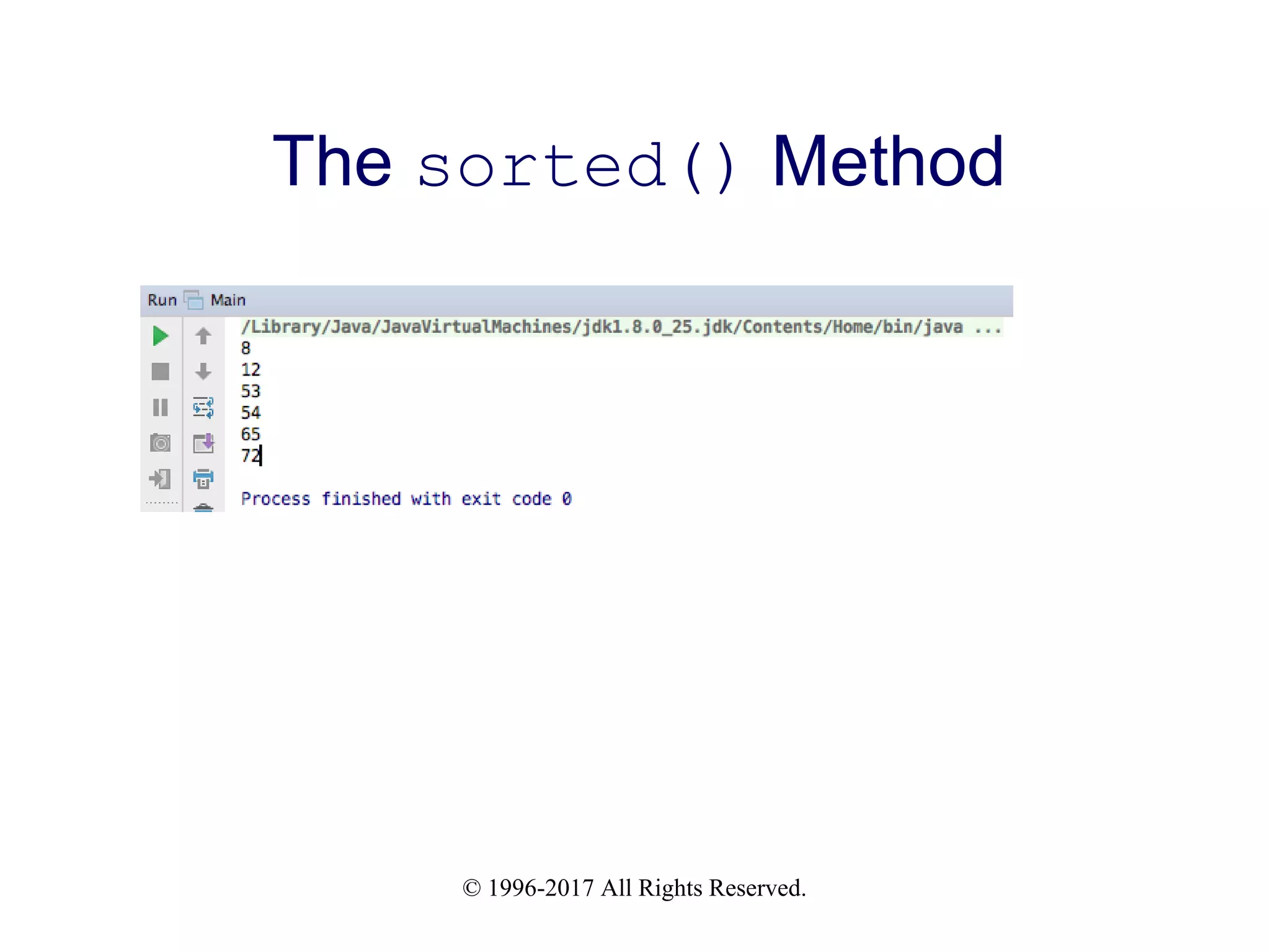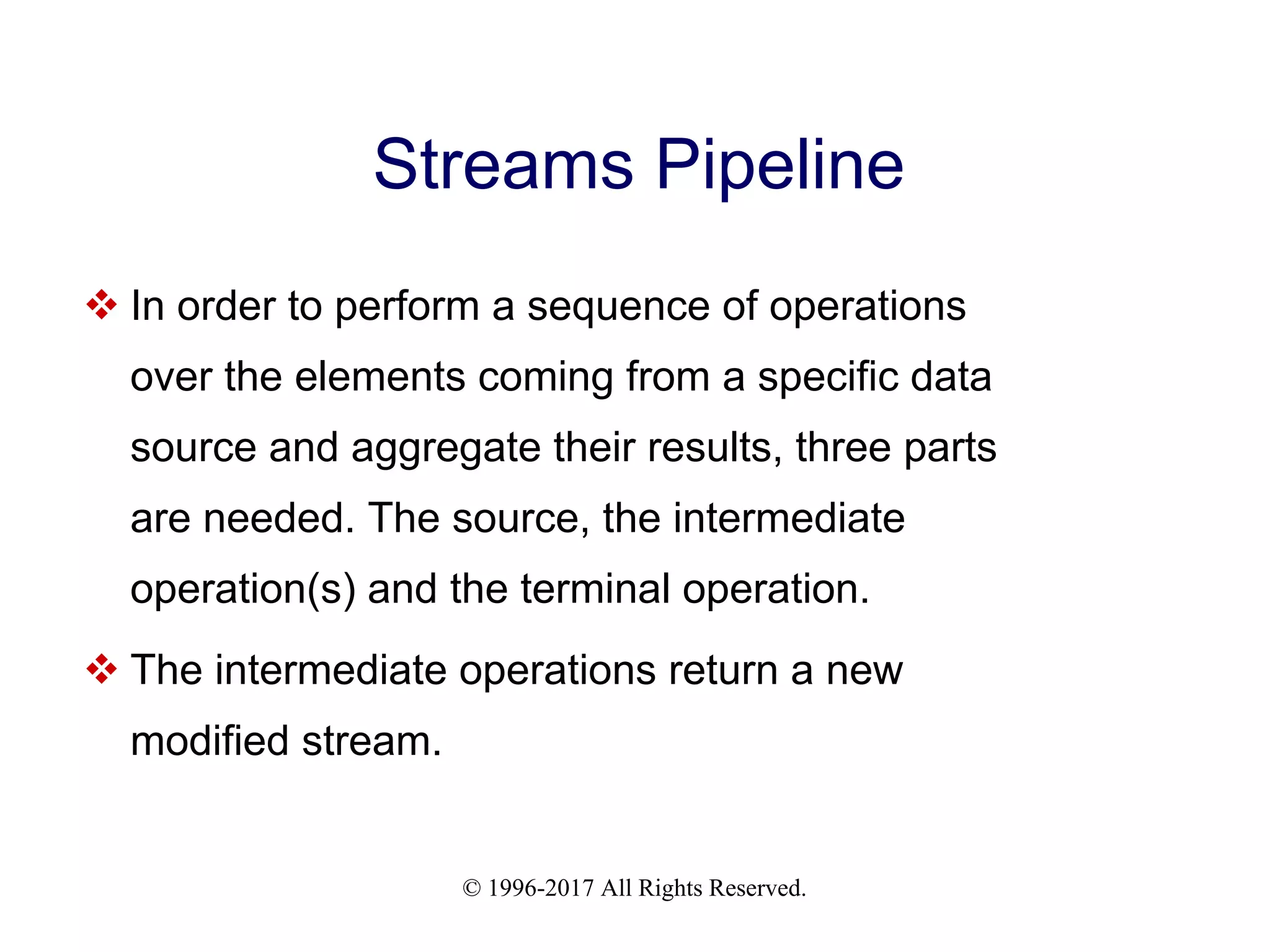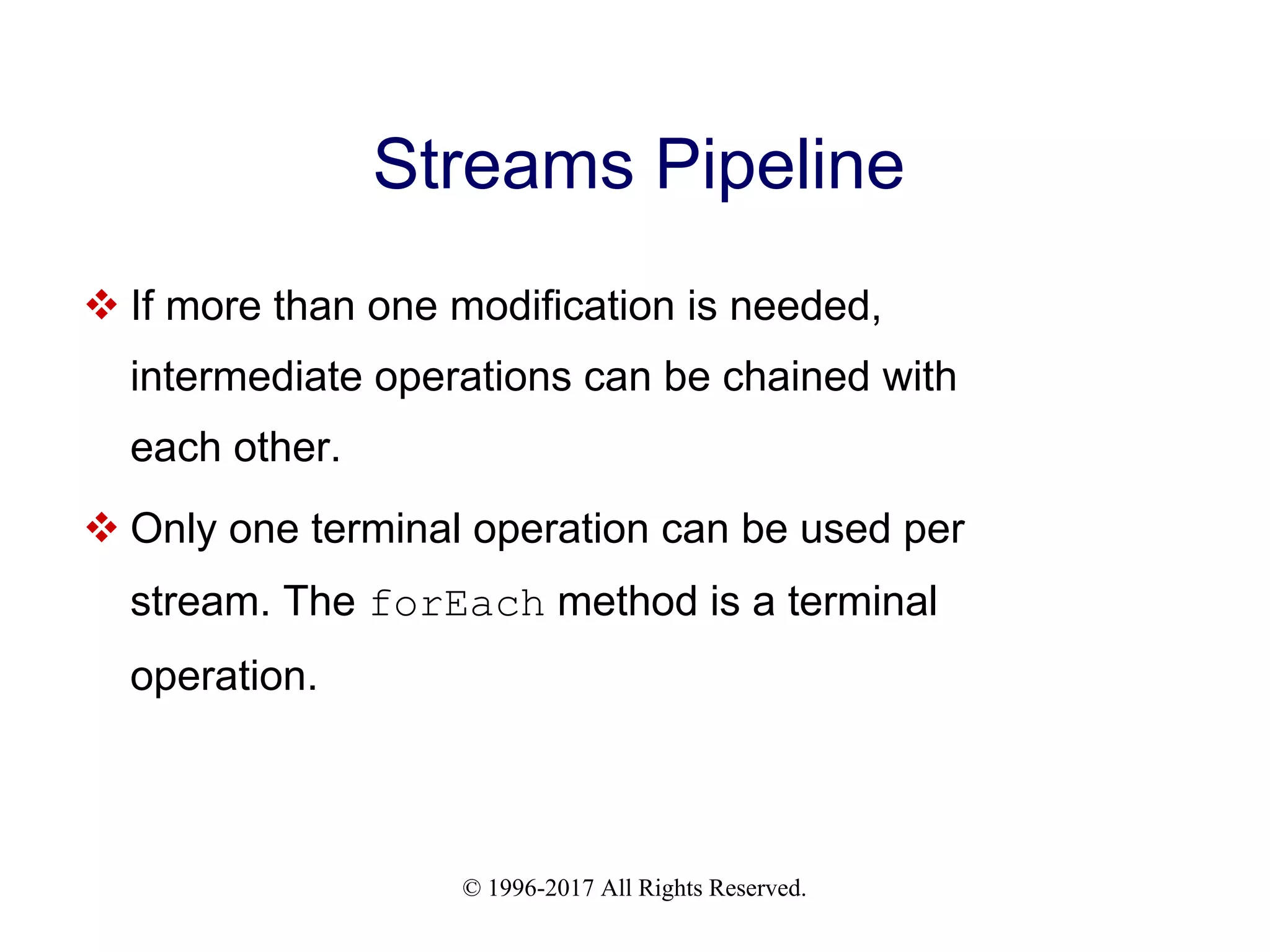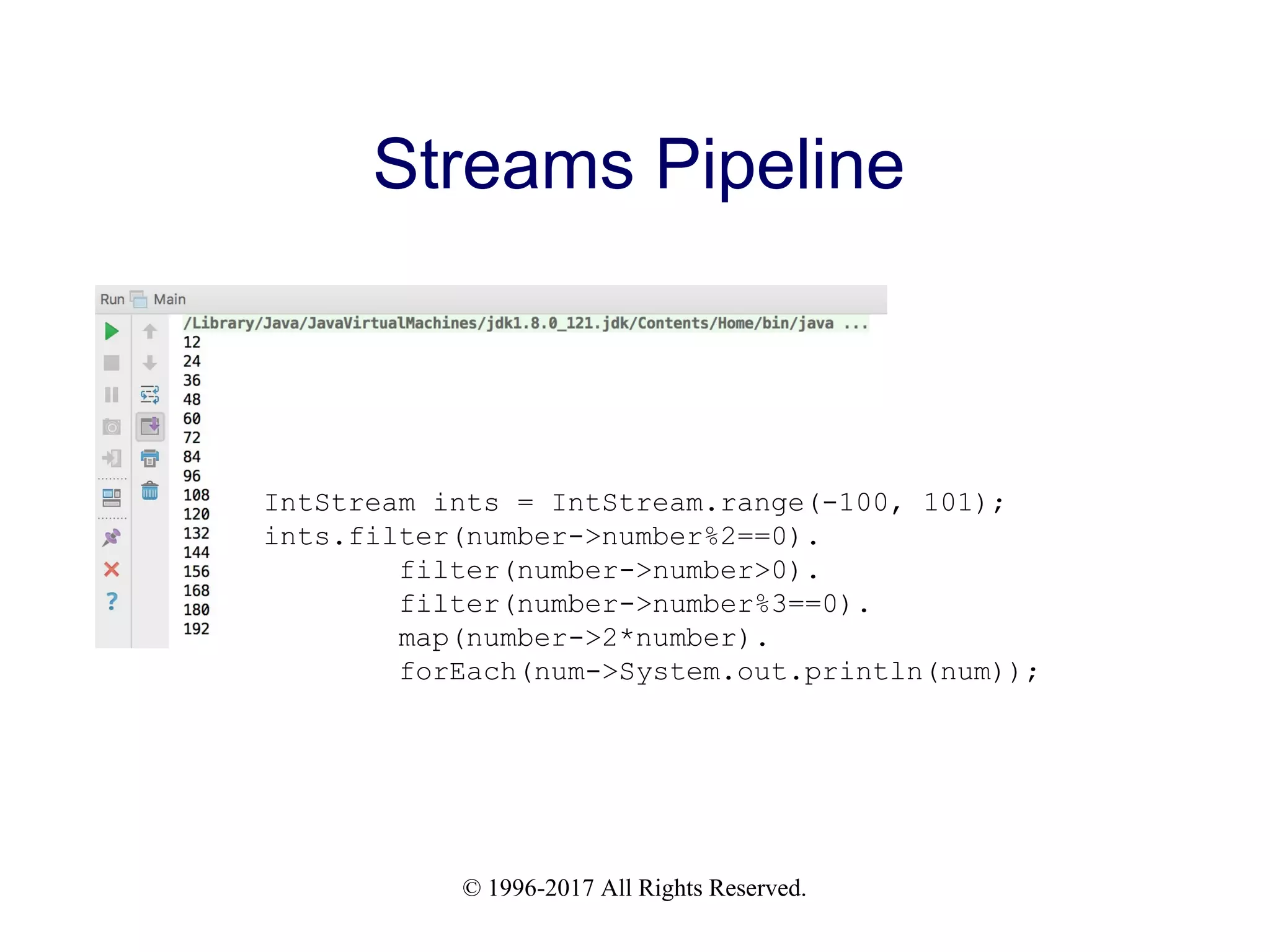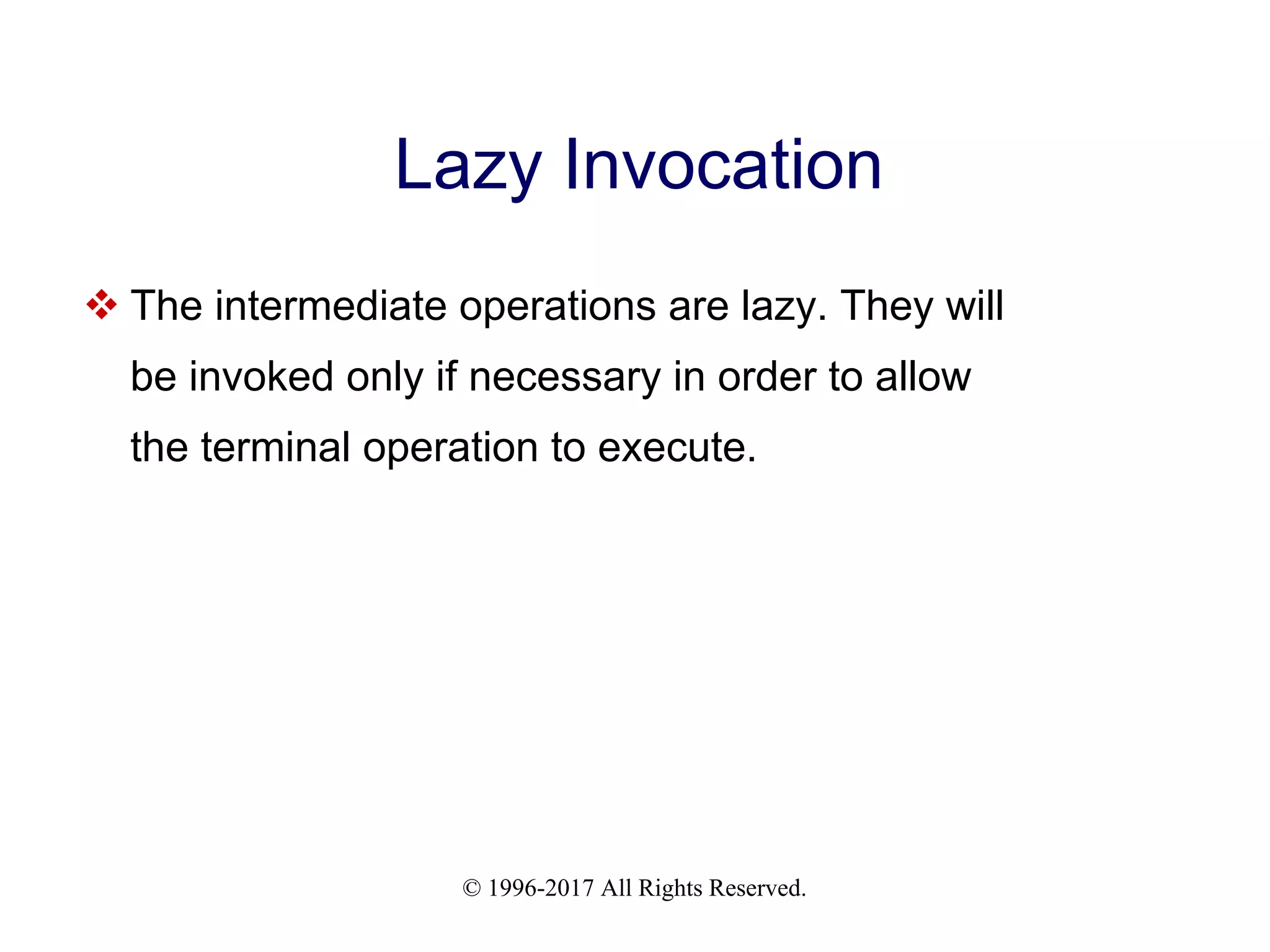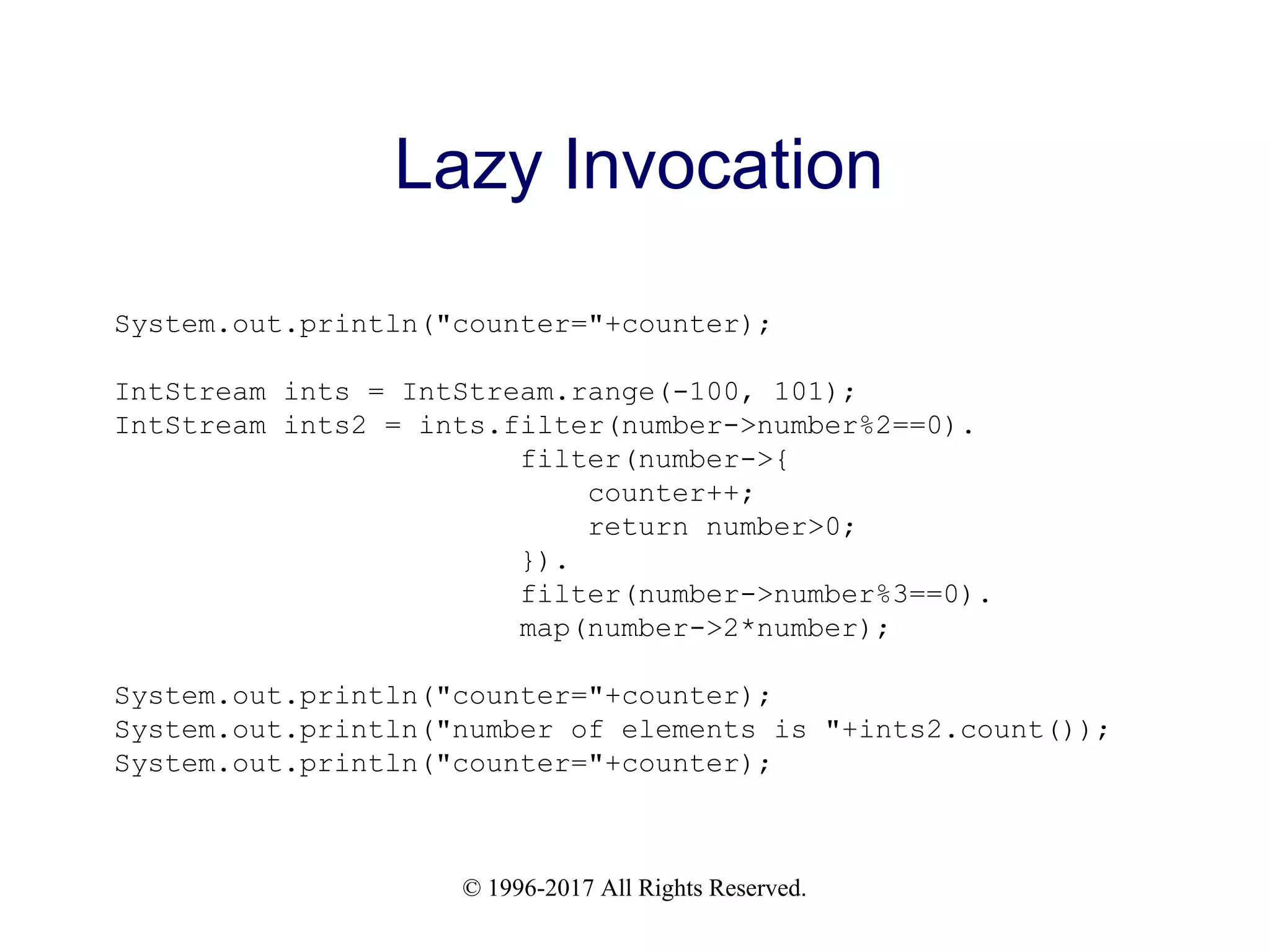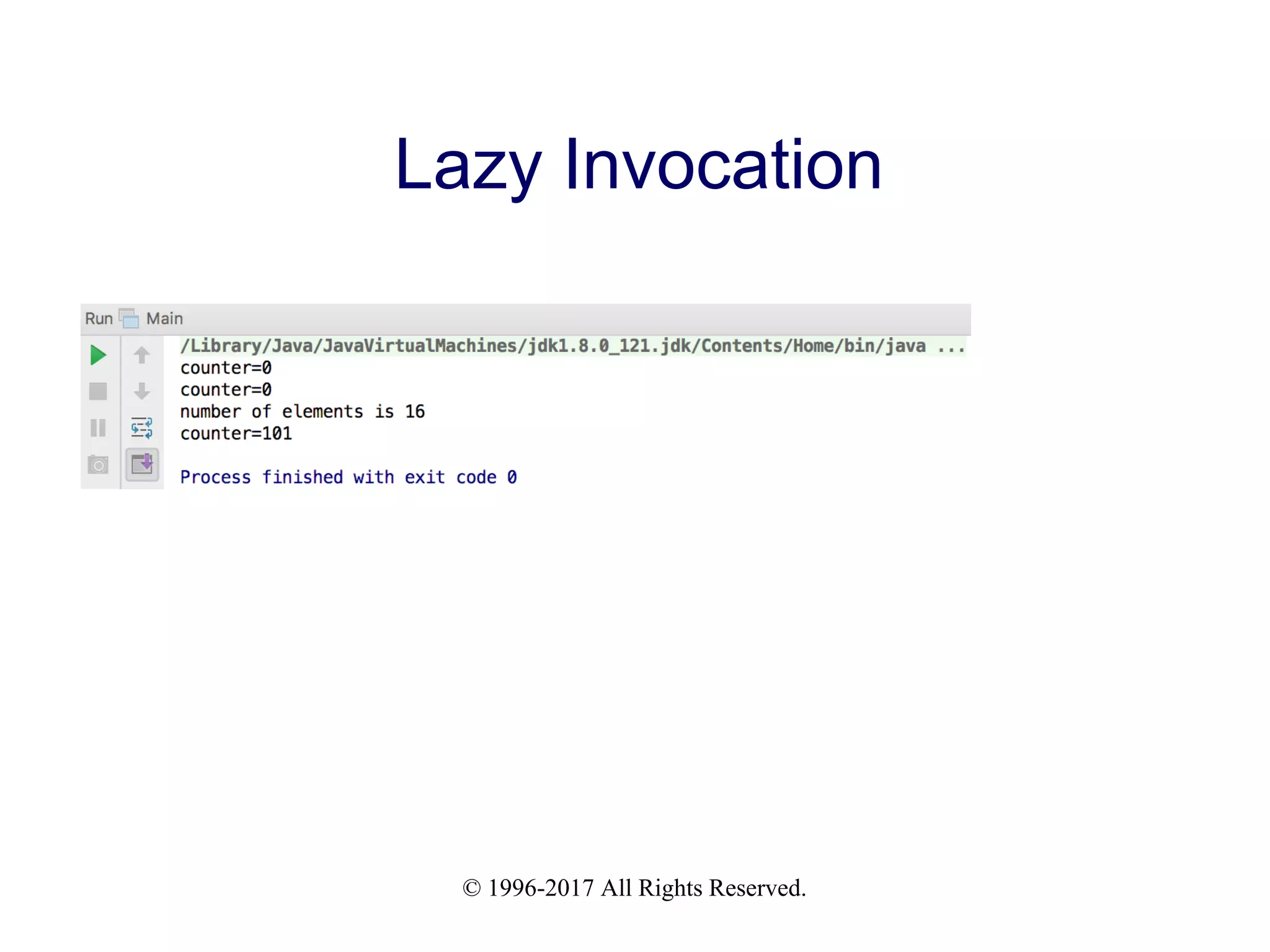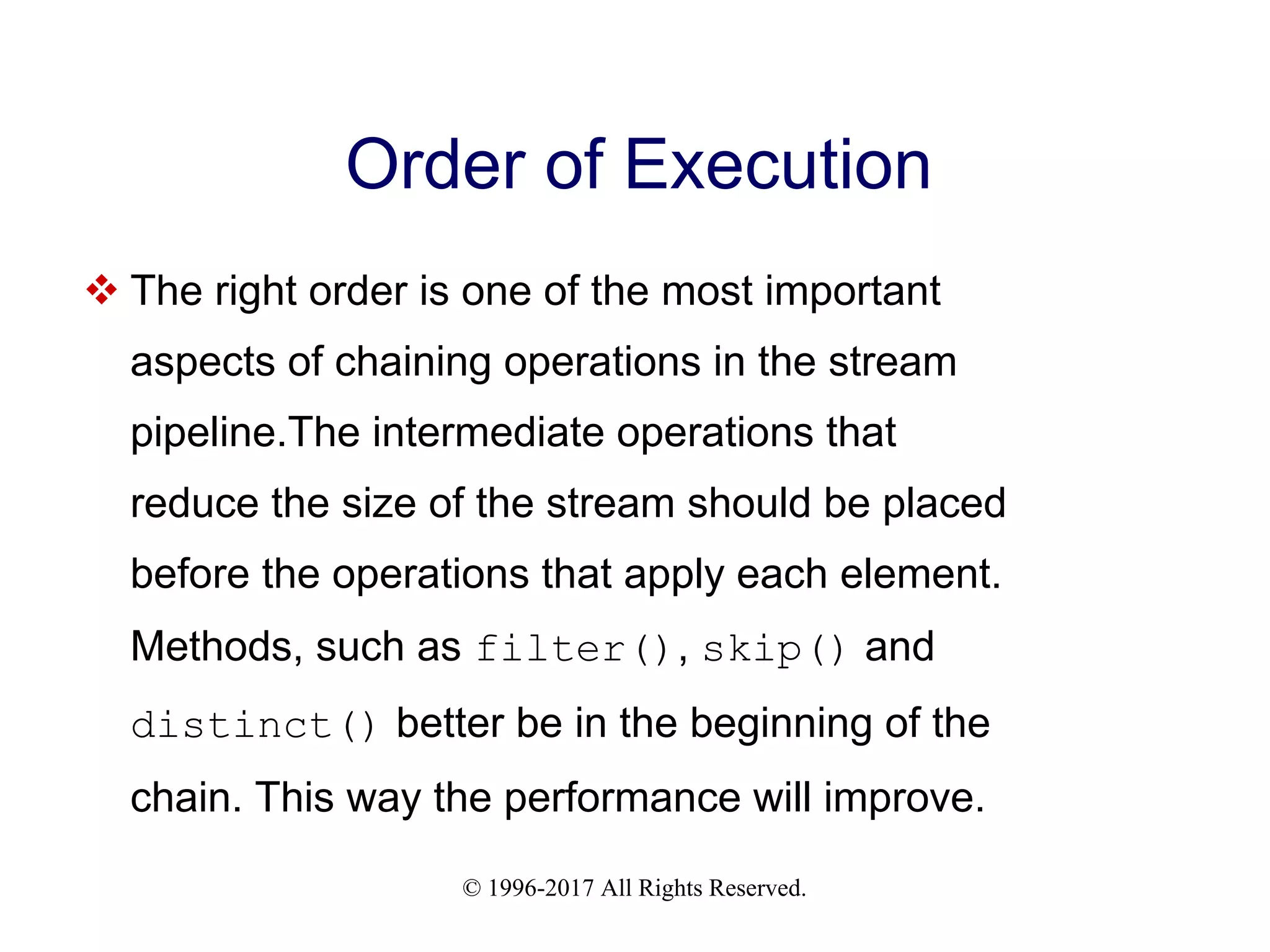This document provides an overview of functional programming concepts including: - Pure functions which always return the same output for the same inputs and have no side effects. - Lambda expressions which can be used to define anonymous functions. - Higher order functions which take functions as arguments or return functions. - Streams which allow processing sequences of objects in a functional style. The document discusses functional programming paradigms and gives examples of pure functions, lambda expressions, and method references in Java.
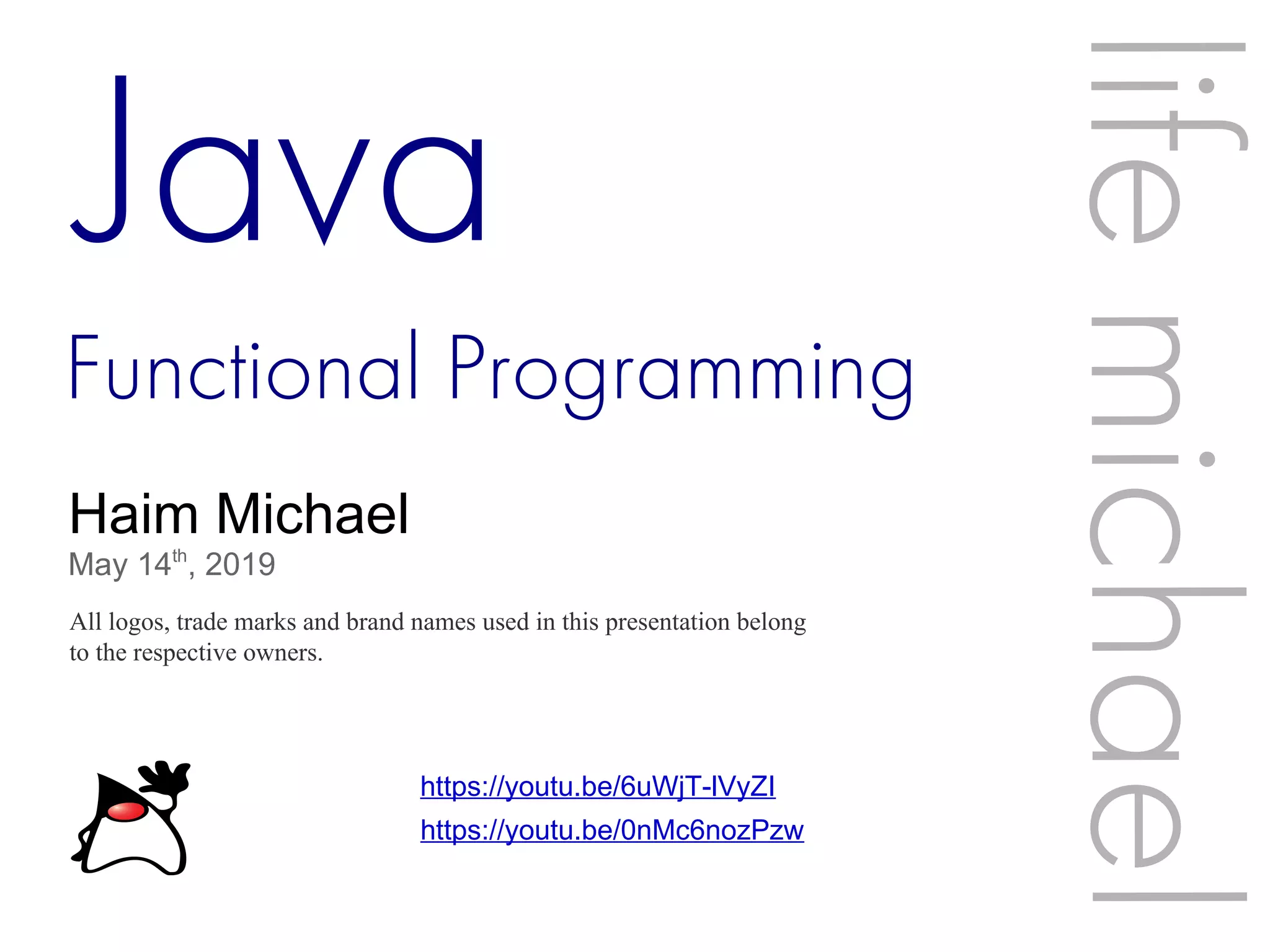


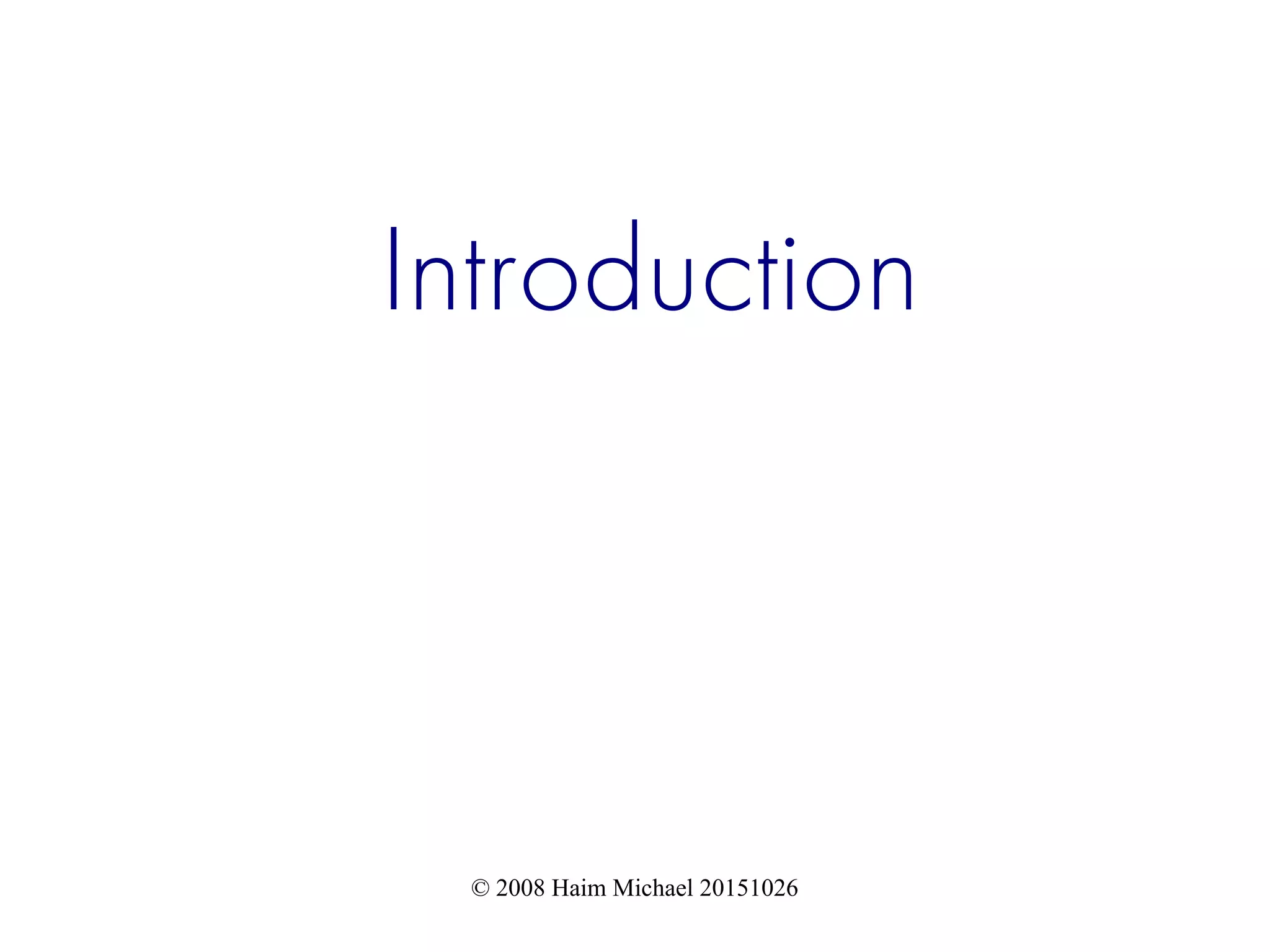
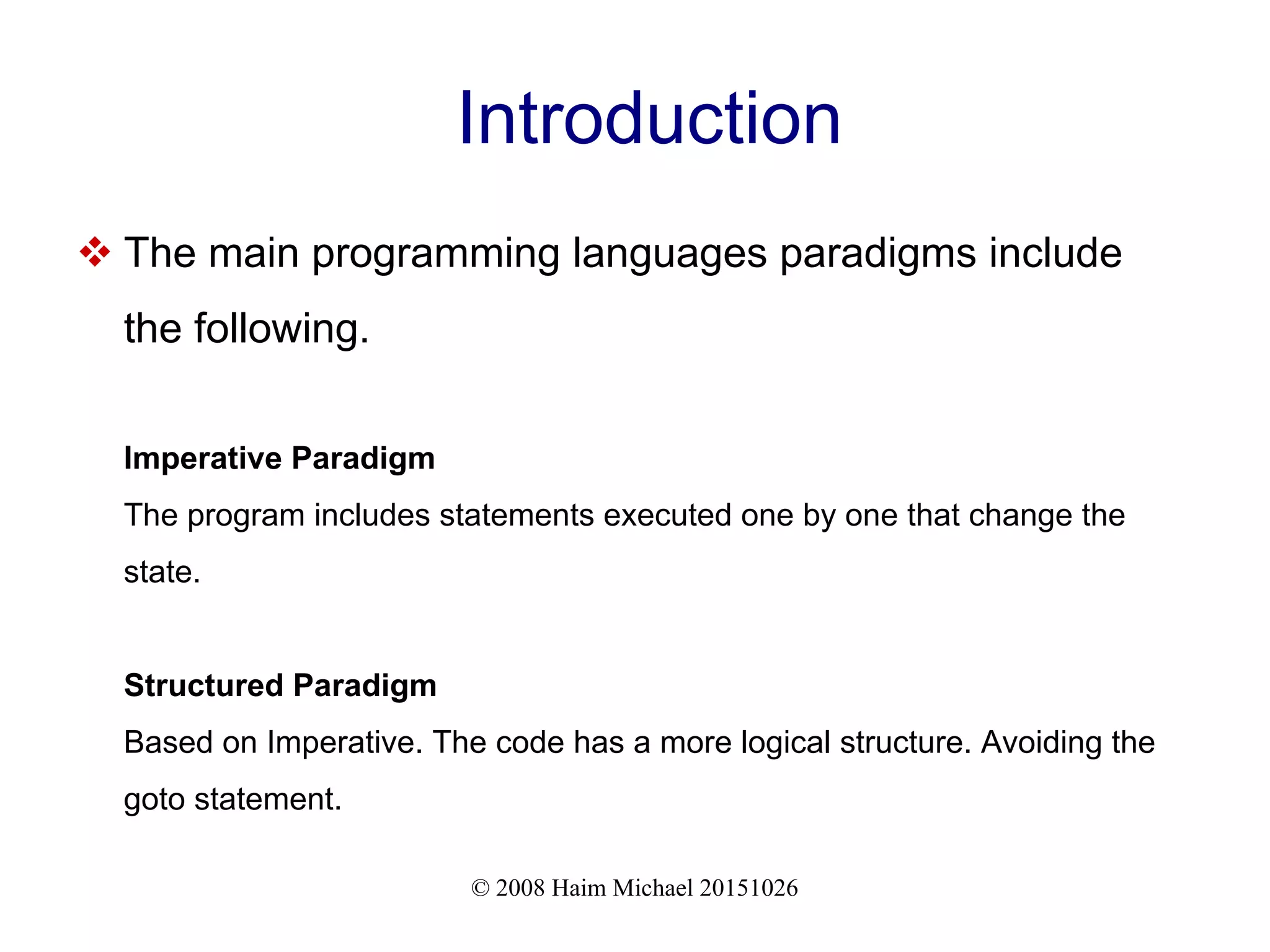
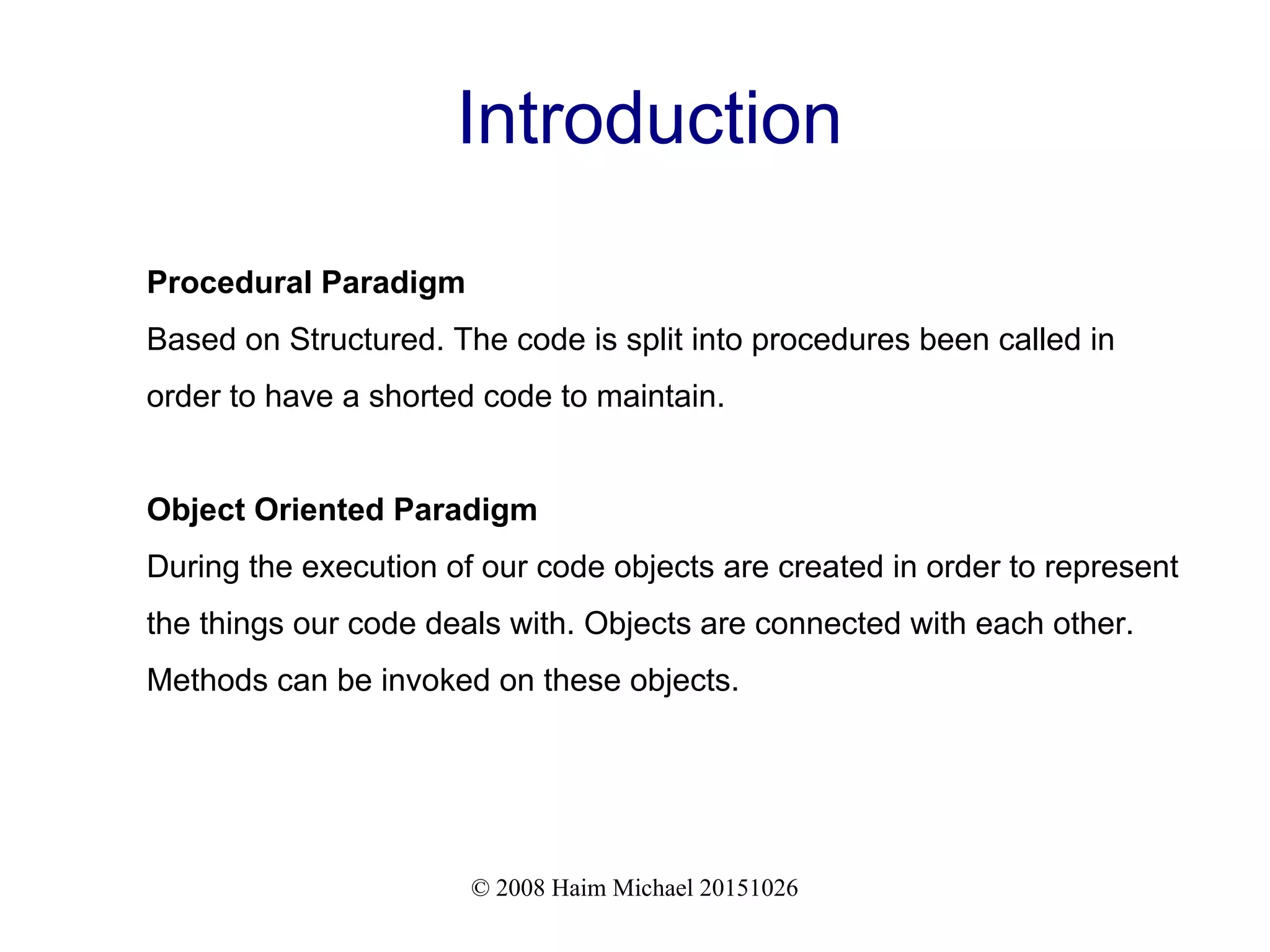
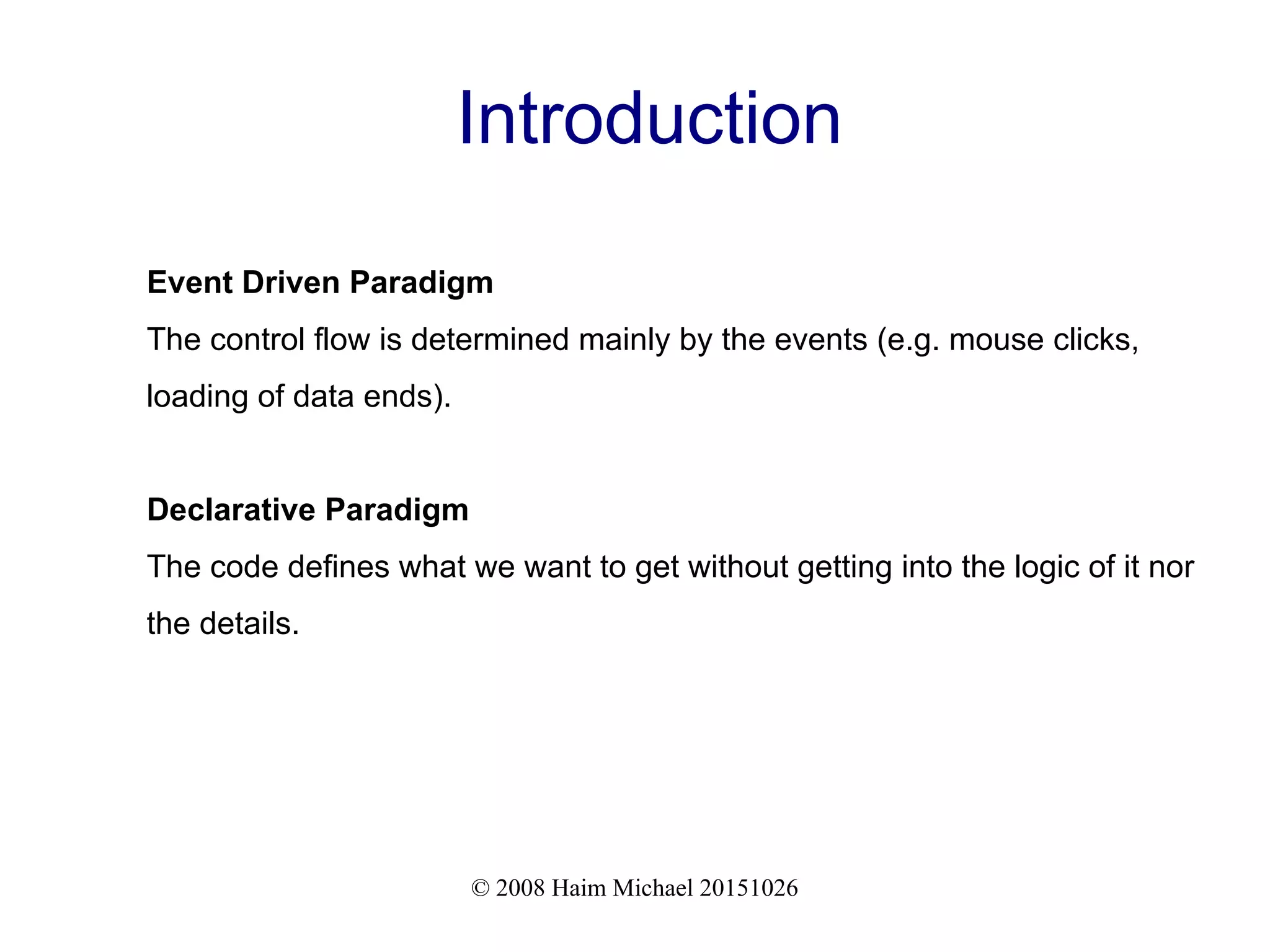
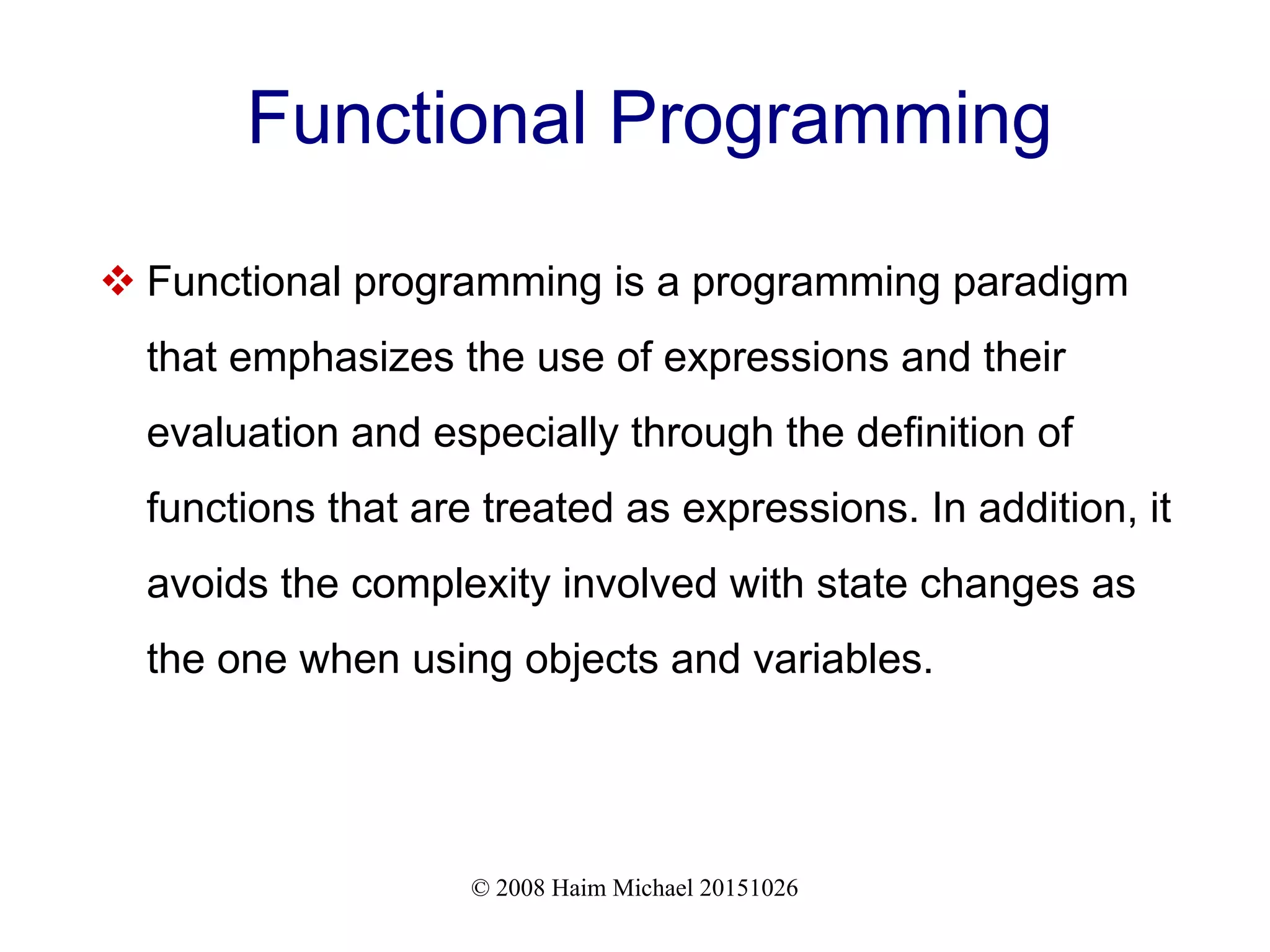


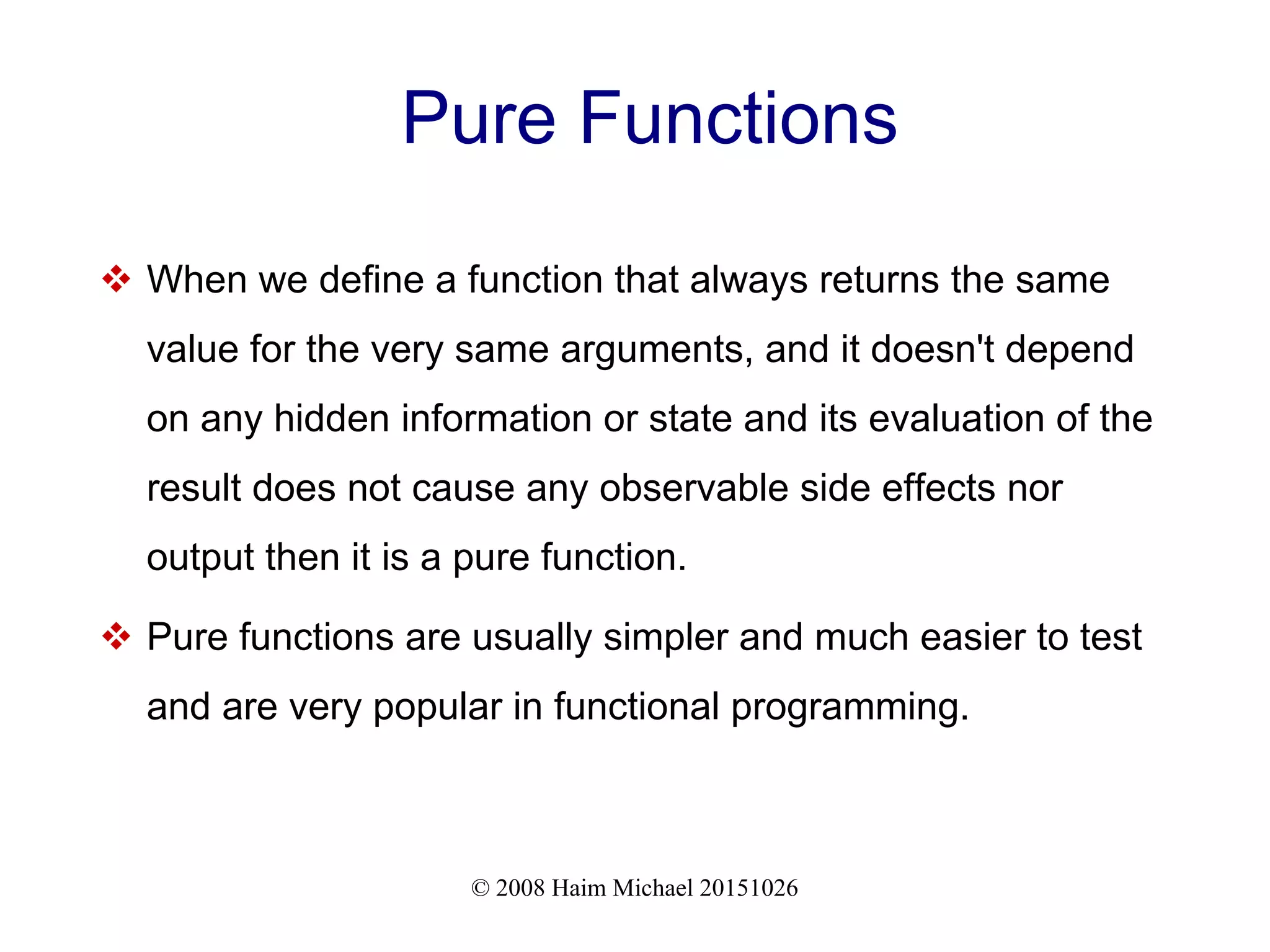
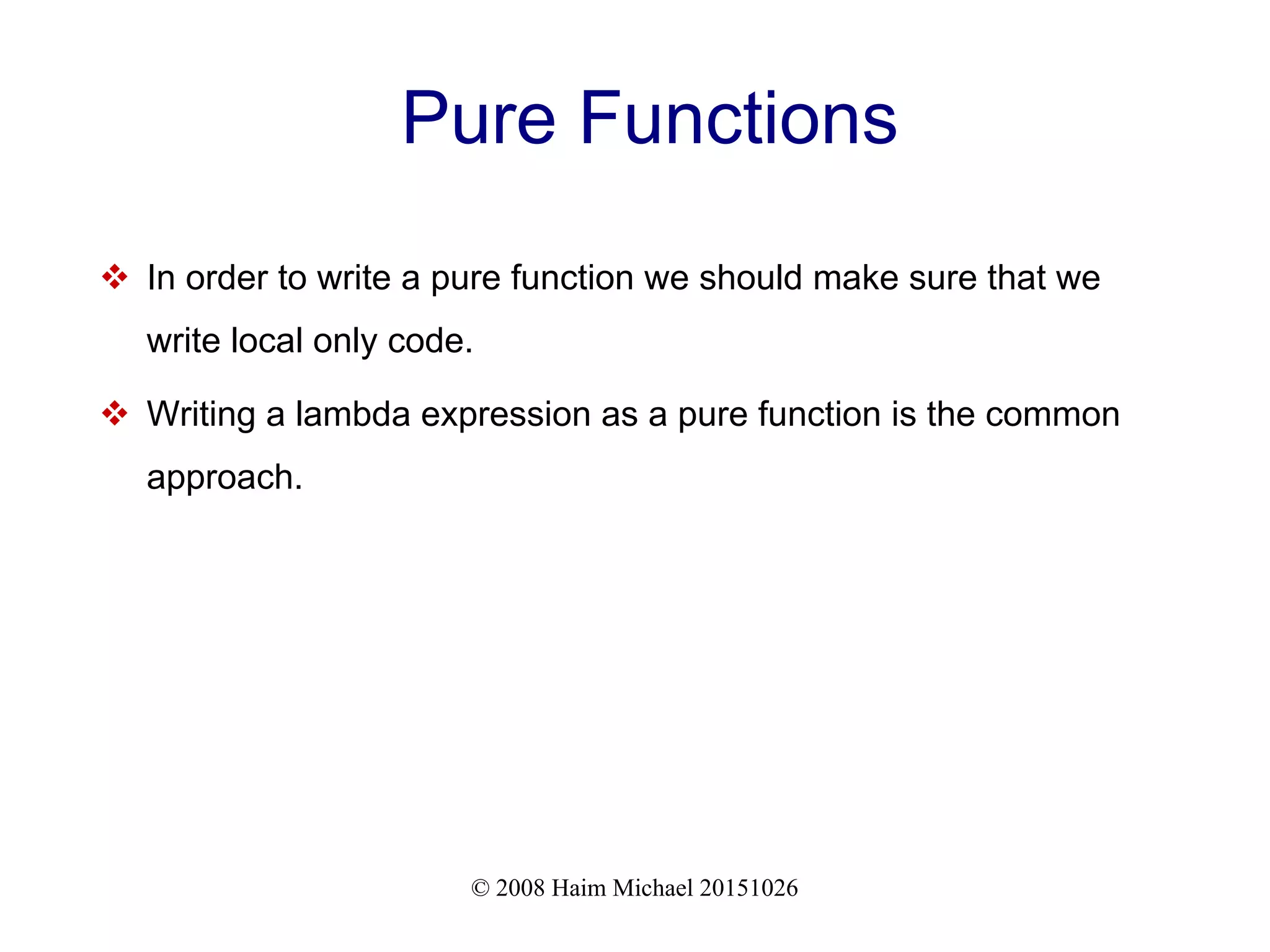
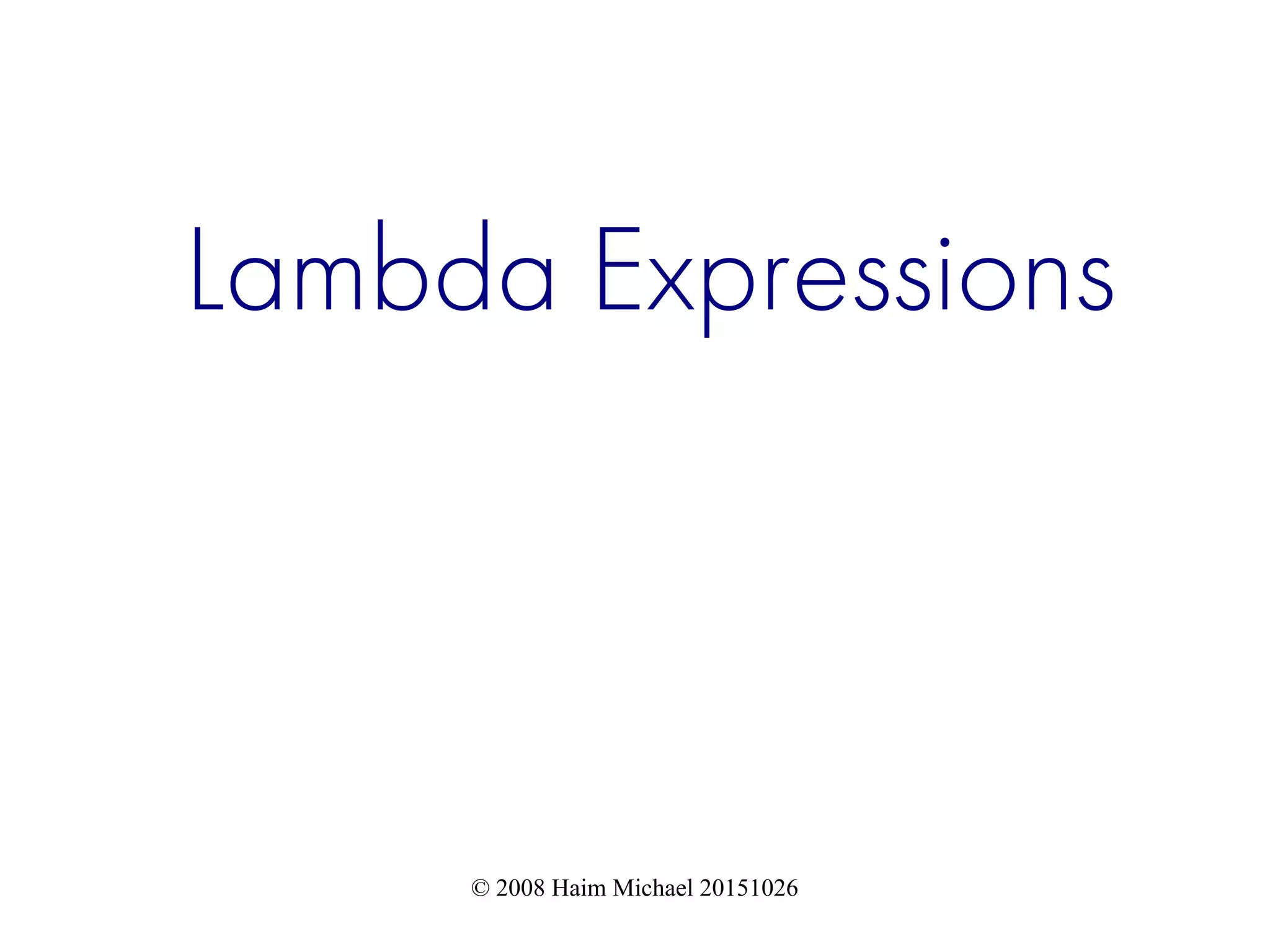
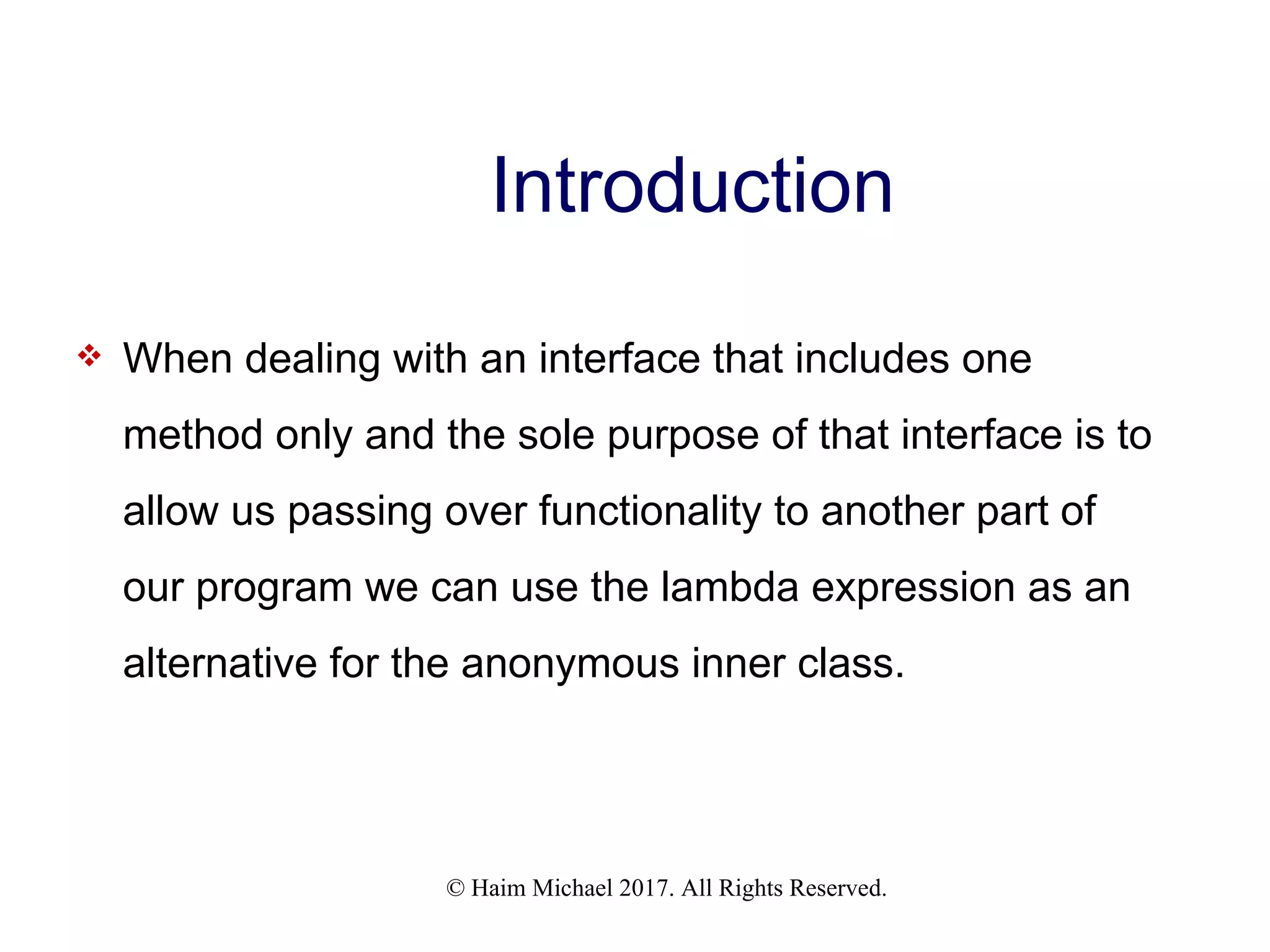
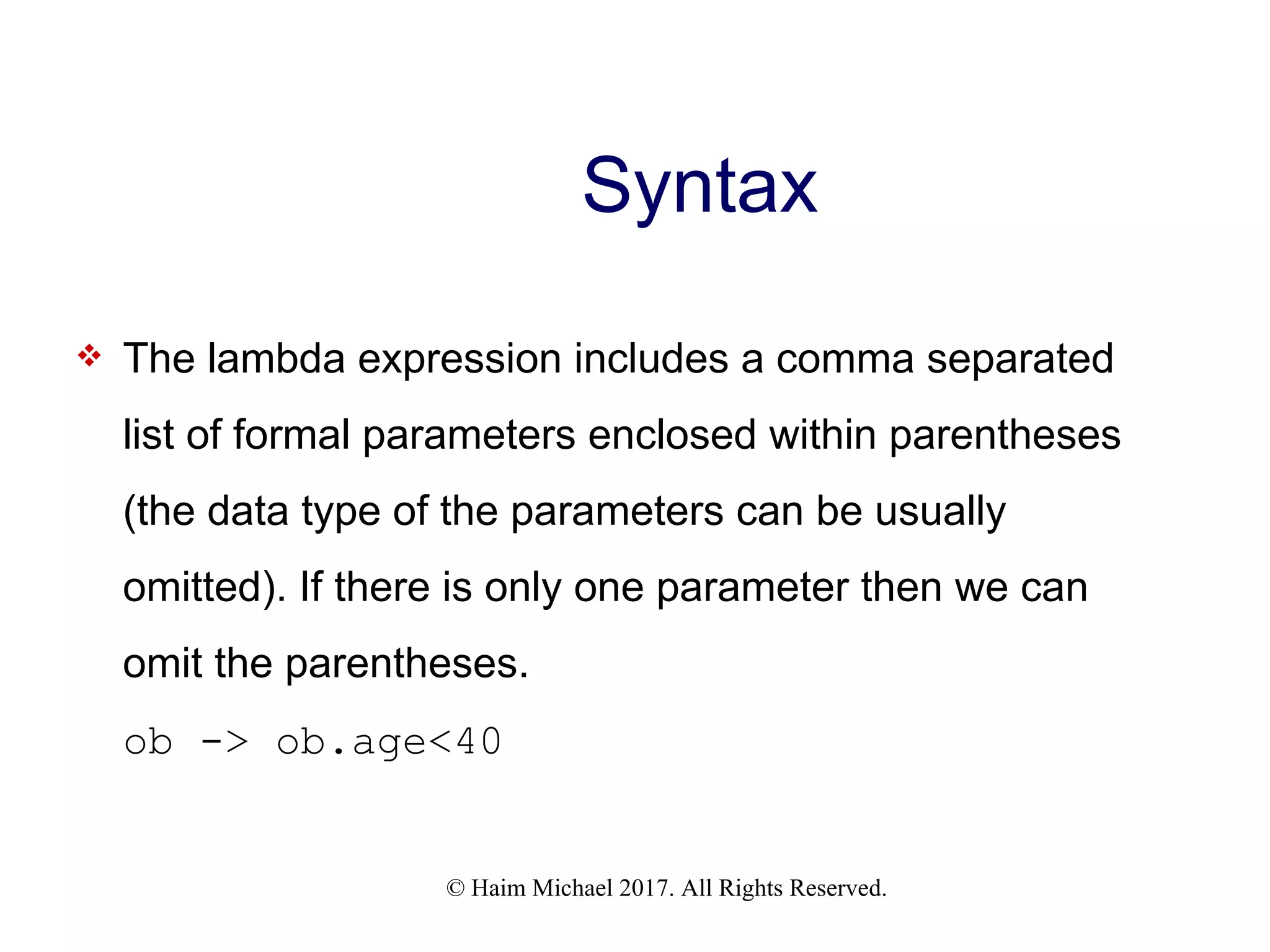
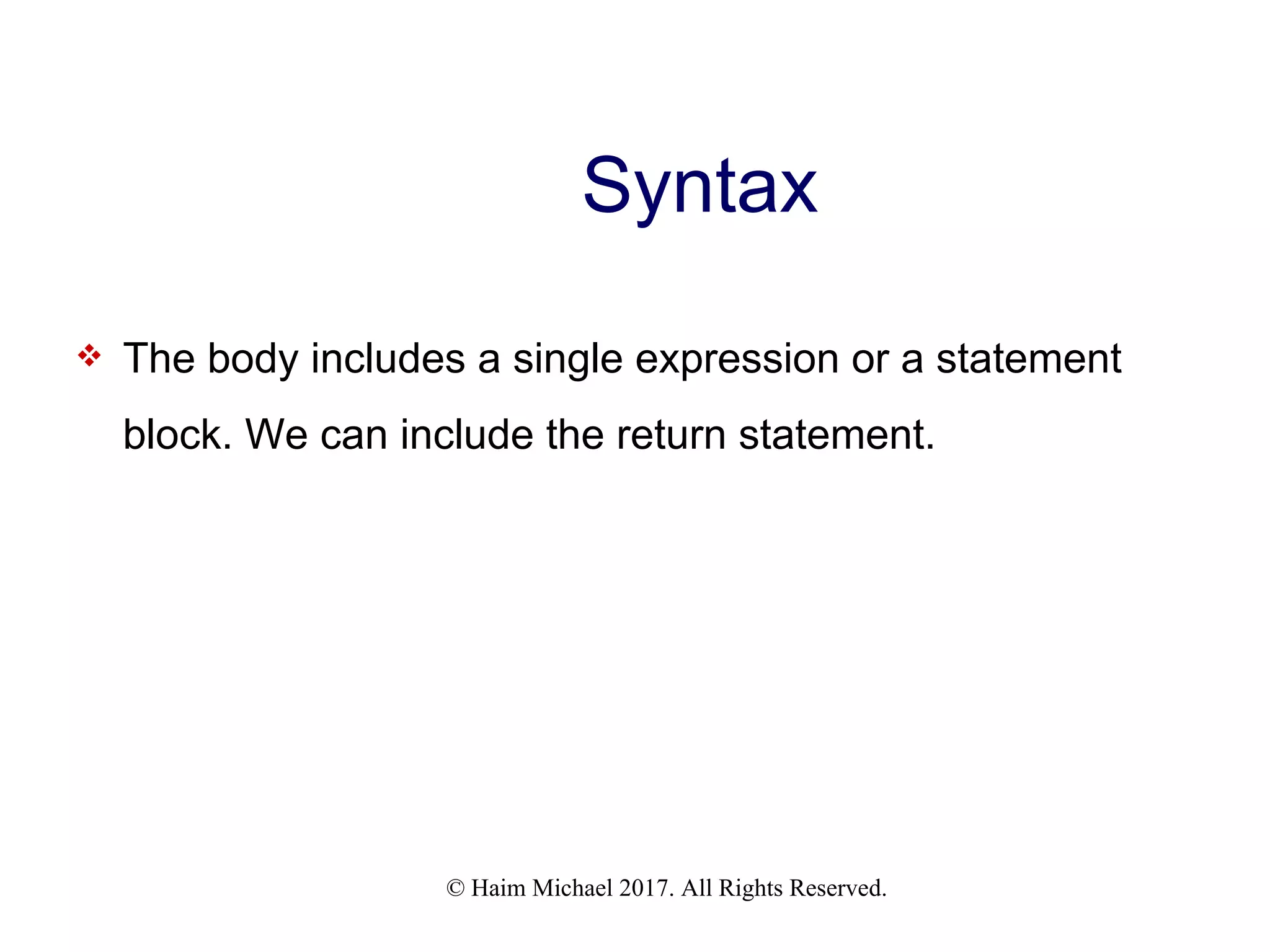
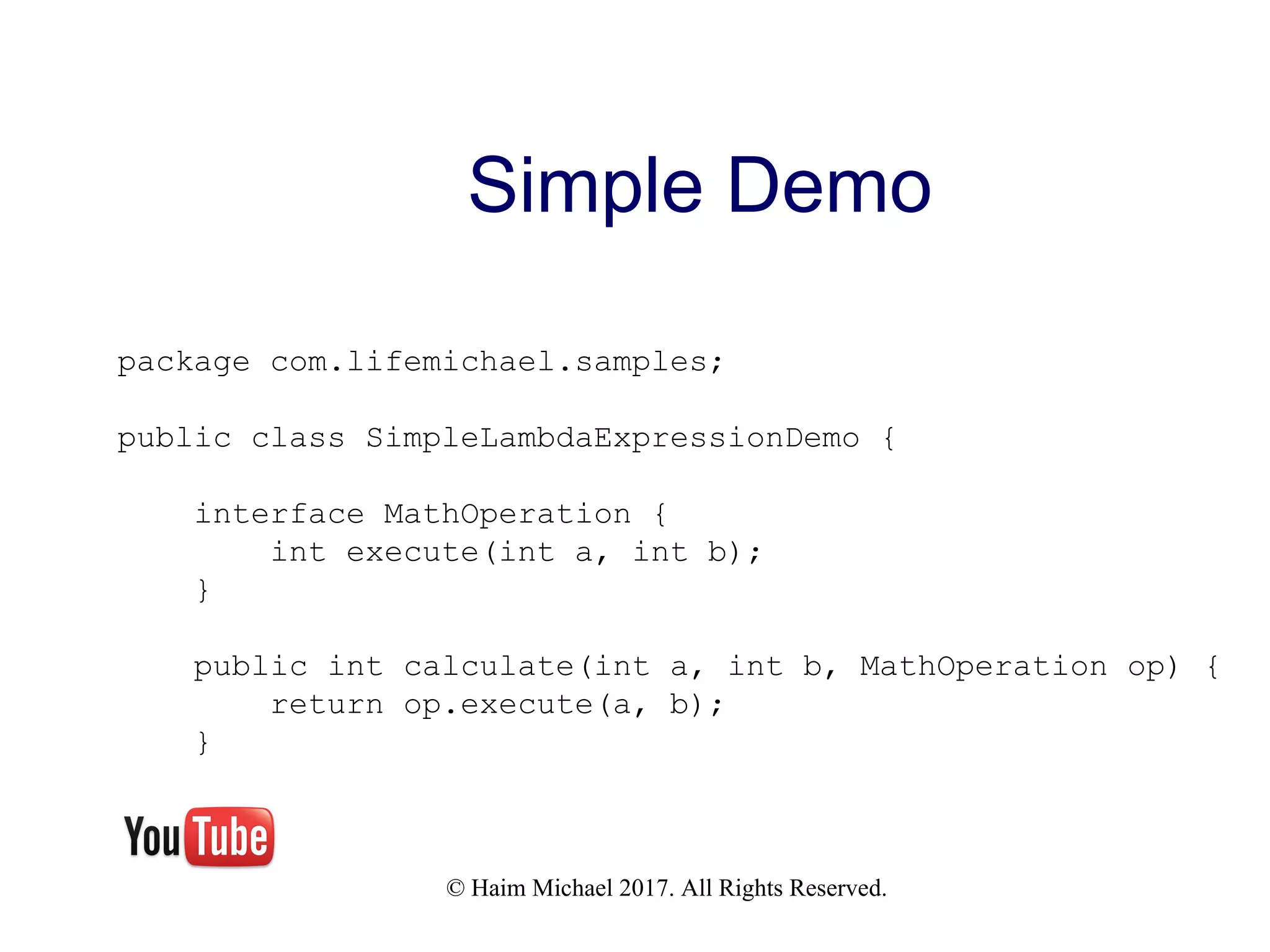
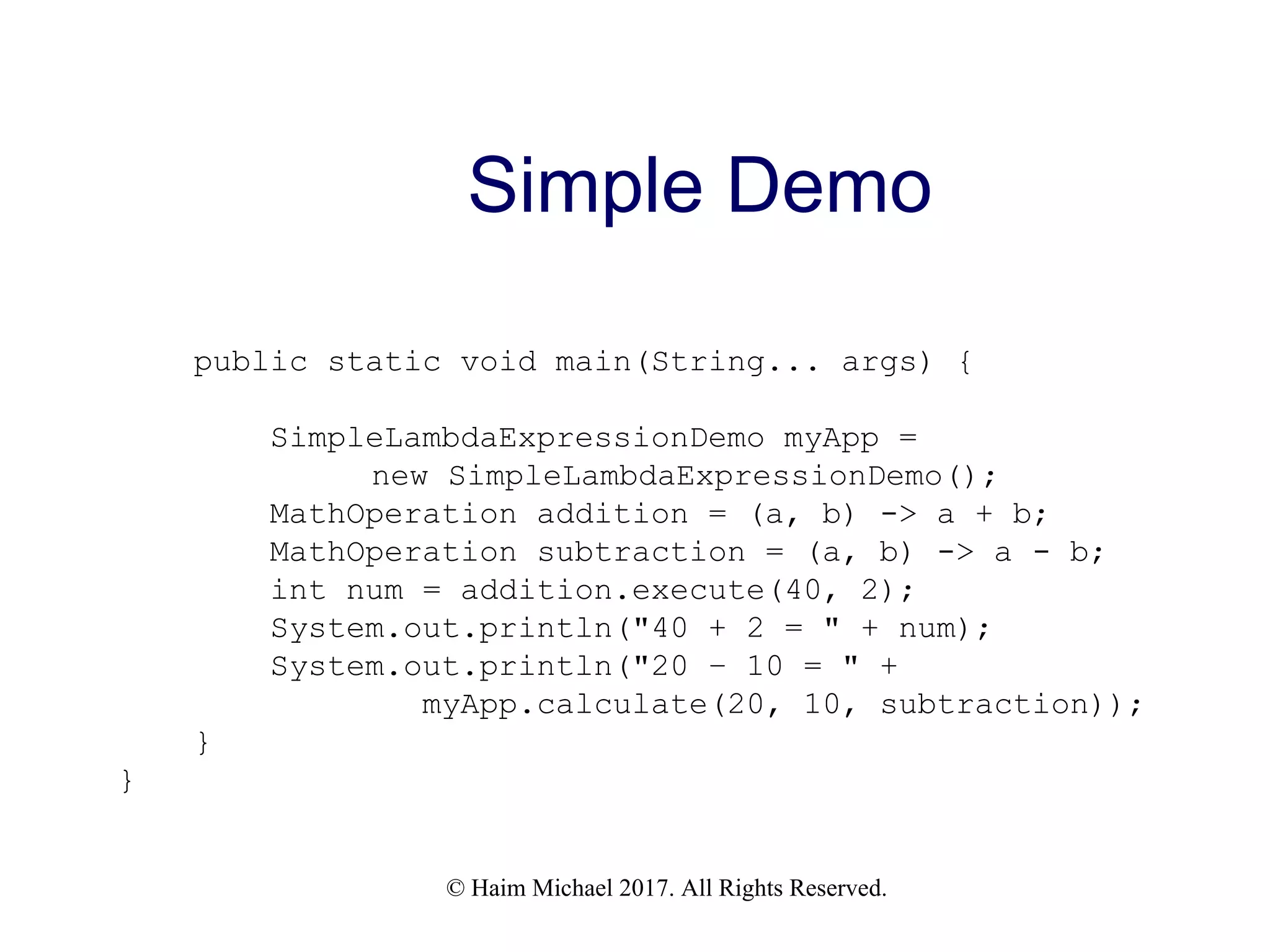
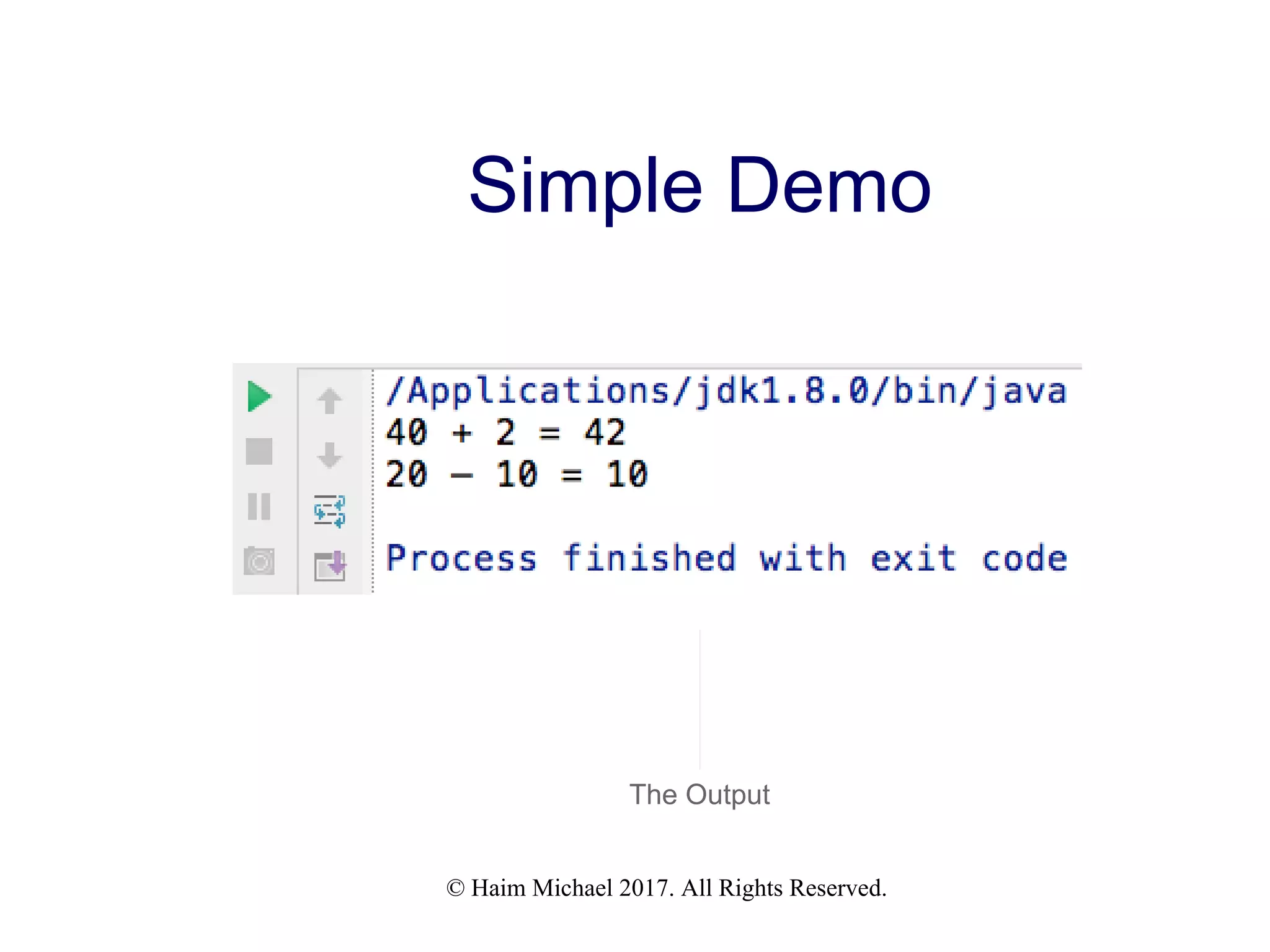
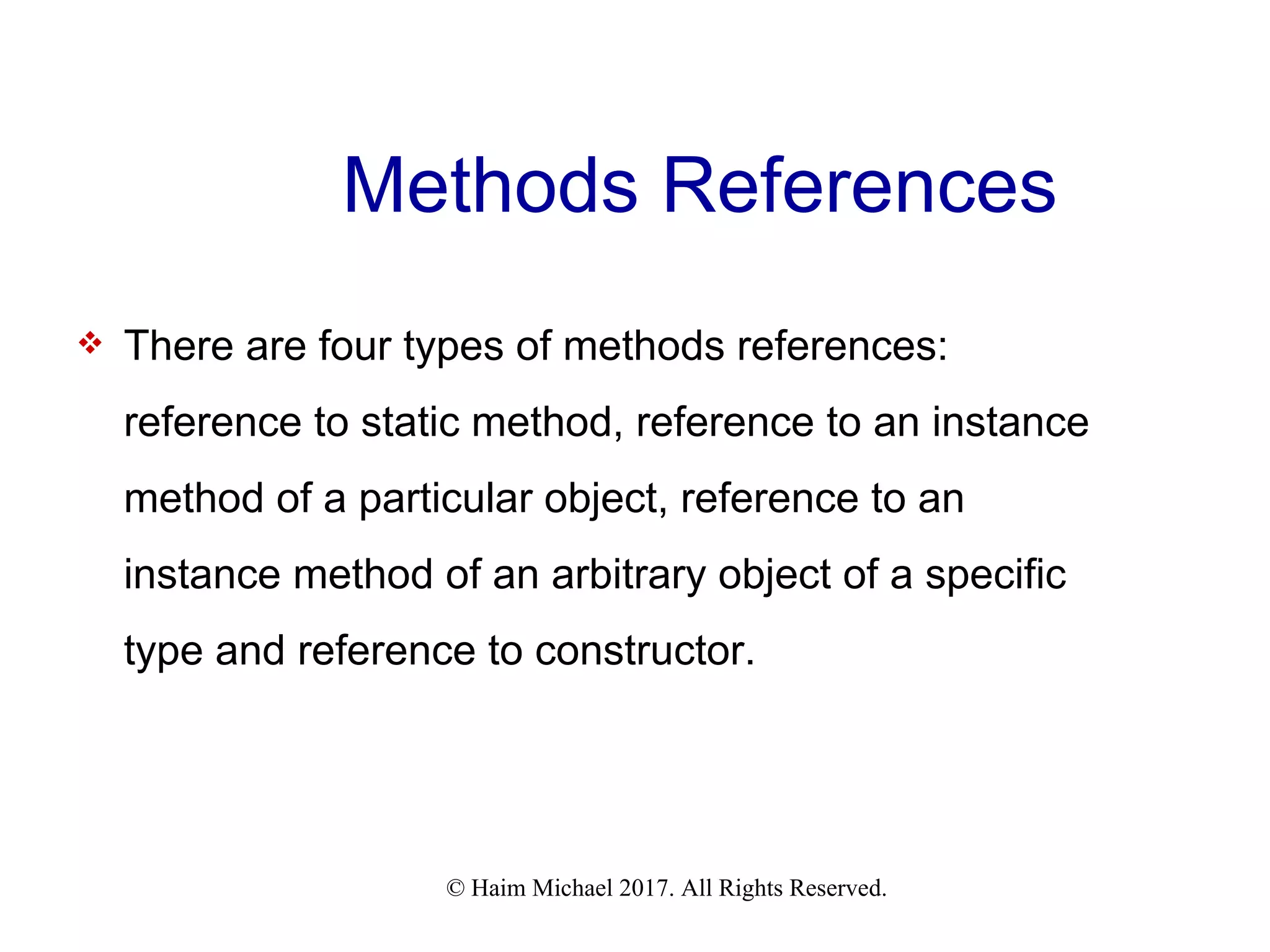
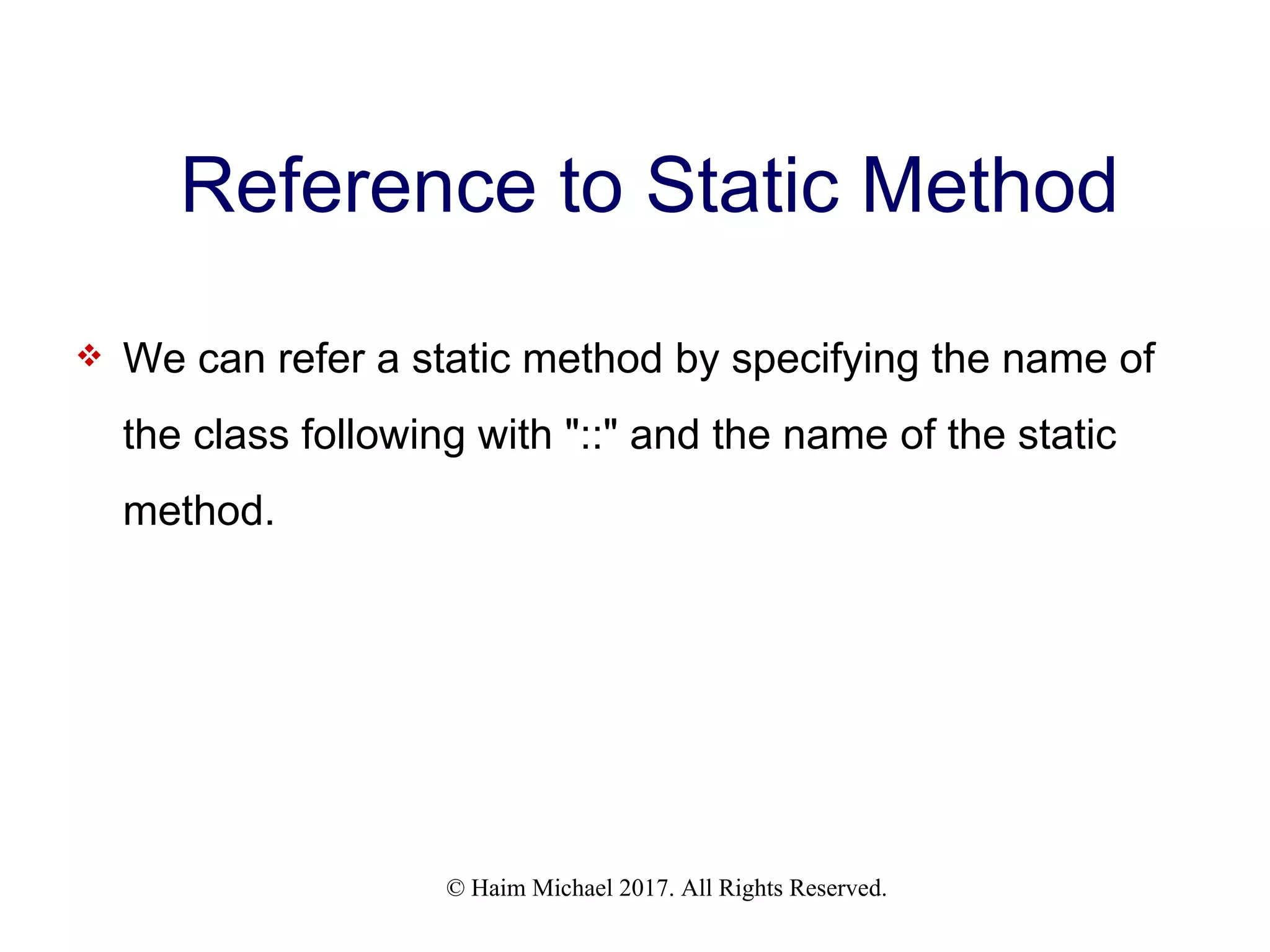
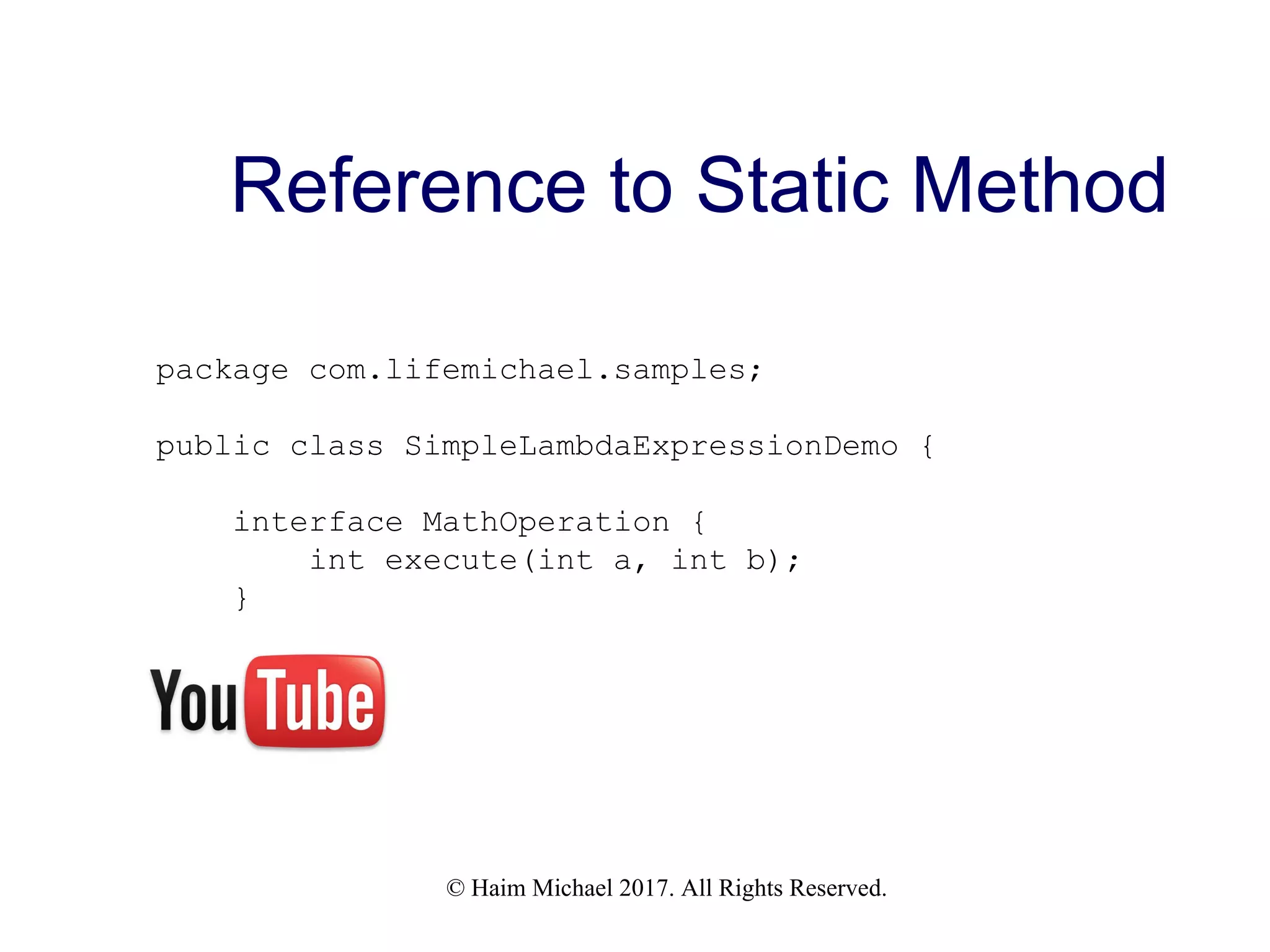
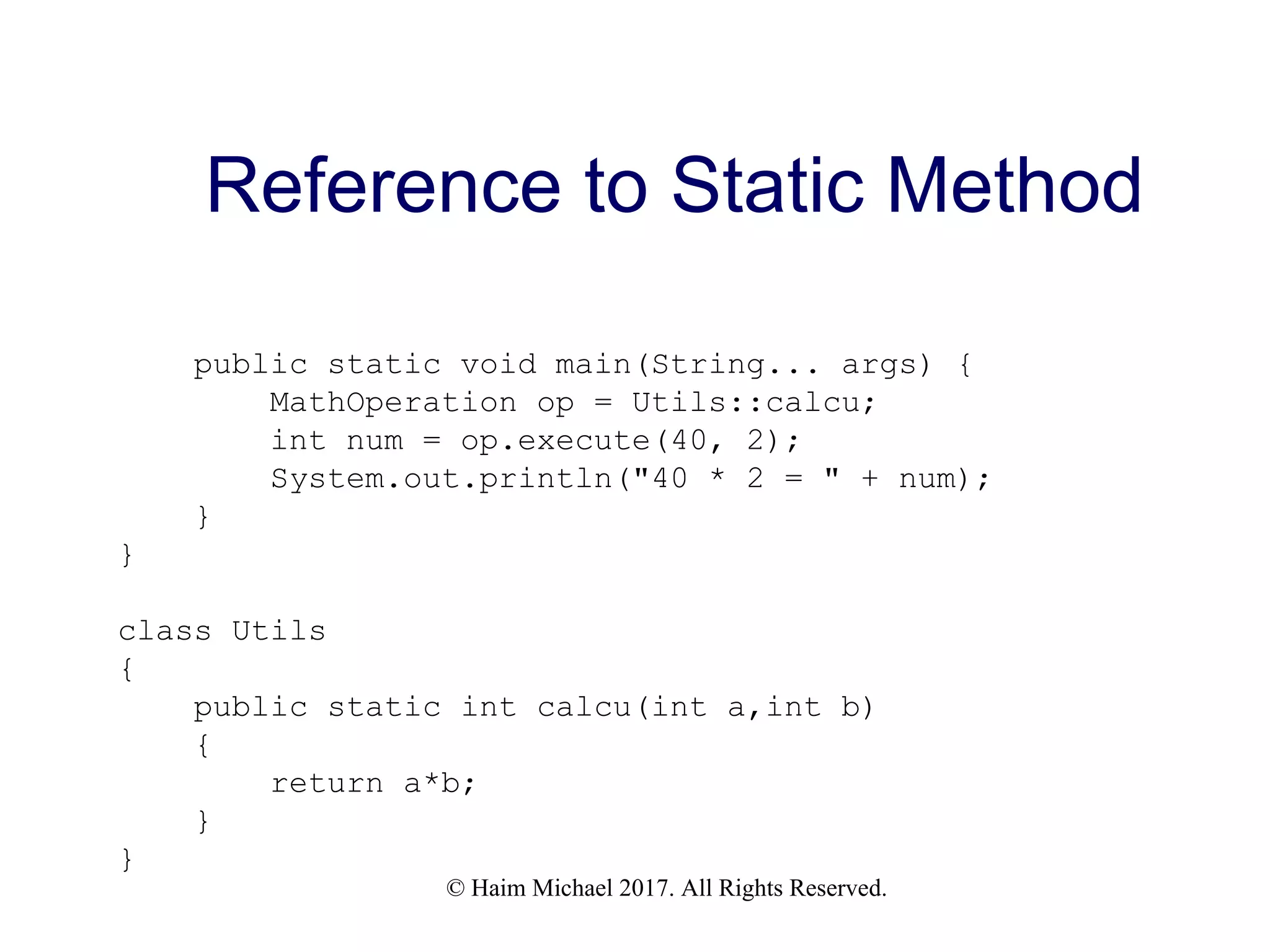
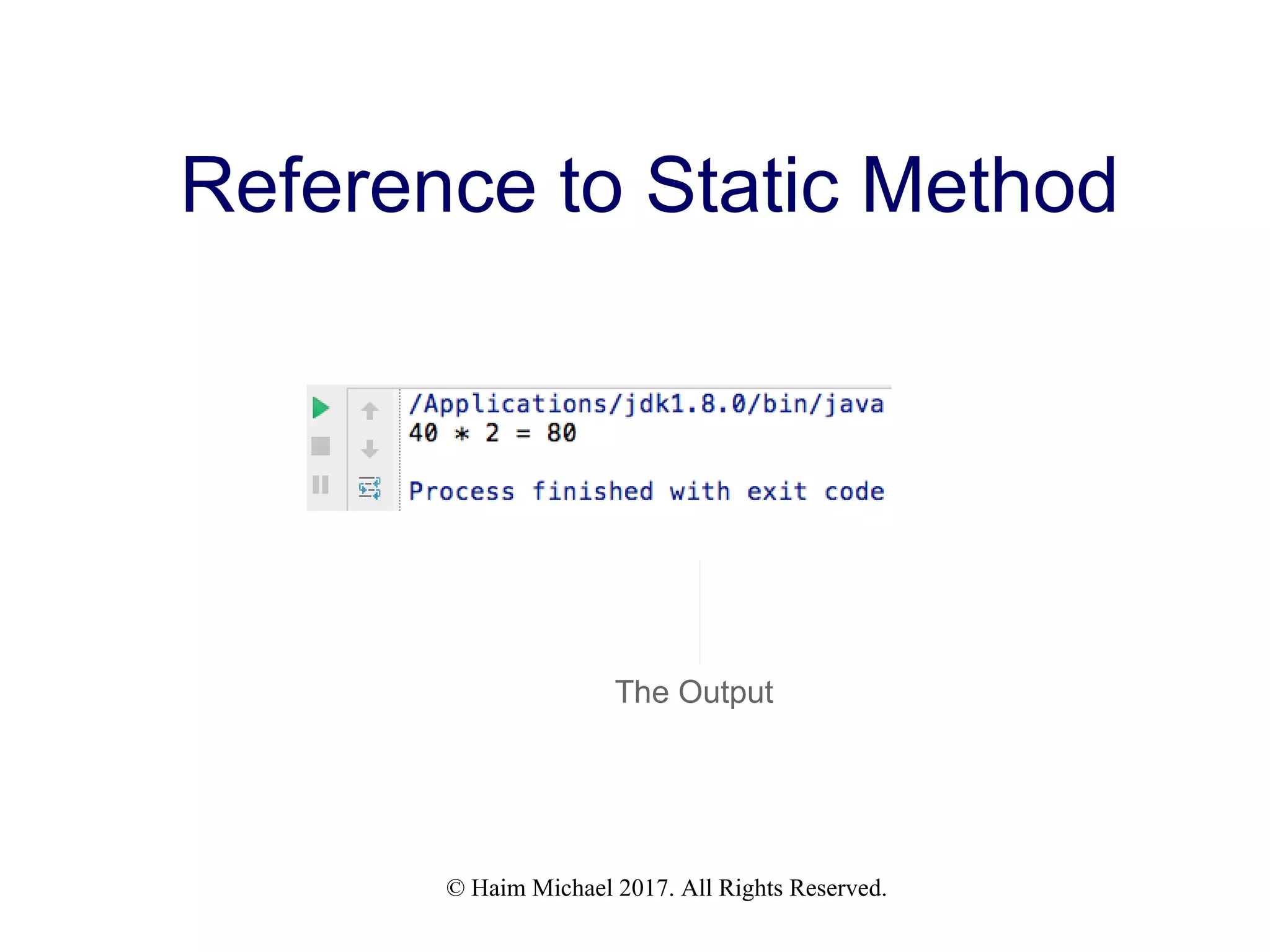
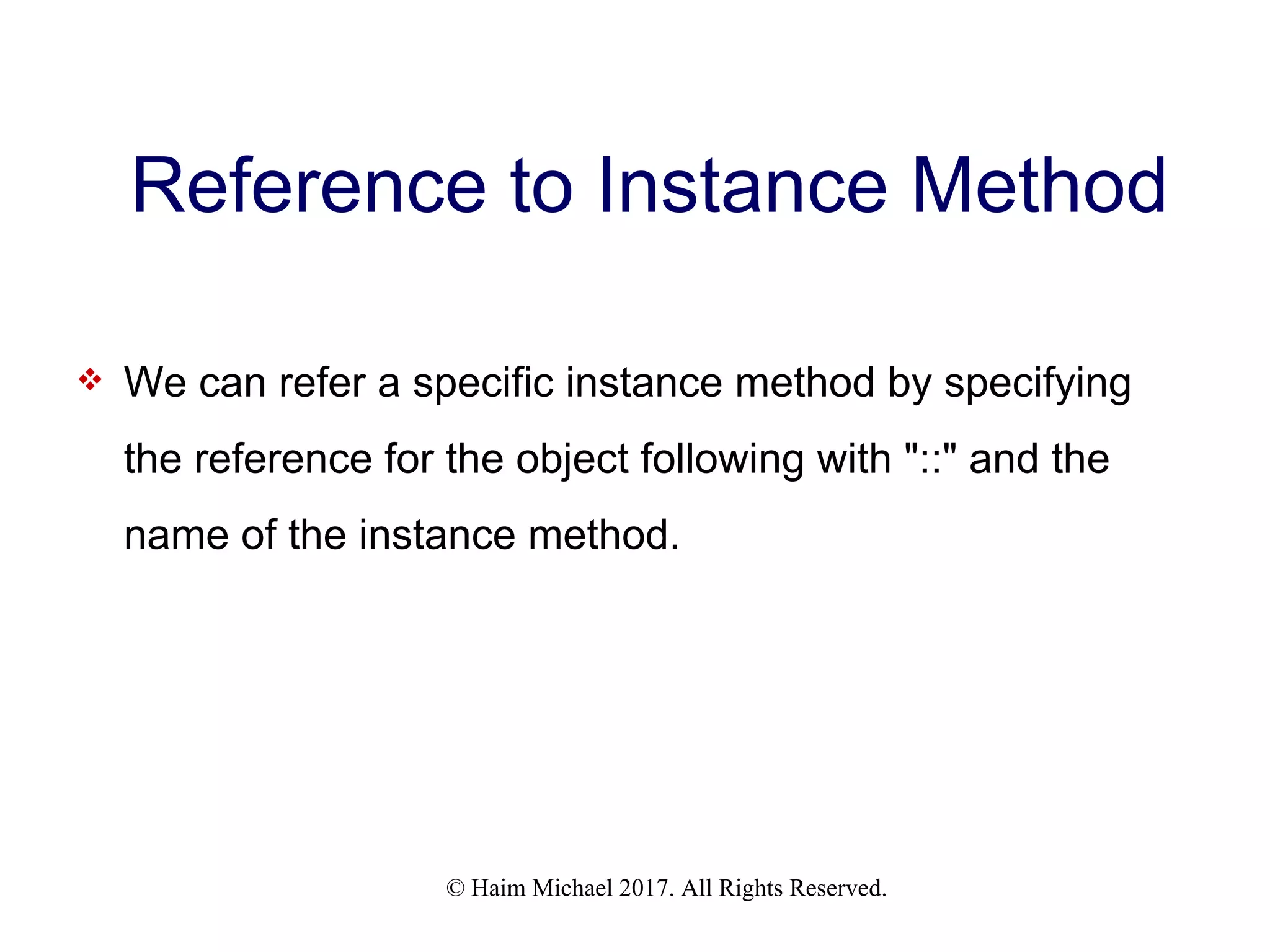
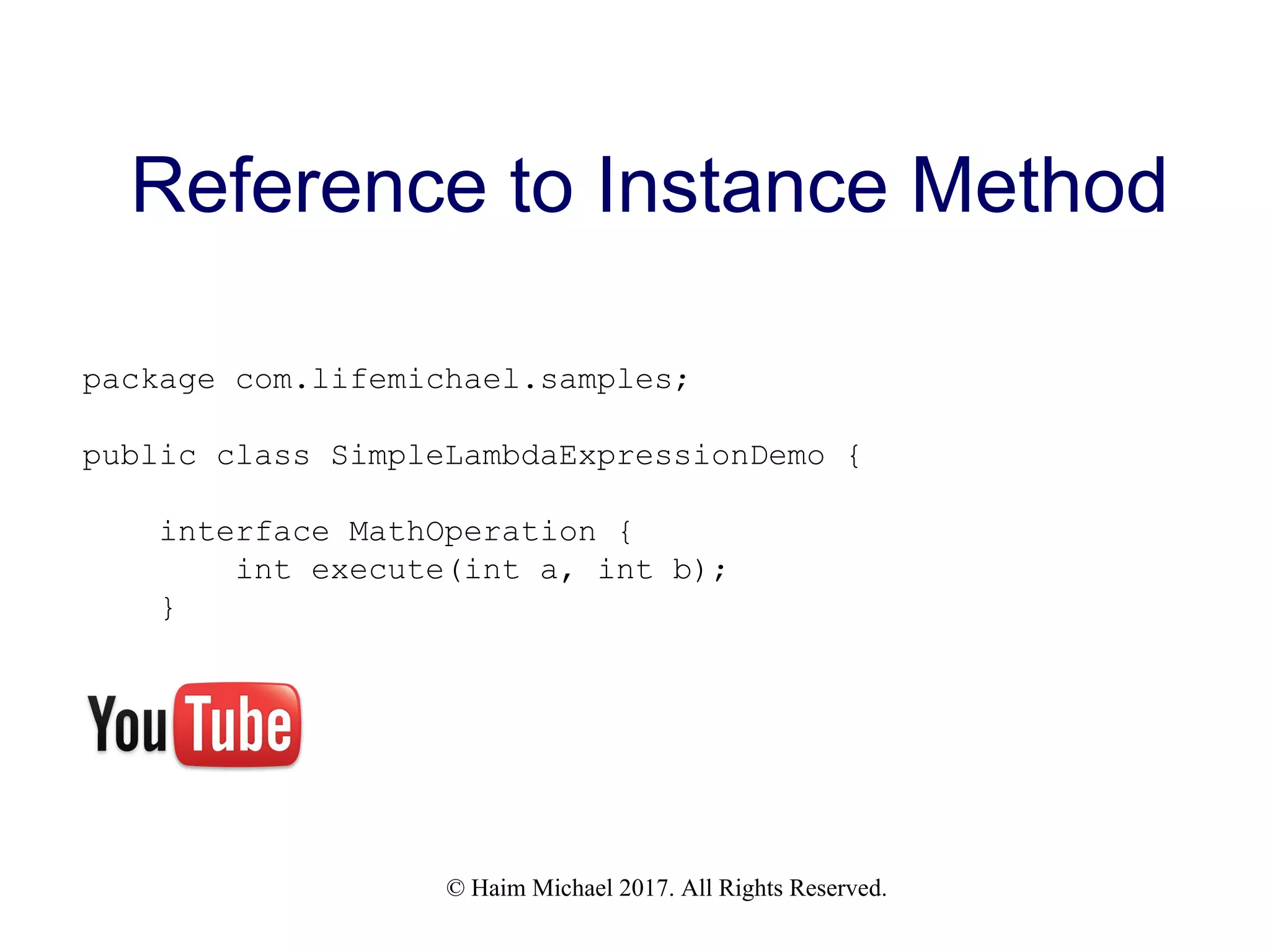
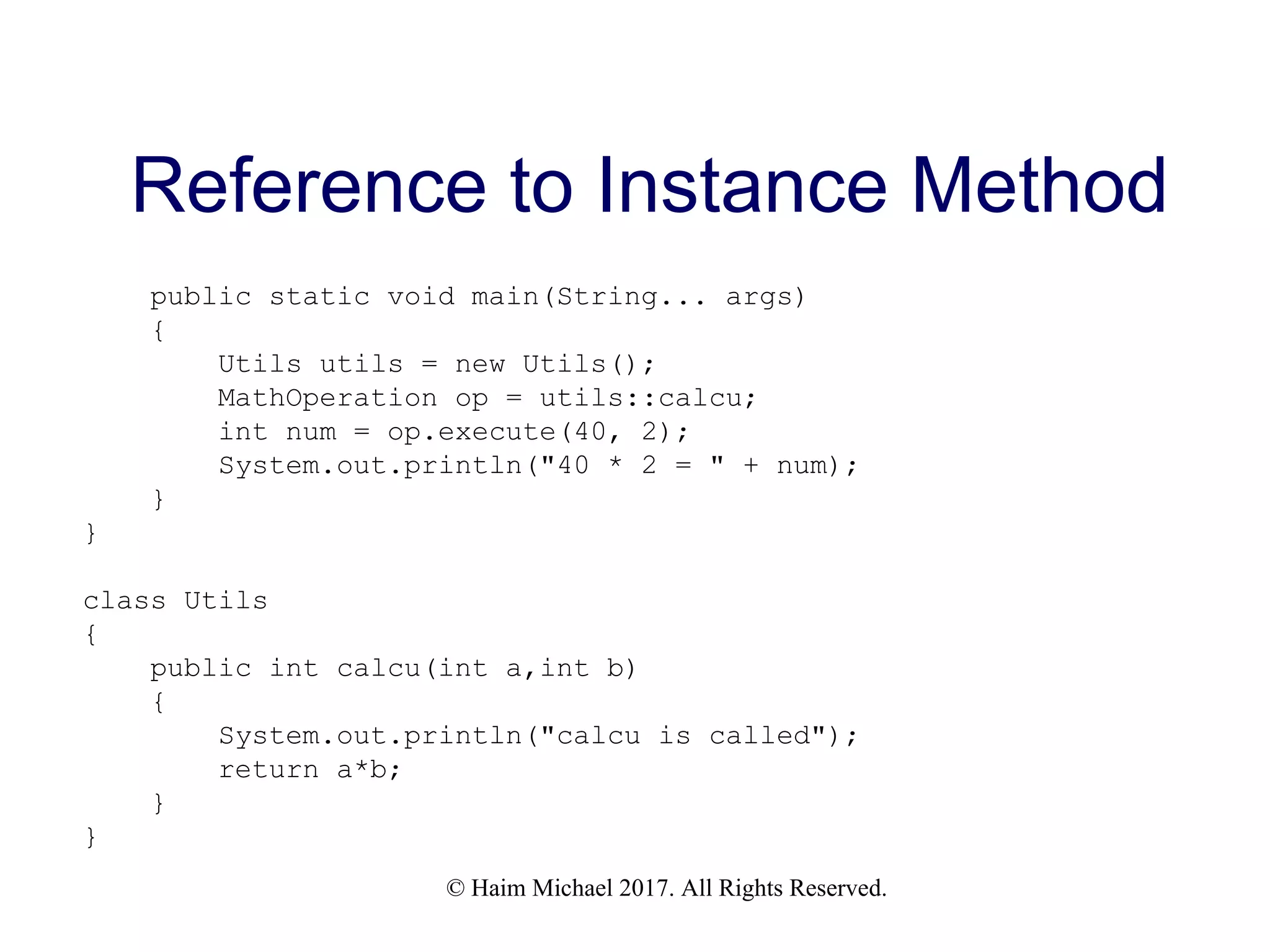
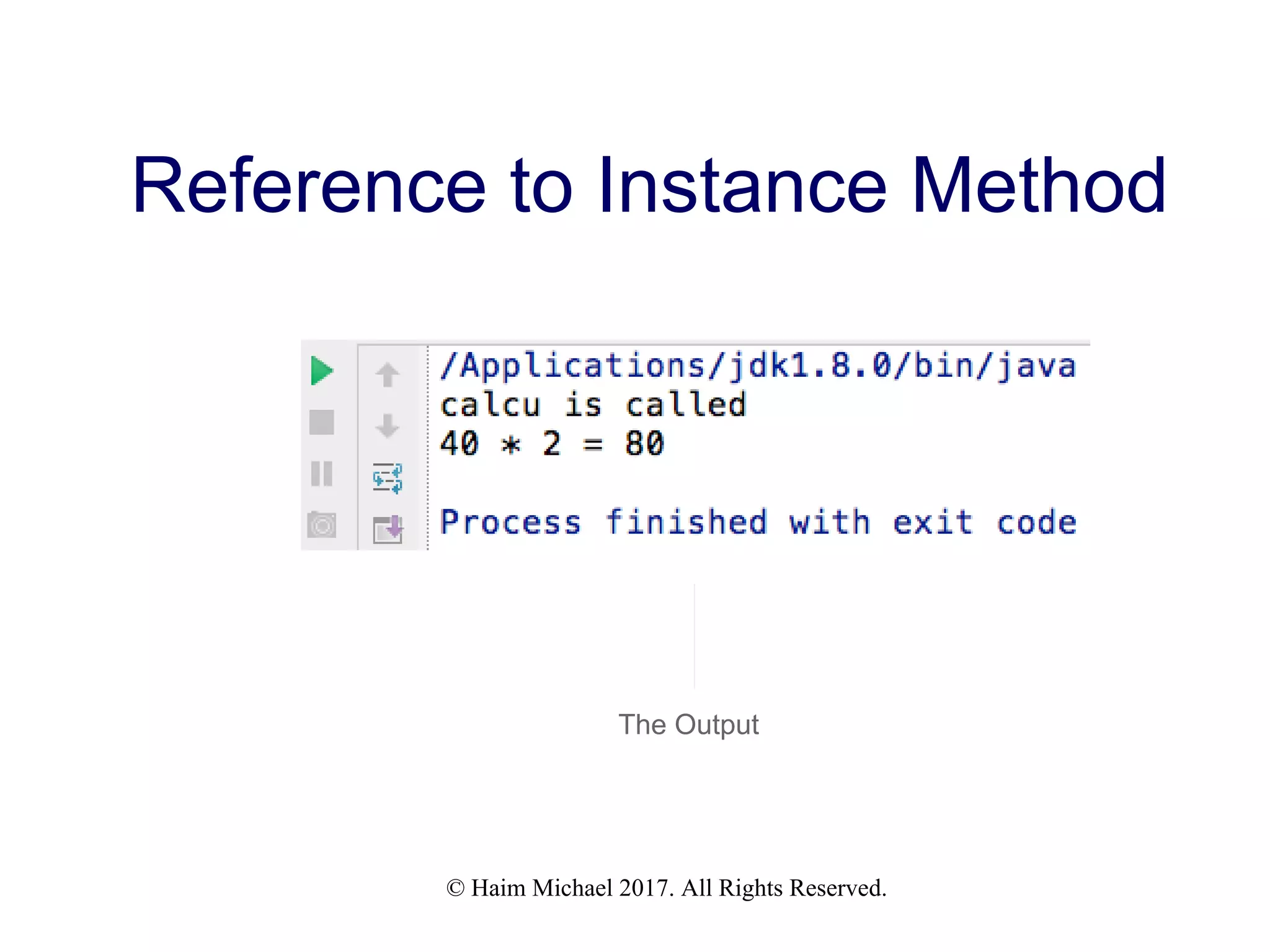
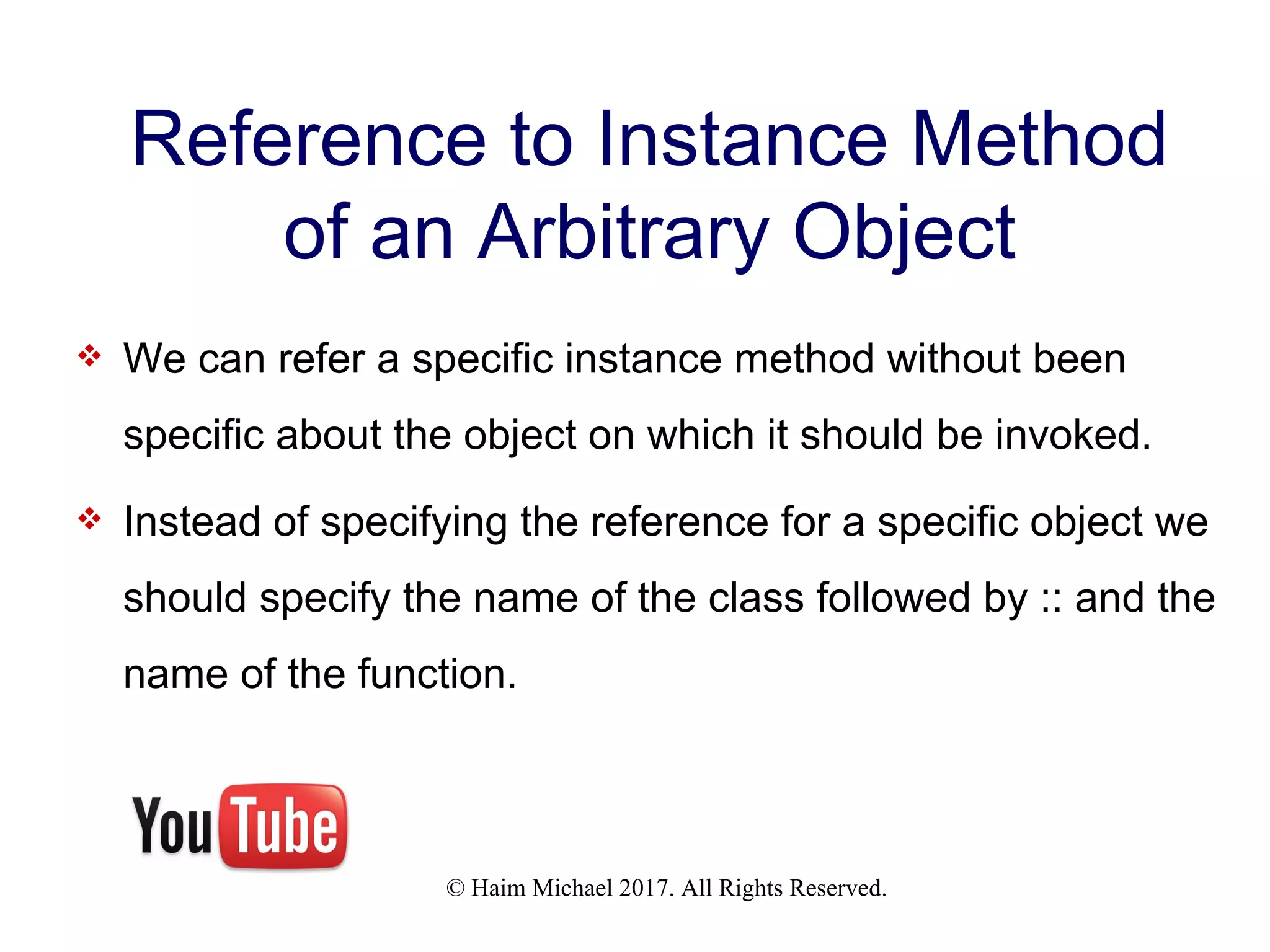
![© Haim Michael 2017. All Rights Reserved. Reference to Instance Method of an Arbitrary Object public class SimpleLambdaExpressionDemo { public static void main(String... args) { Student[] students = { new Student(123123,98,"dave"), new Student(234233,88,"ron"), new Student(452343,82,"ram"), new Student(734344,64,"lara") }; Arrays.sort(students,Student::compareTo); for(Student std : students) { System.out.println(std); } } }](https://image.slidesharecdn.com/functionalprogramminginjava20190514-190514200848/75/Functional-programming-in-Java-30-2048.jpg)
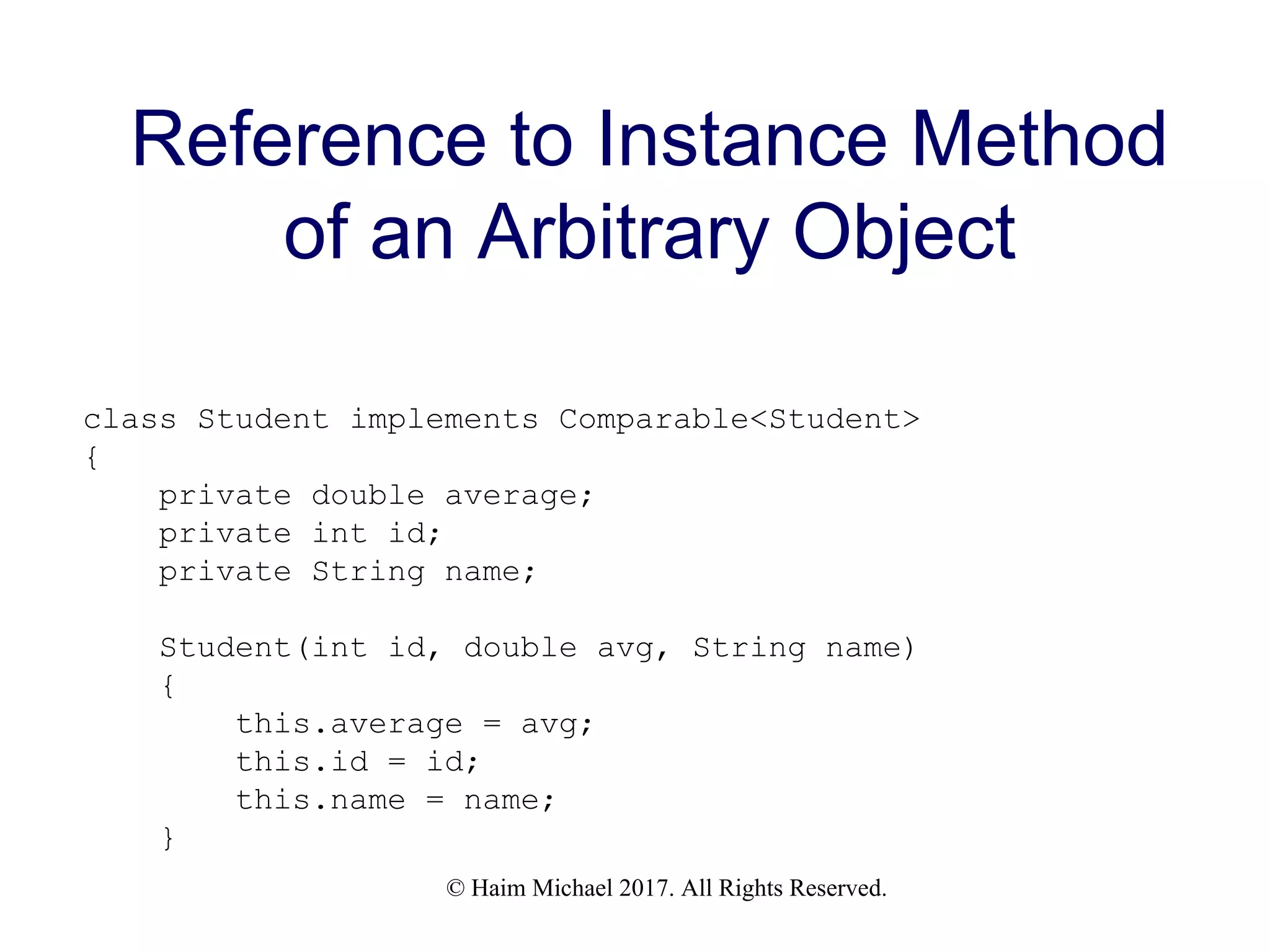
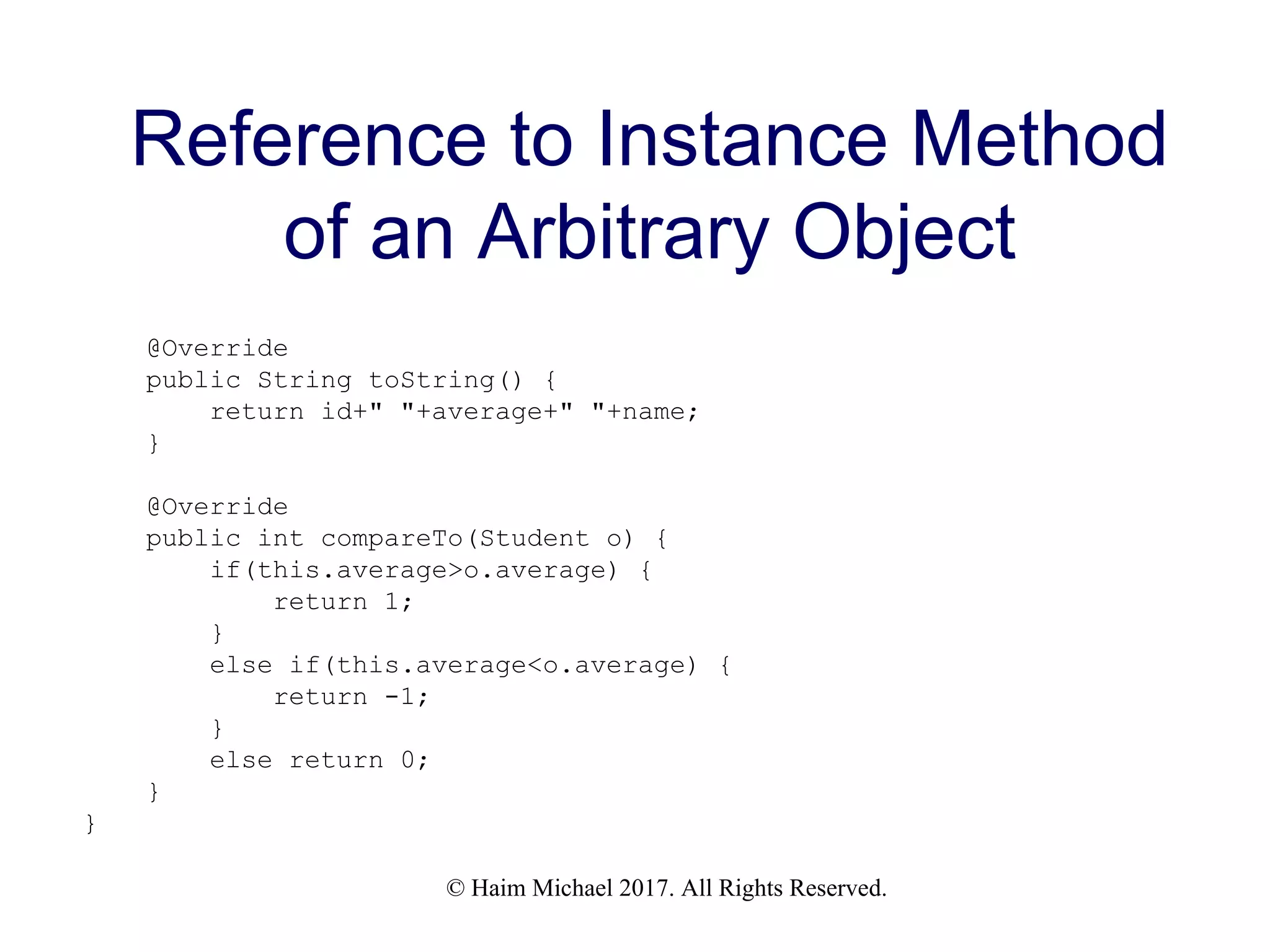
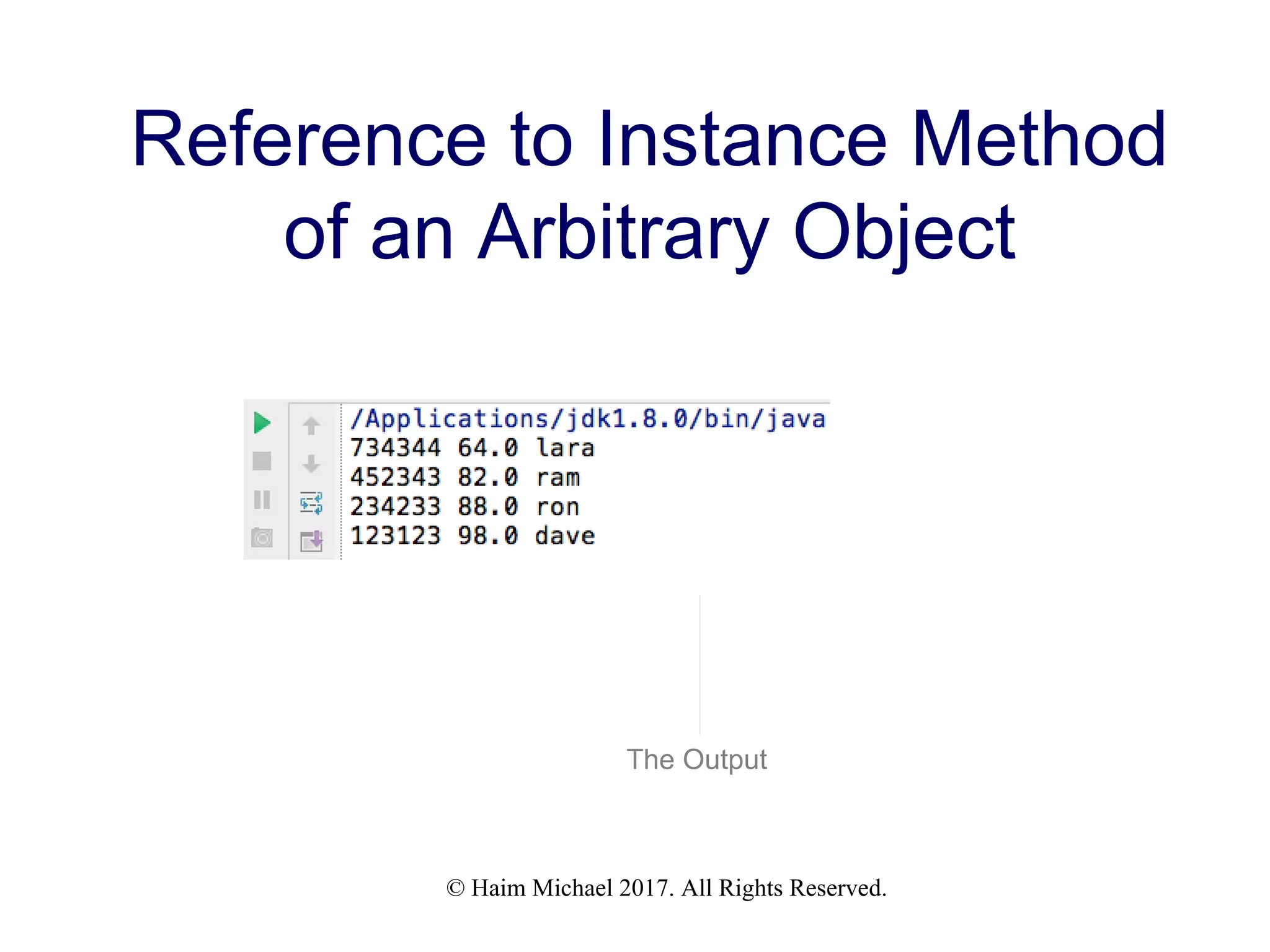
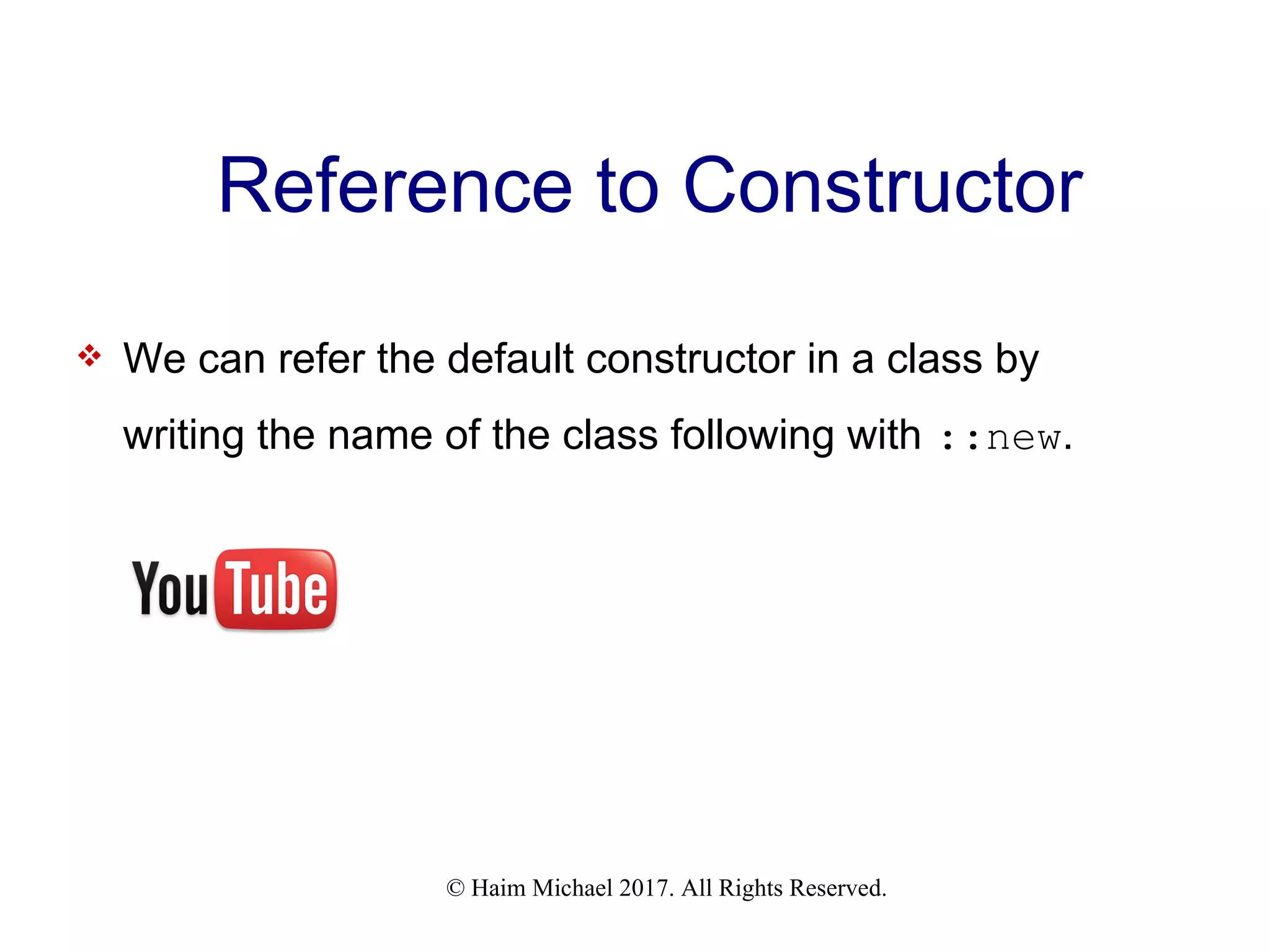
![© Haim Michael 2017. All Rights Reserved. Reference to Constructor public class ReferenceToConstructor { public static void main(String... args) { Student []students = new Student[8]; populate(students, Student::new); for(int i=0; i<students.length; i++) { System.out.println(students[i]); } } public static void populate( Student[] vec, StudentsGenerator ob) { for(int i=0; i<vec.length; i++) { vec[i] = ob.create(); } } }](https://image.slidesharecdn.com/functionalprogramminginjava20190514-190514200848/75/Functional-programming-in-Java-35-2048.jpg)
![© Haim Michael 2017. All Rights Reserved. Reference to Constructor interface StudentsGenerator { public Student create(); } class Student implements Comparable<Student> { private static int counter = 1; private static String[] names ={"david","moshe","anat","jake"}; private double average; private int id; private String name; Student() { id = counter++; name = names[(int)(names.length*Math.random())]; average = (int)(100*Math.random()); }](https://image.slidesharecdn.com/functionalprogramminginjava20190514-190514200848/75/Functional-programming-in-Java-36-2048.jpg)
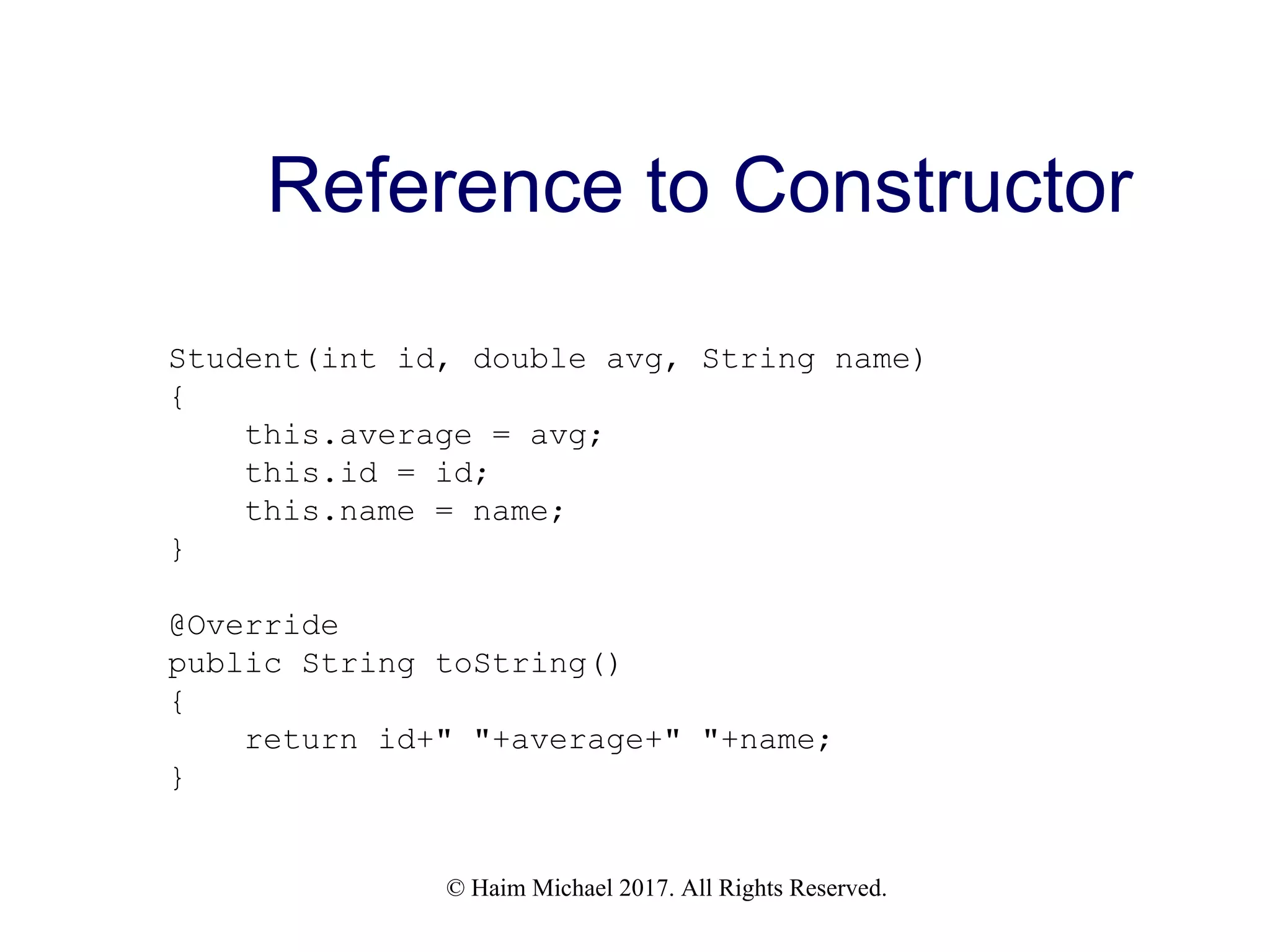
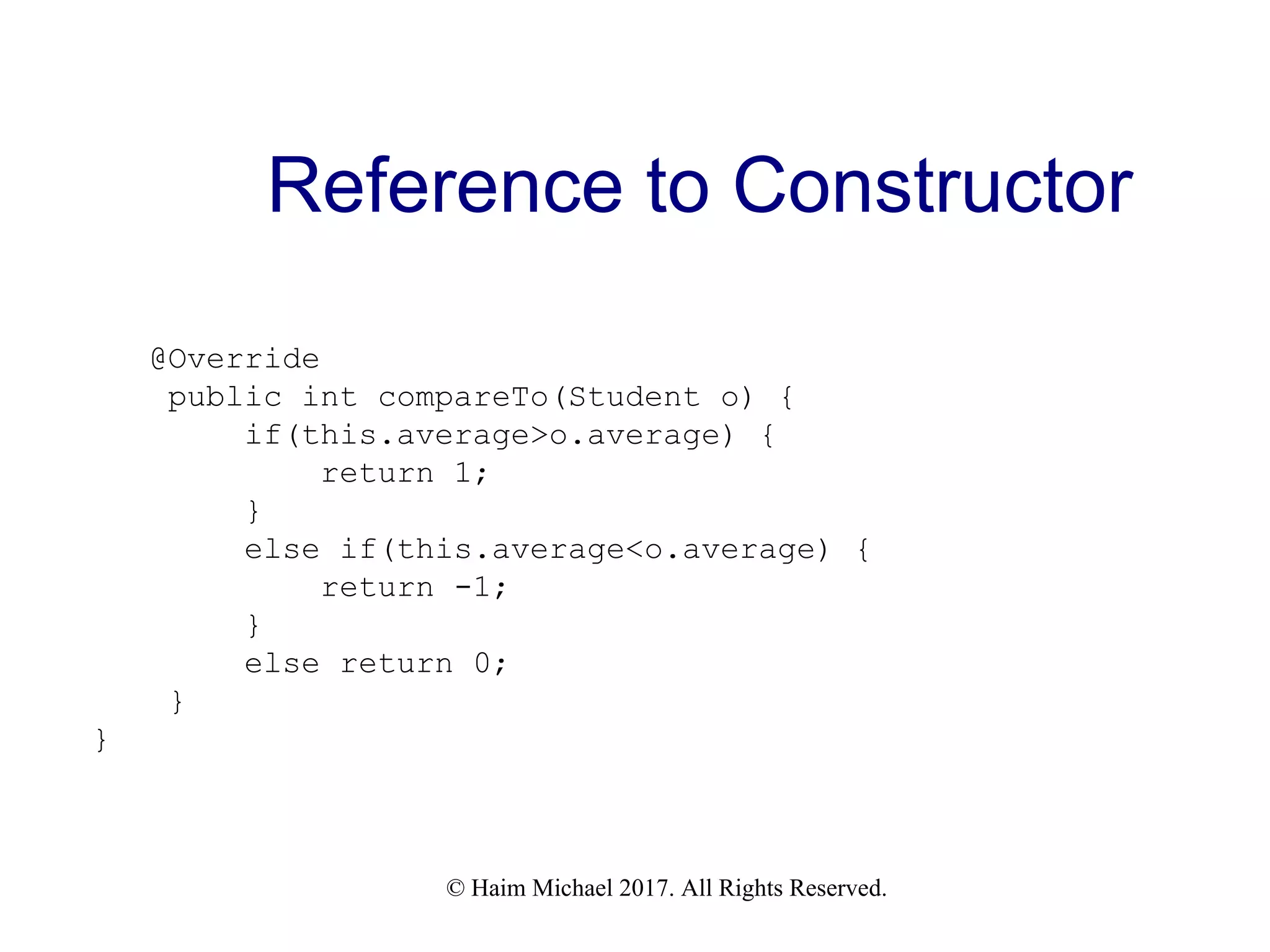
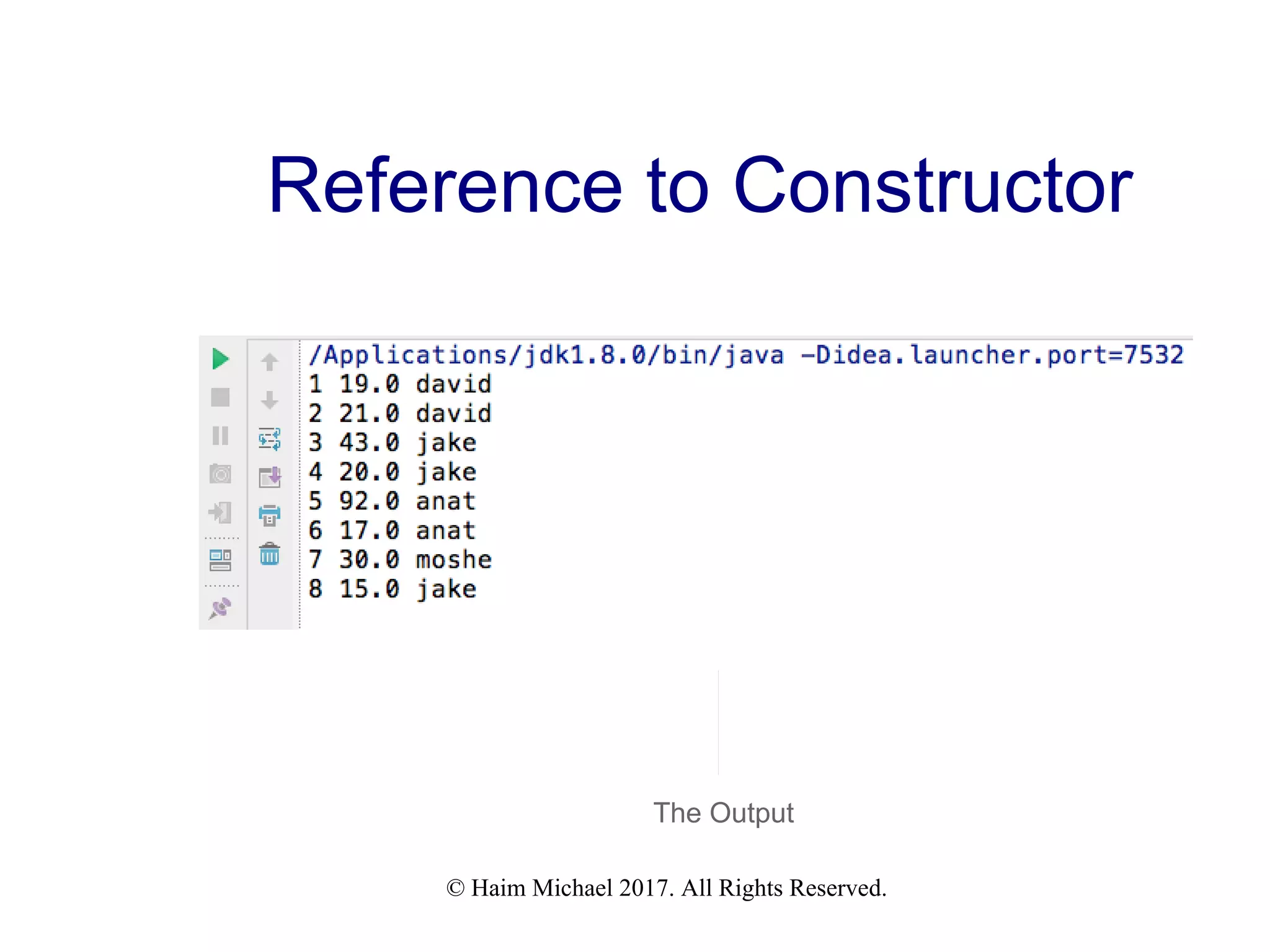

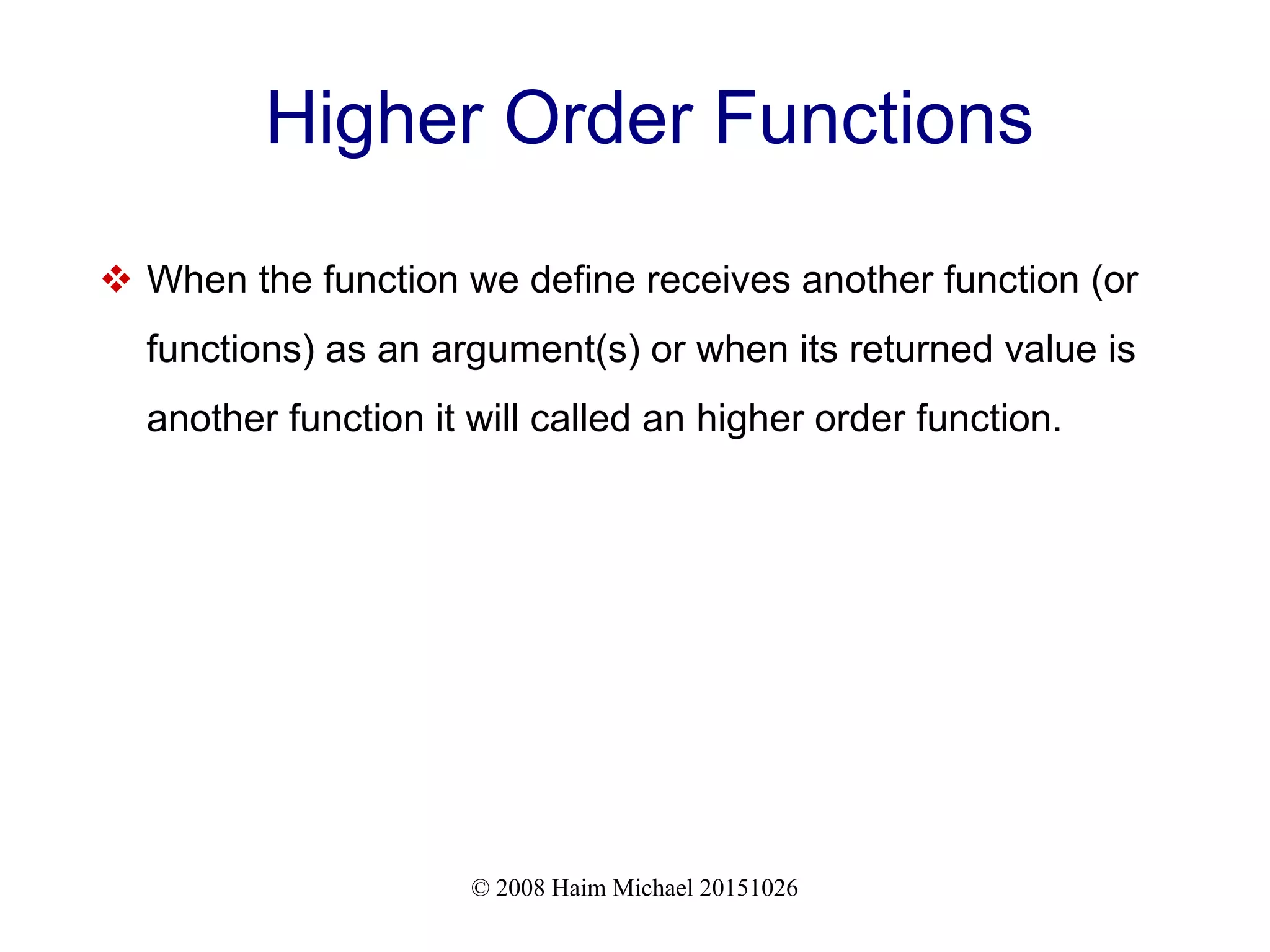

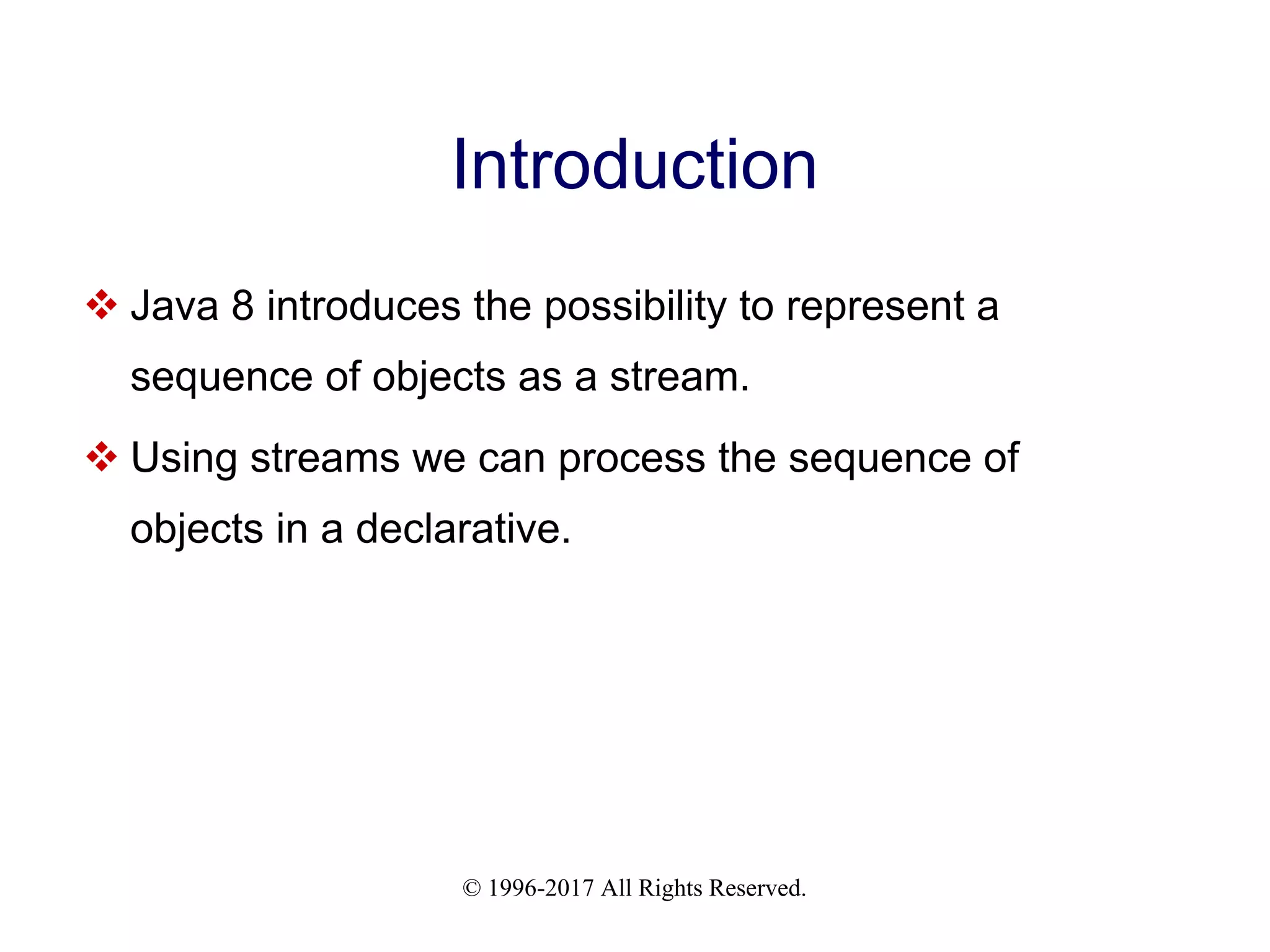
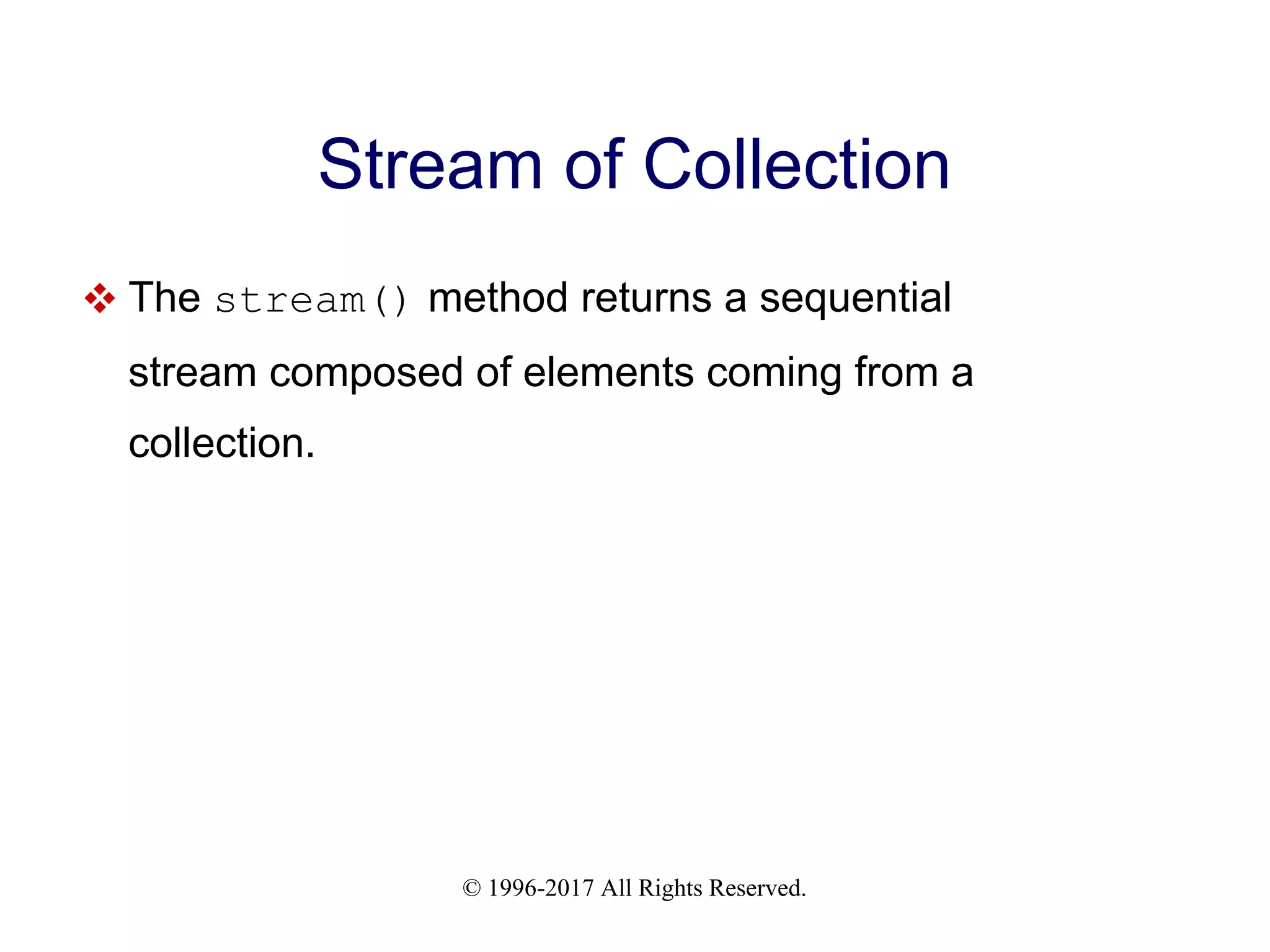
![© 1996-2017 All Rights Reserved. Stream of Collection package com.lifemichael.samples; import java.util.function.*; import java.util.*; import java.util.stream.Stream; public class Program { public static void main(String[] args) { List<Integer> numbers = new LinkedList<Integer>(); numbers.add(24); numbers.add(13); numbers.add(43); numbers.add(45); numbers.add(12); Stream<Integer> stream = numbers.stream(); stream.filter(num->num%2==0). forEach(num->System.out.println(num)); } }](https://image.slidesharecdn.com/functionalprogramminginjava20190514-190514200848/75/Functional-programming-in-Java-45-2048.jpg)
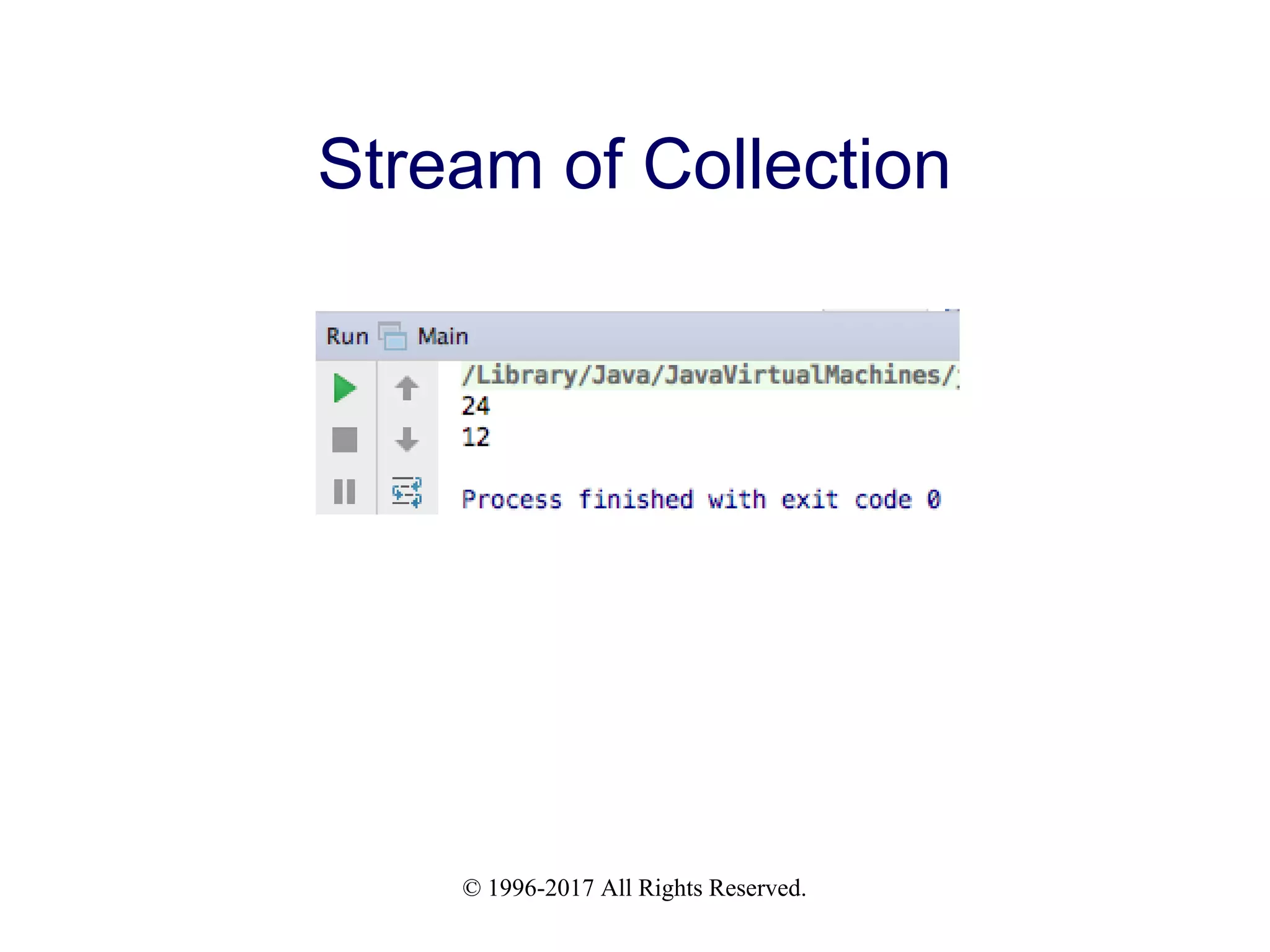
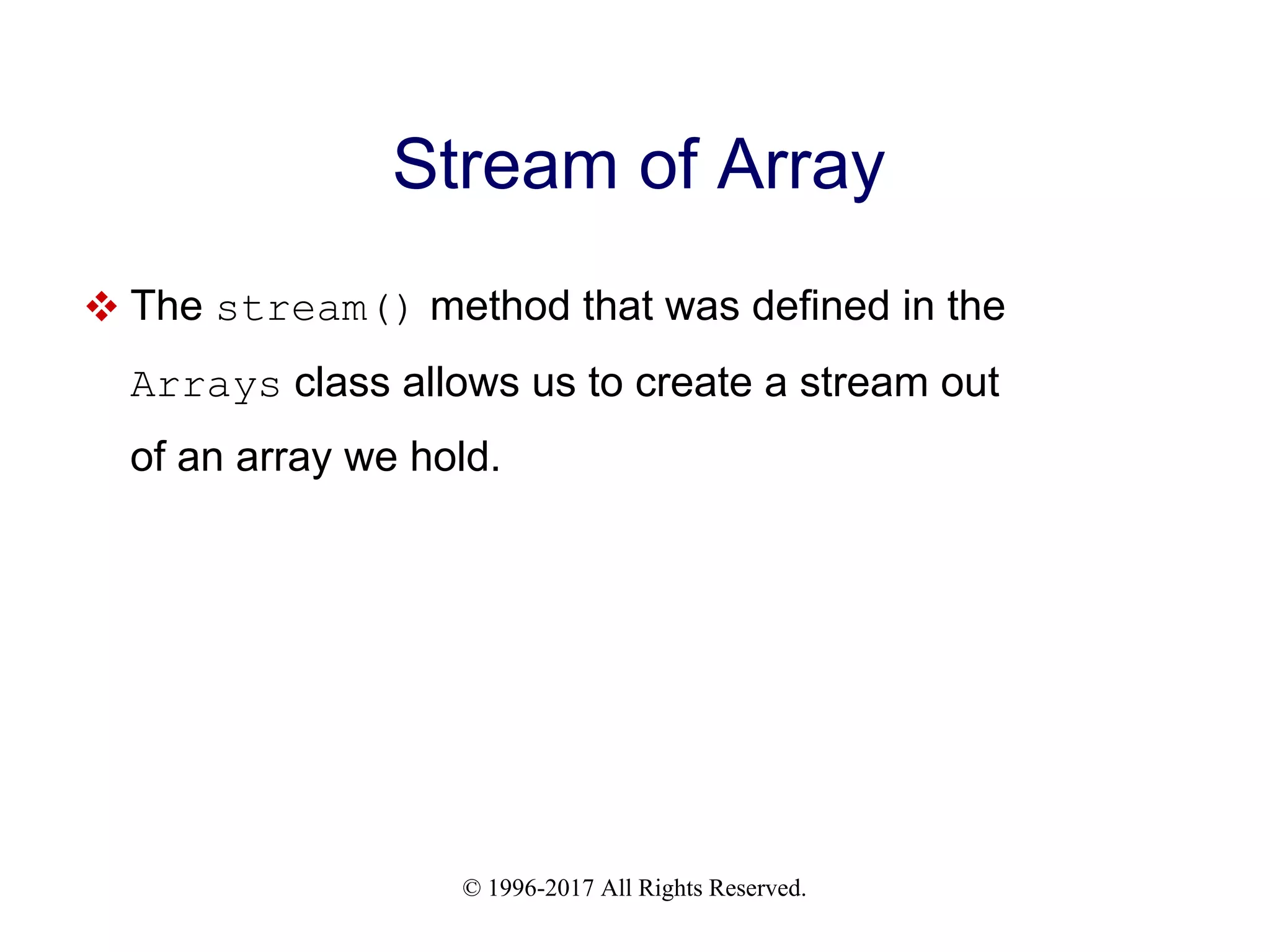
![© 1996-2017 All Rights Reserved. Stream of Array String[] cities = new String[]{"Rome", "London", "Moscow", "Ashdod", "Haifa", "Eilat", "Zermatt"}; Stream<String> full = Arrays. stream(cities); Stream<String> partial = Arrays. stream(cities, 1, 3); full.forEach(str->System.out.println(str));](https://image.slidesharecdn.com/functionalprogramminginjava20190514-190514200848/75/Functional-programming-in-Java-48-2048.jpg)
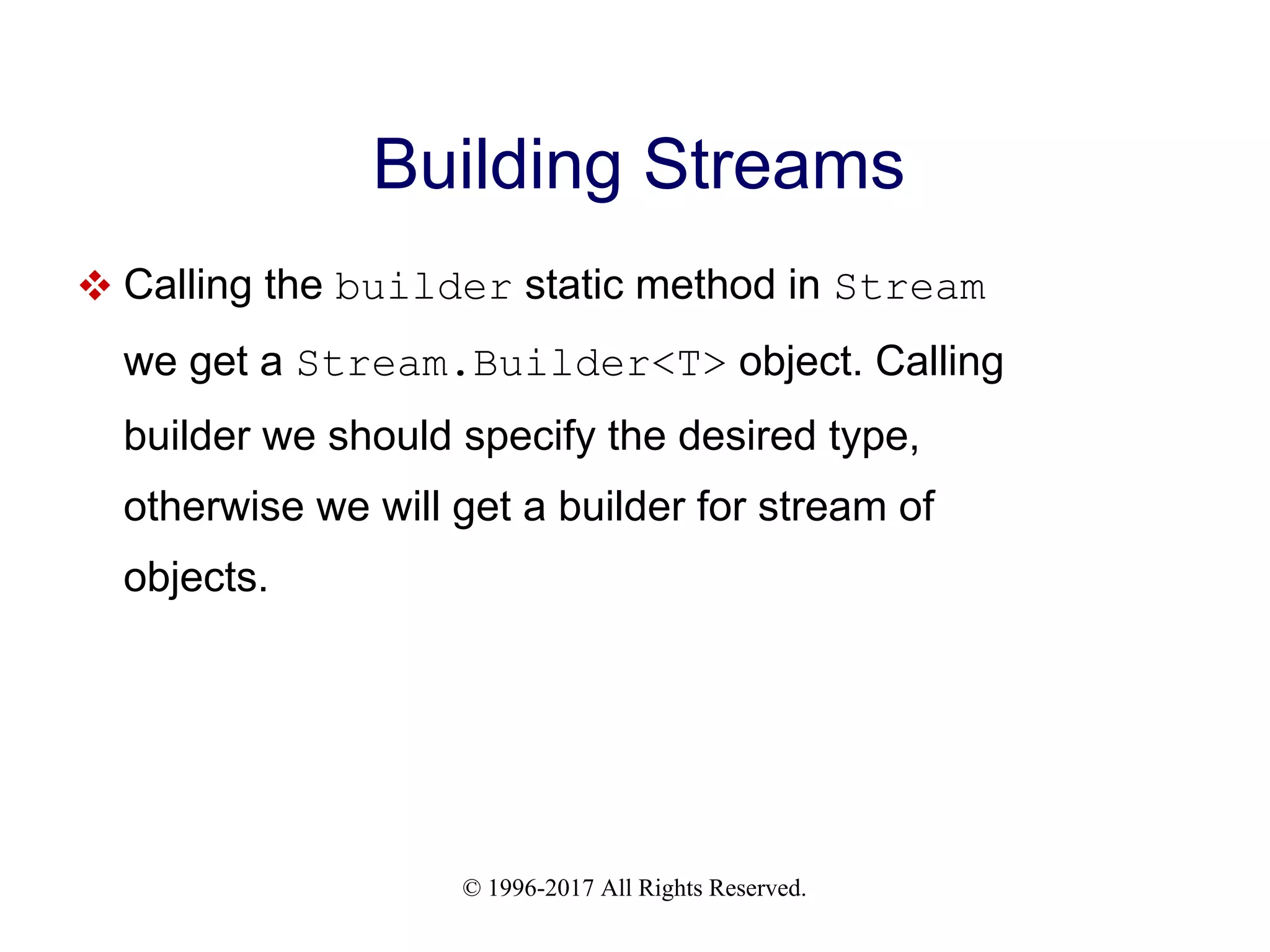
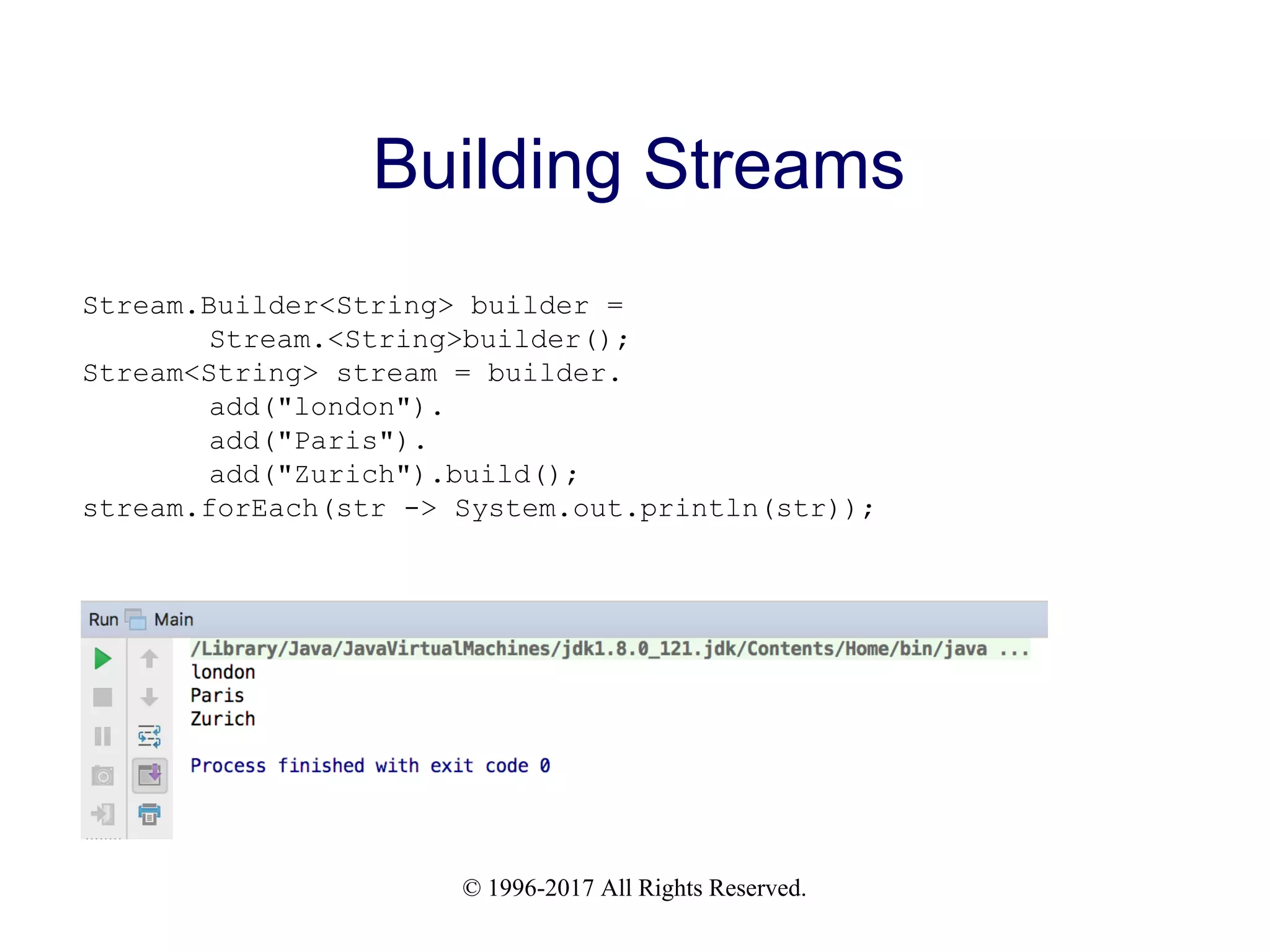
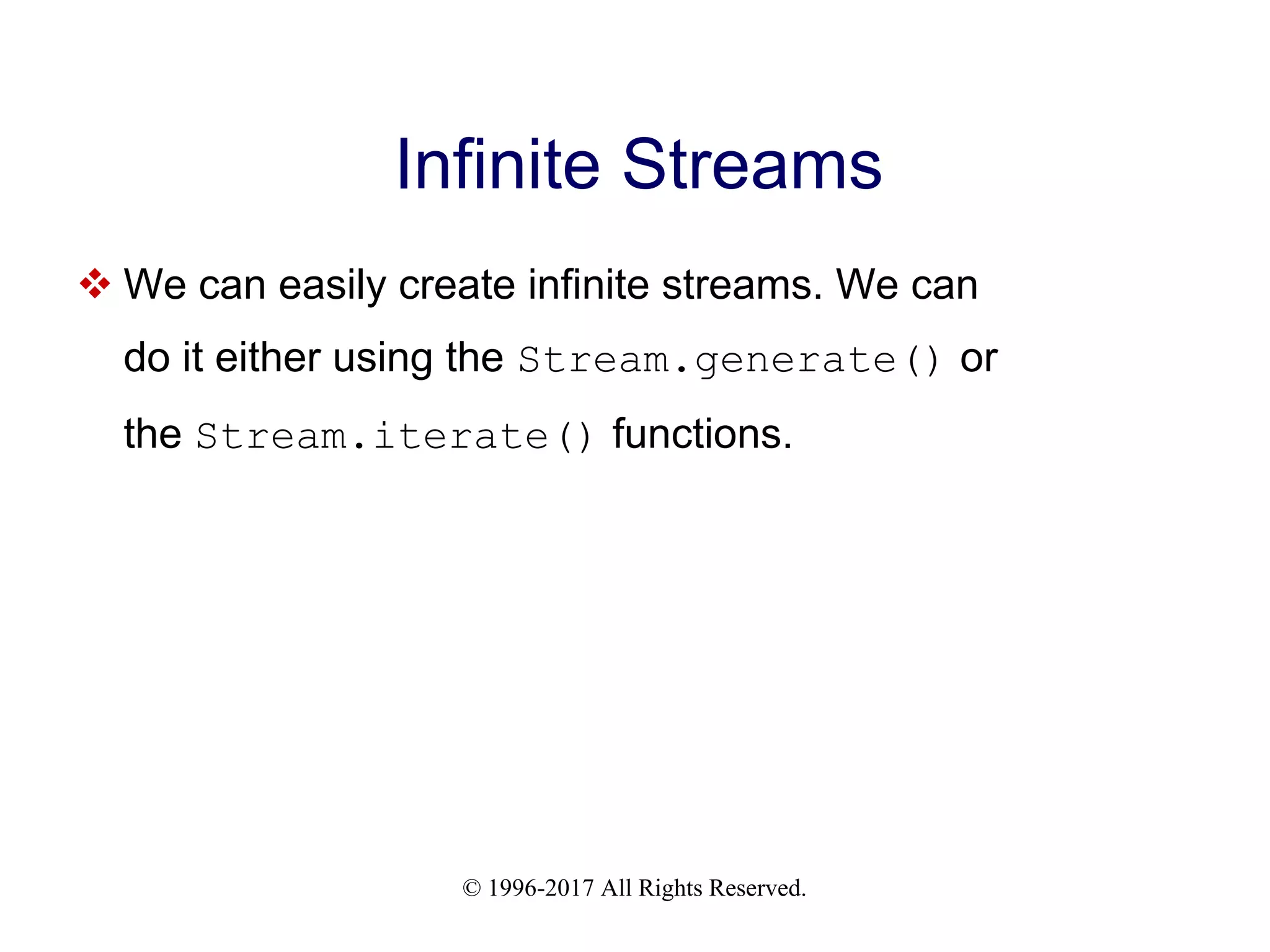
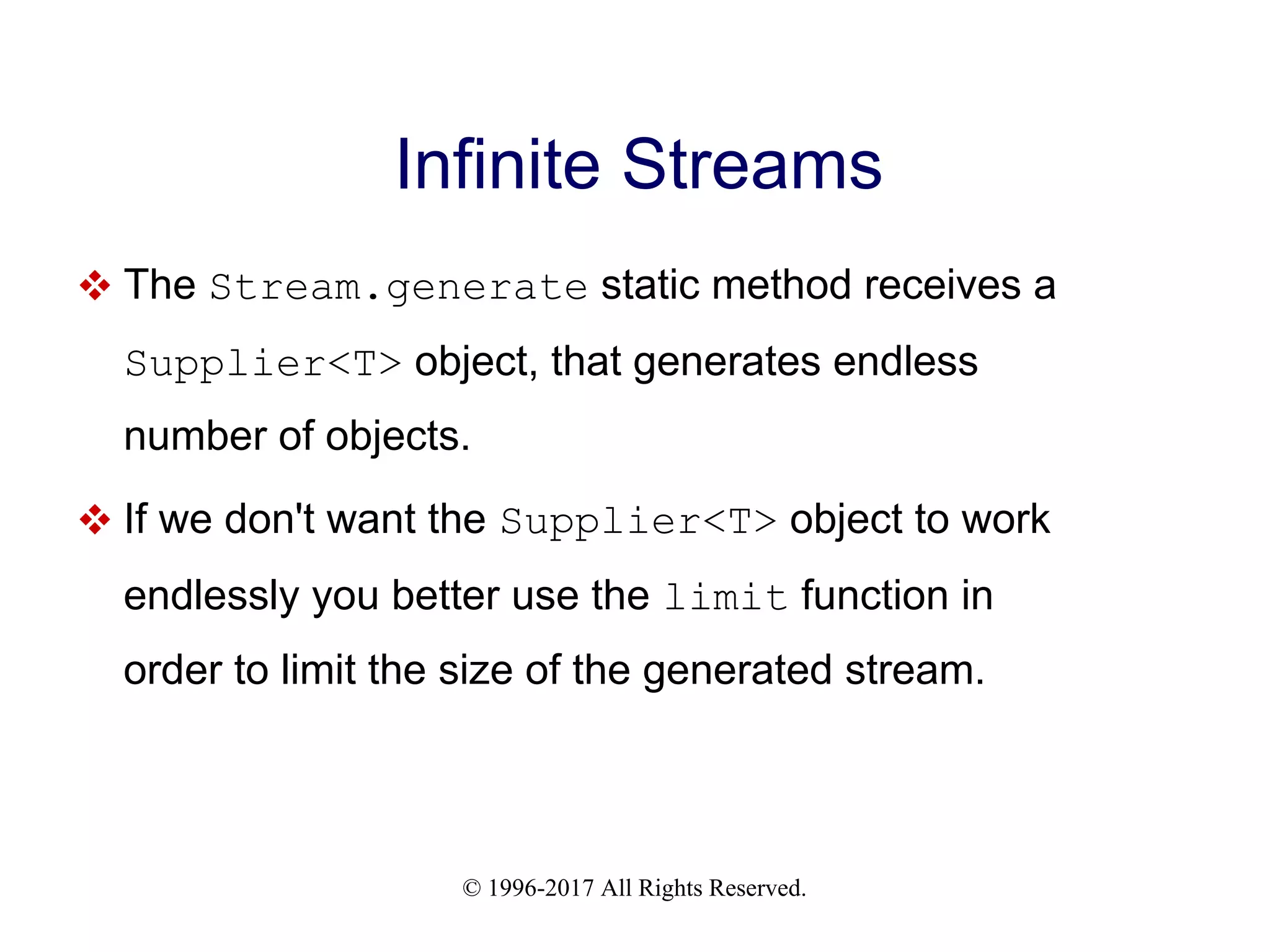
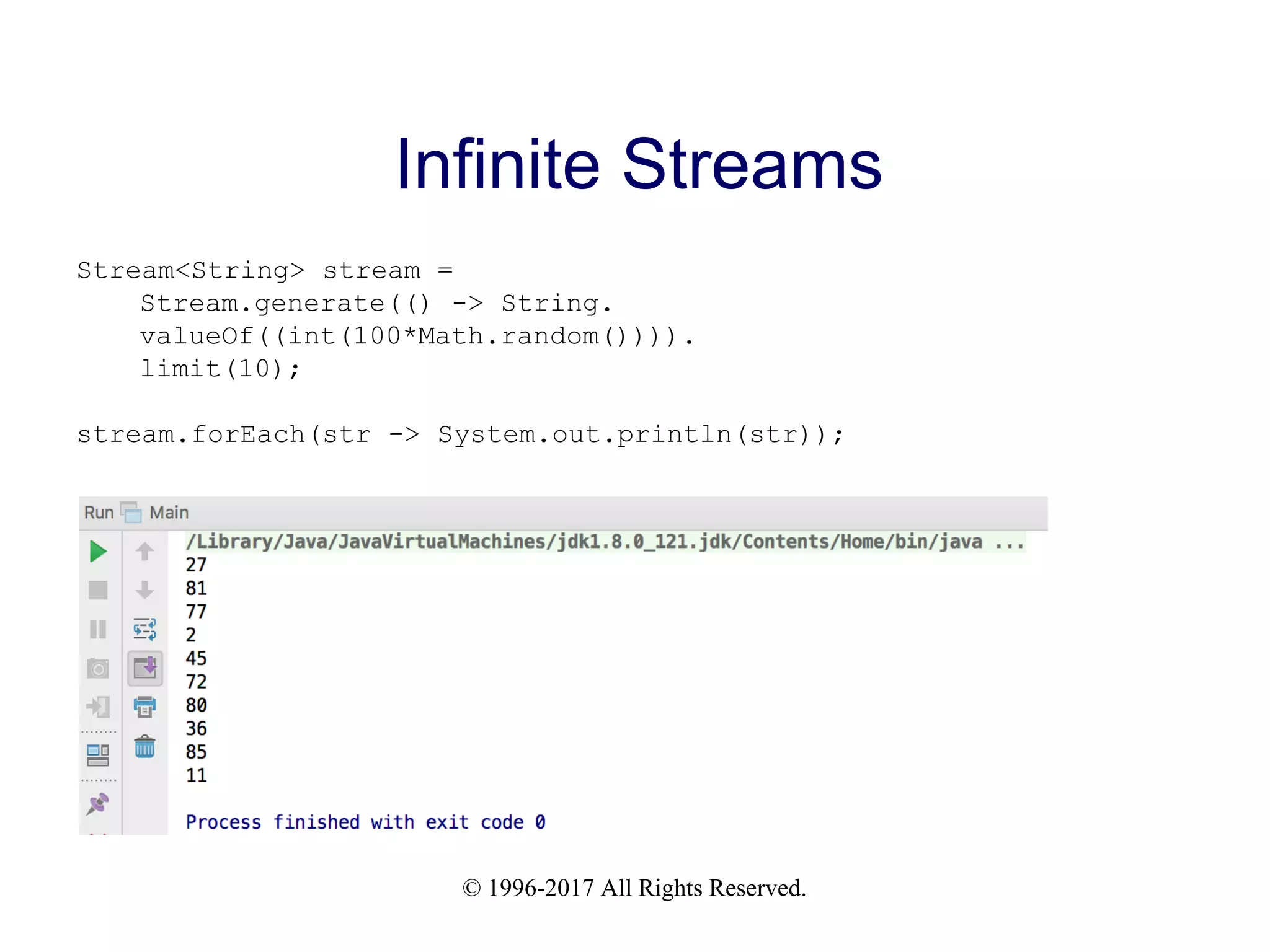
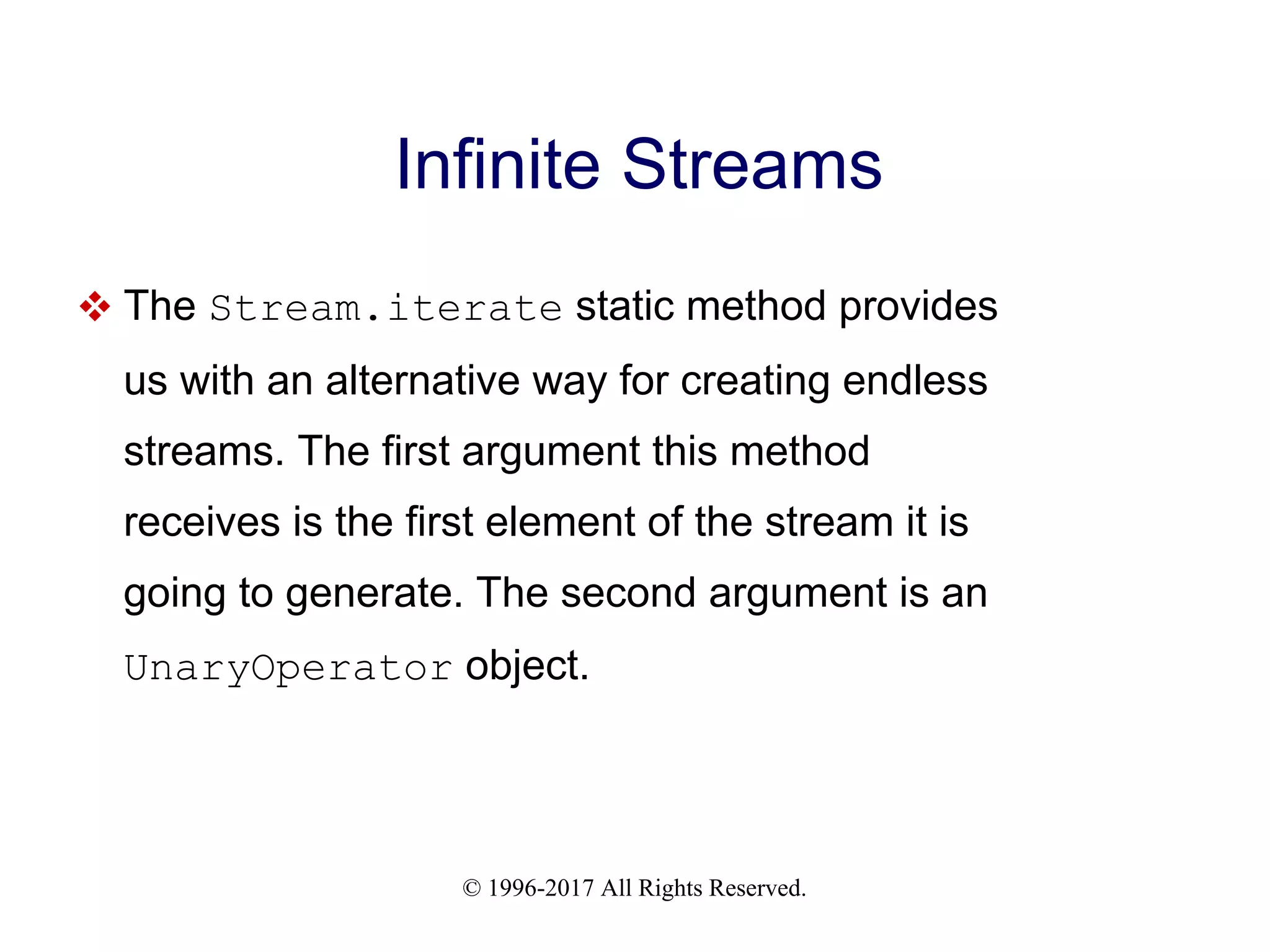
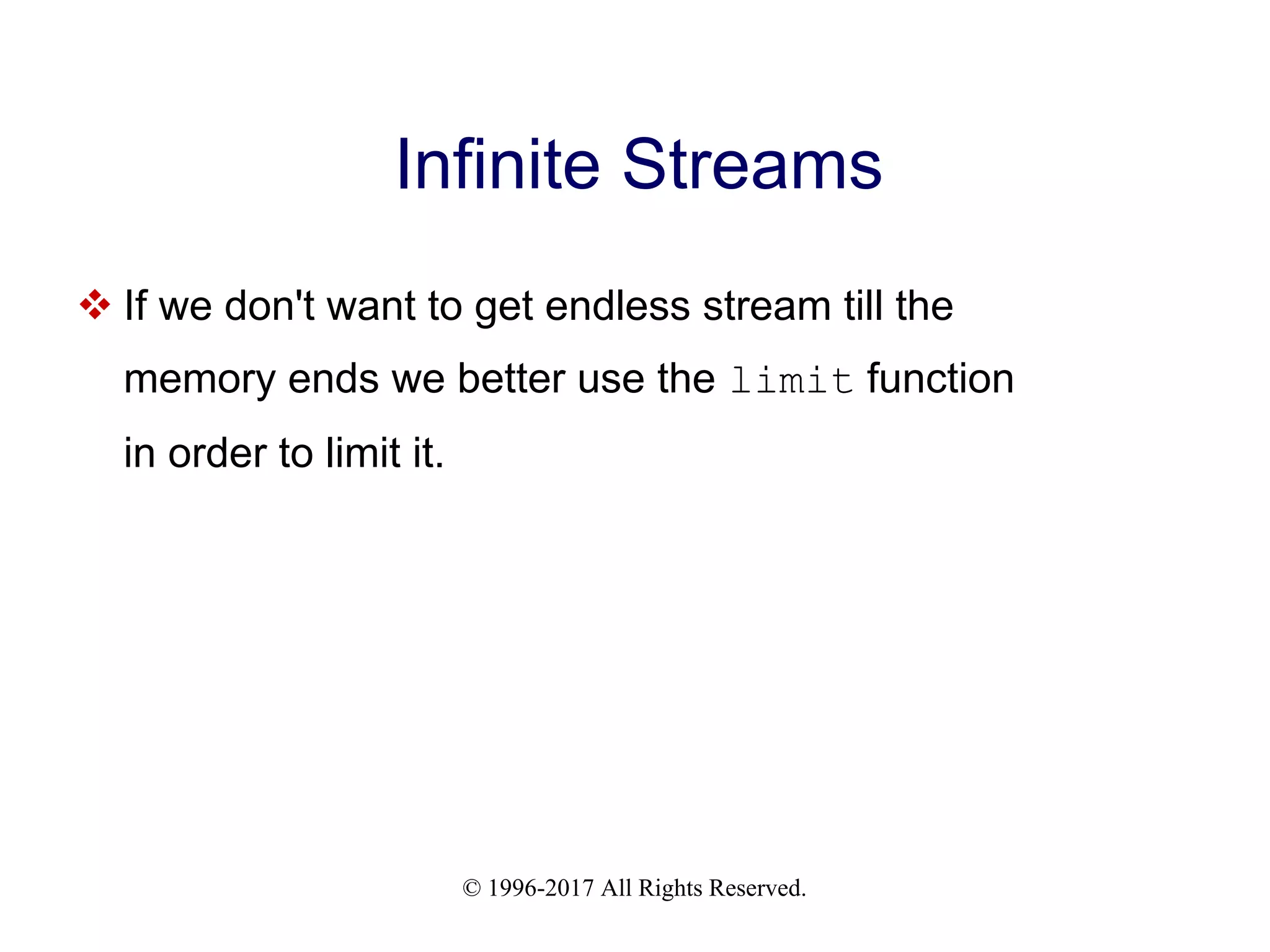
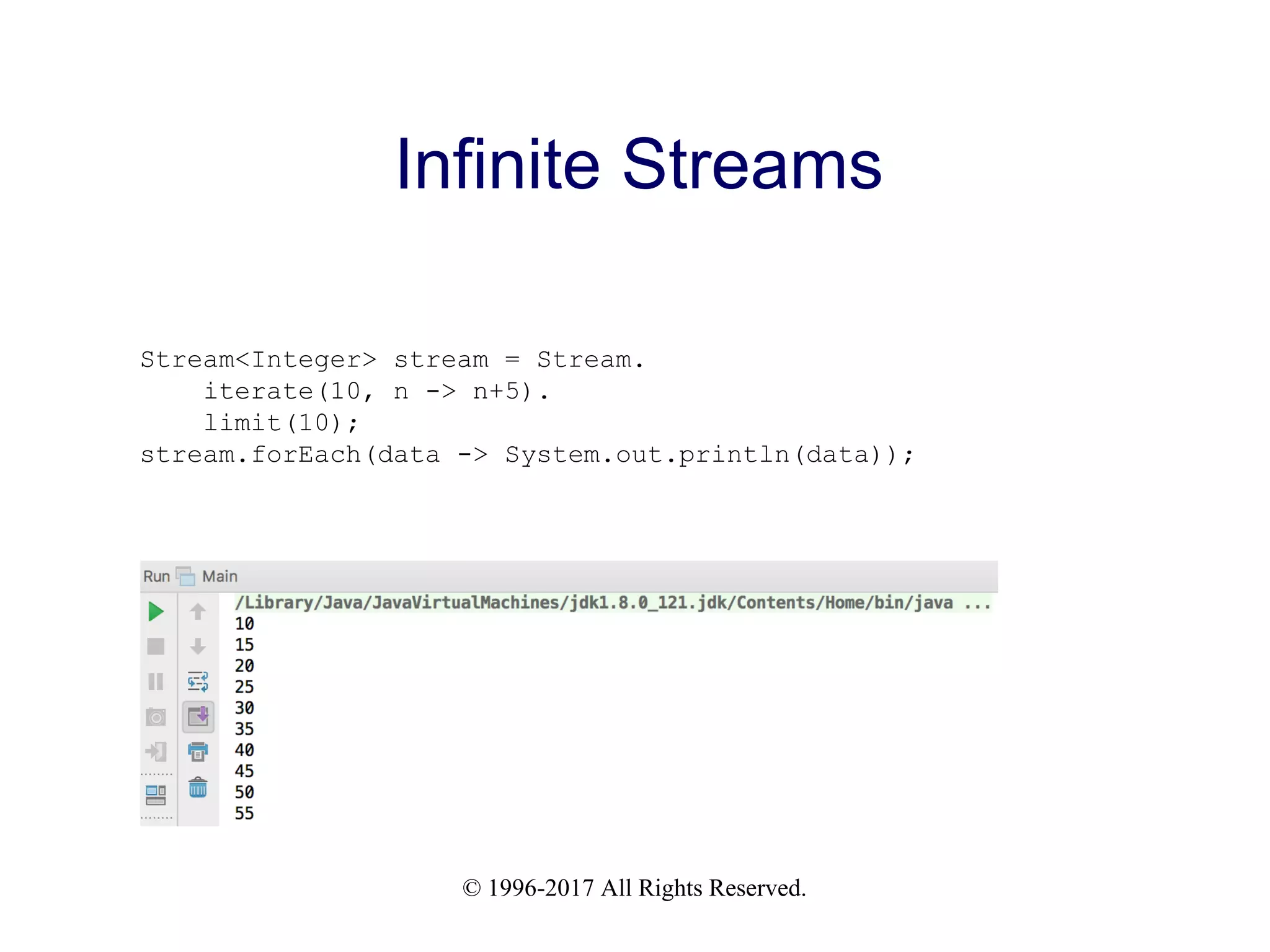
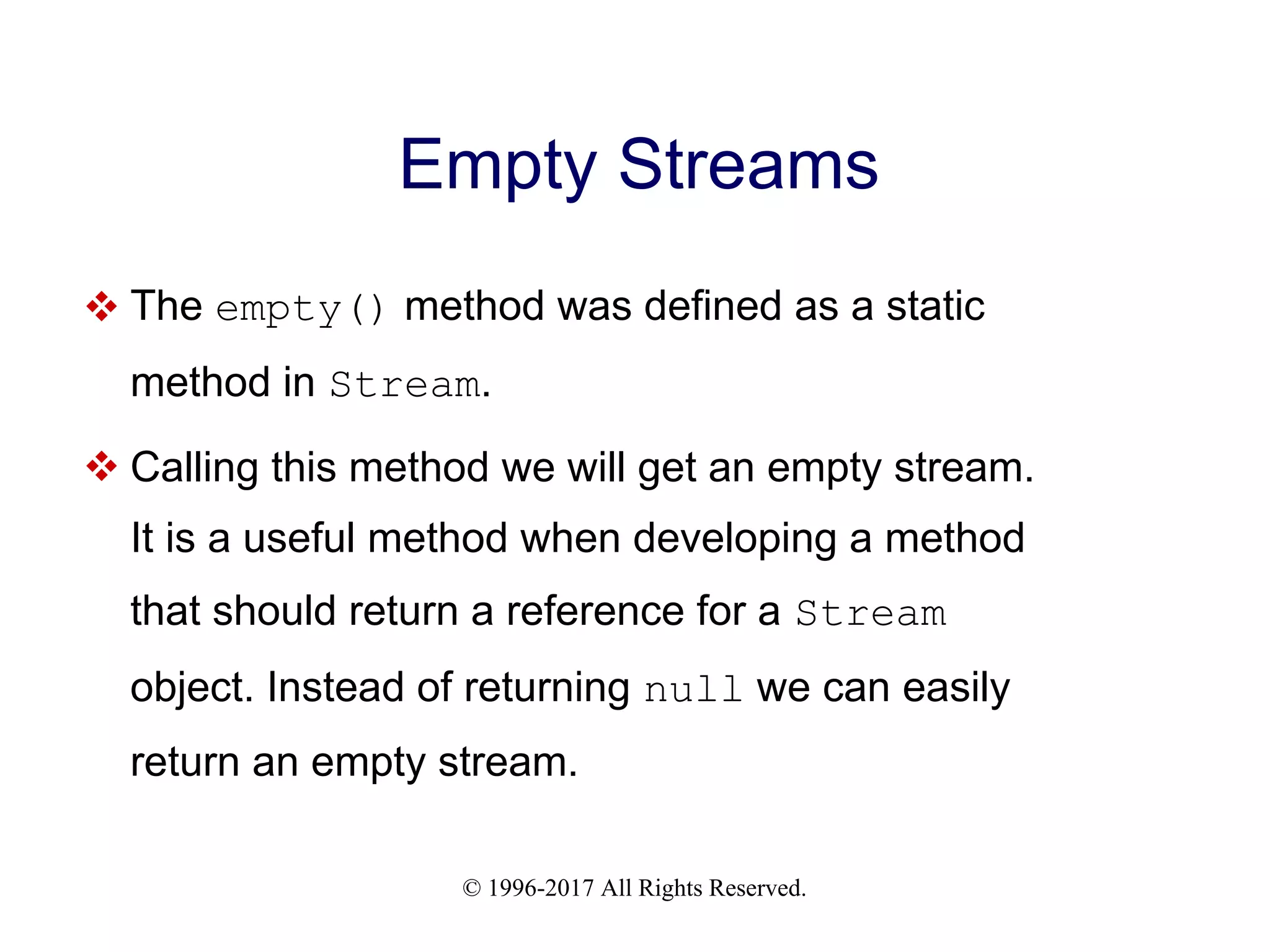
![© 1996-2017 All Rights Reserved. Empty Streams public class Main { public static void main(String[] args) { List<String> ob = null; Stream stream = streamOf(ob); } public static Stream<String> streamOf(List<String> list) { return list == null || list.isEmpty() ? Stream.empty() : list.stream(); } }](https://image.slidesharecdn.com/functionalprogramminginjava20190514-190514200848/75/Functional-programming-in-Java-58-2048.jpg)
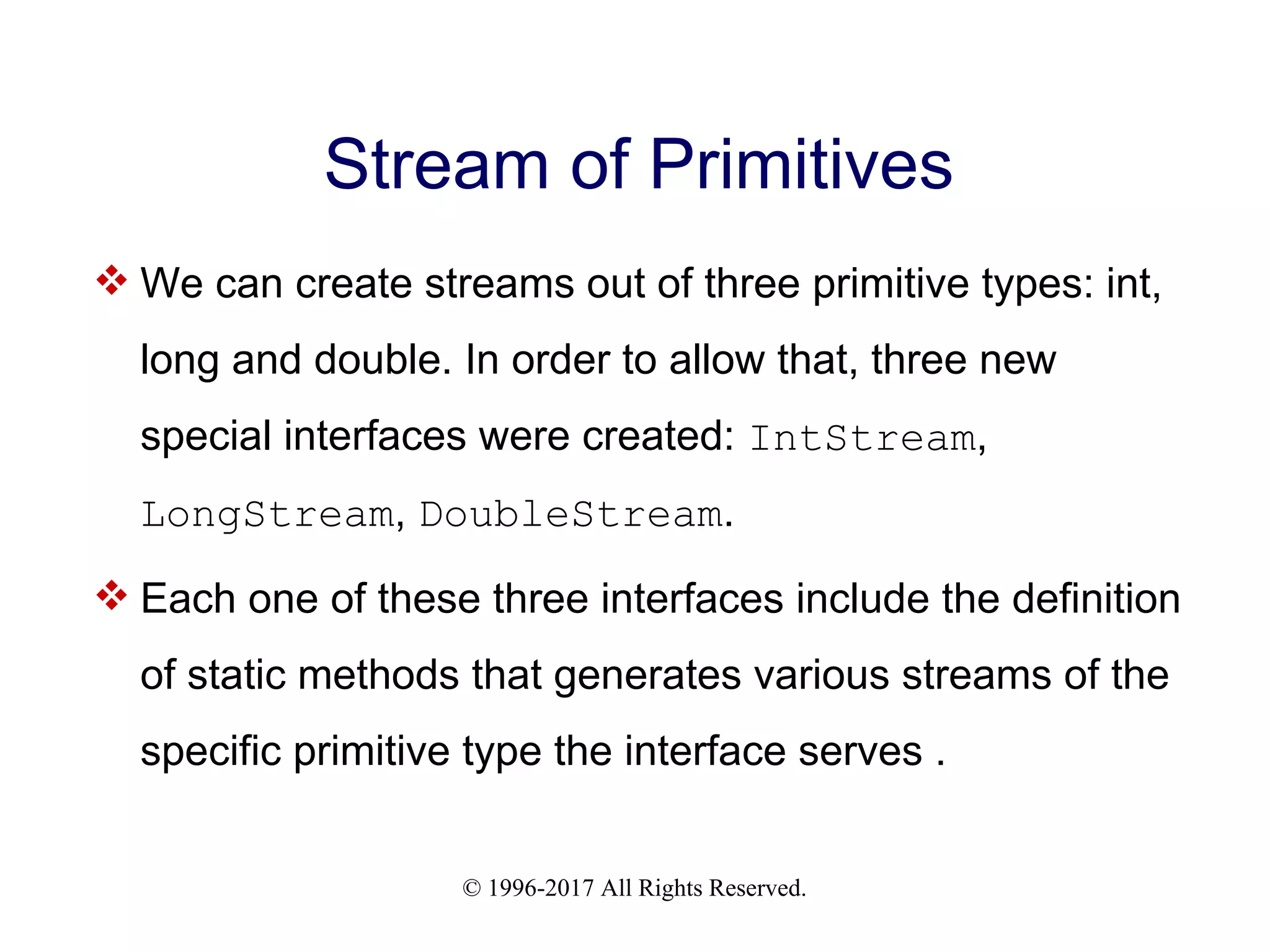
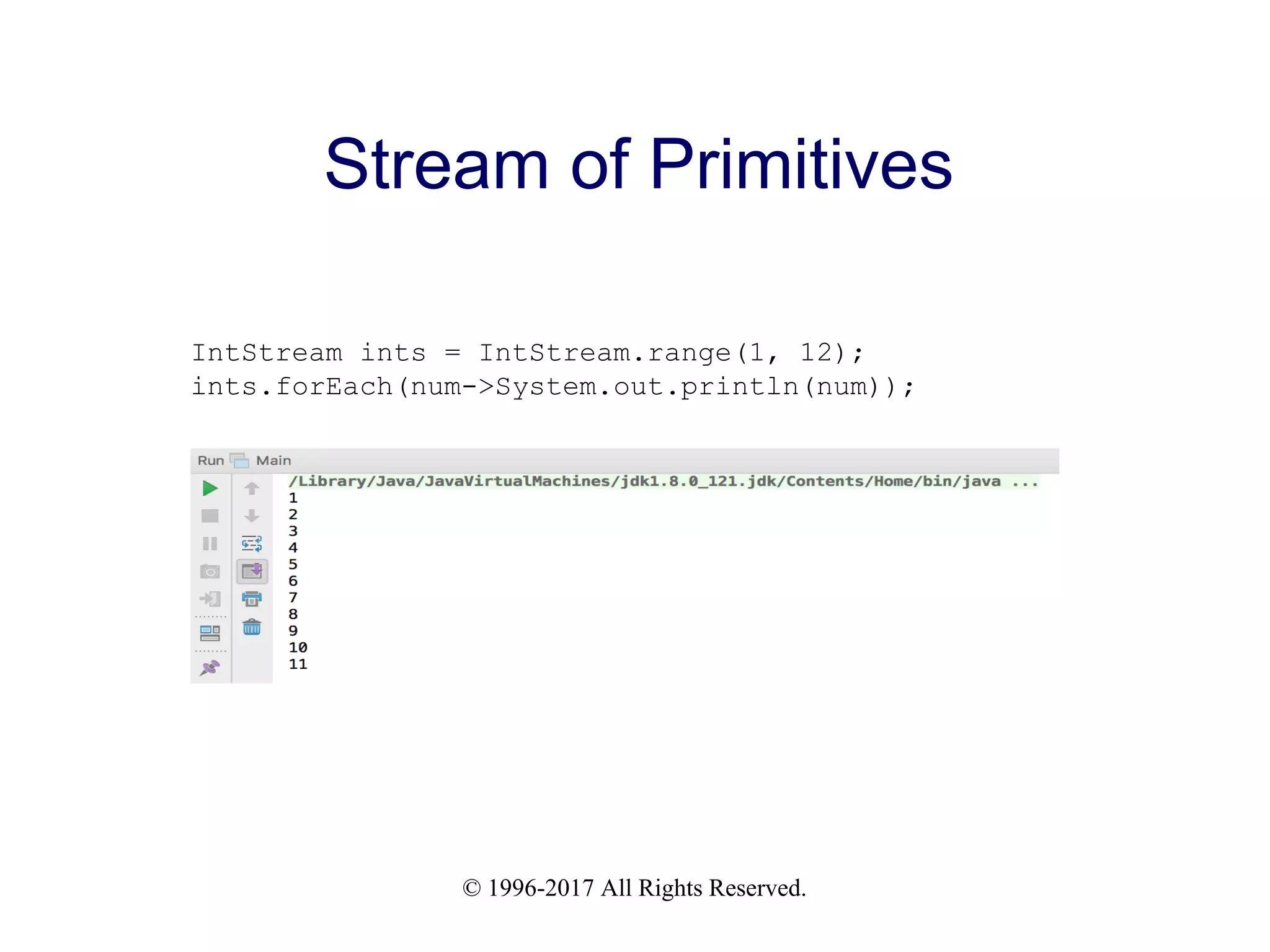
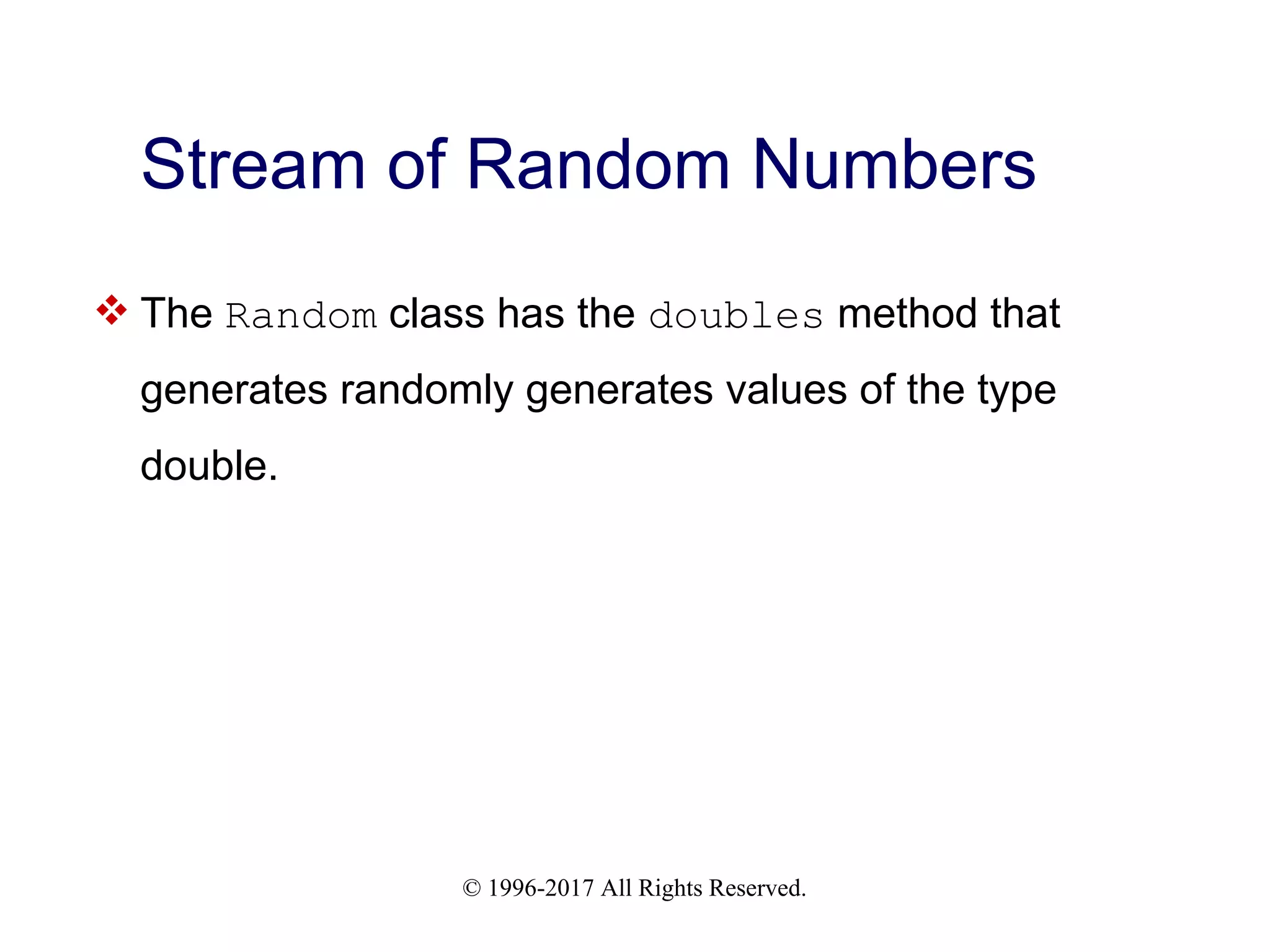
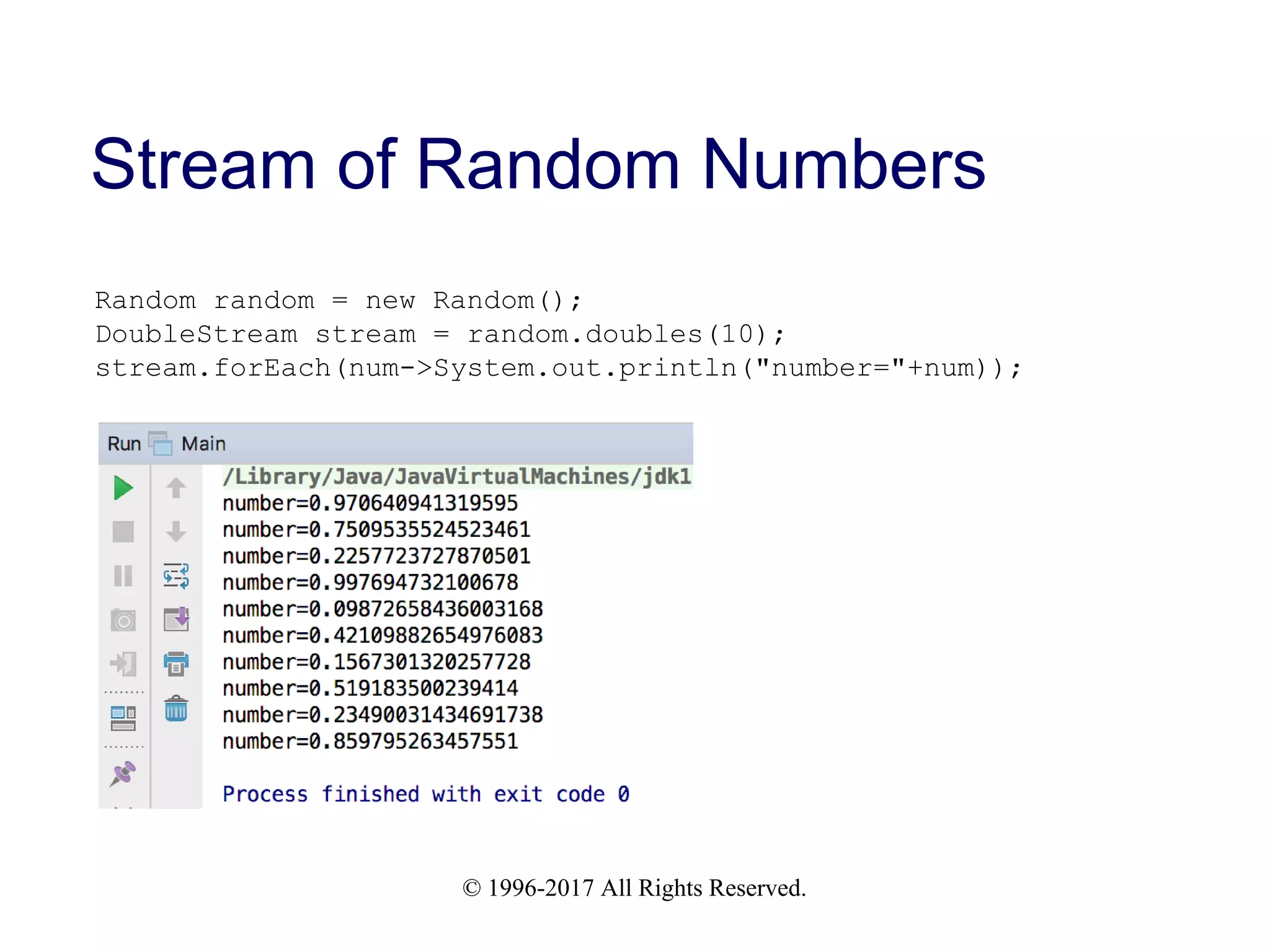
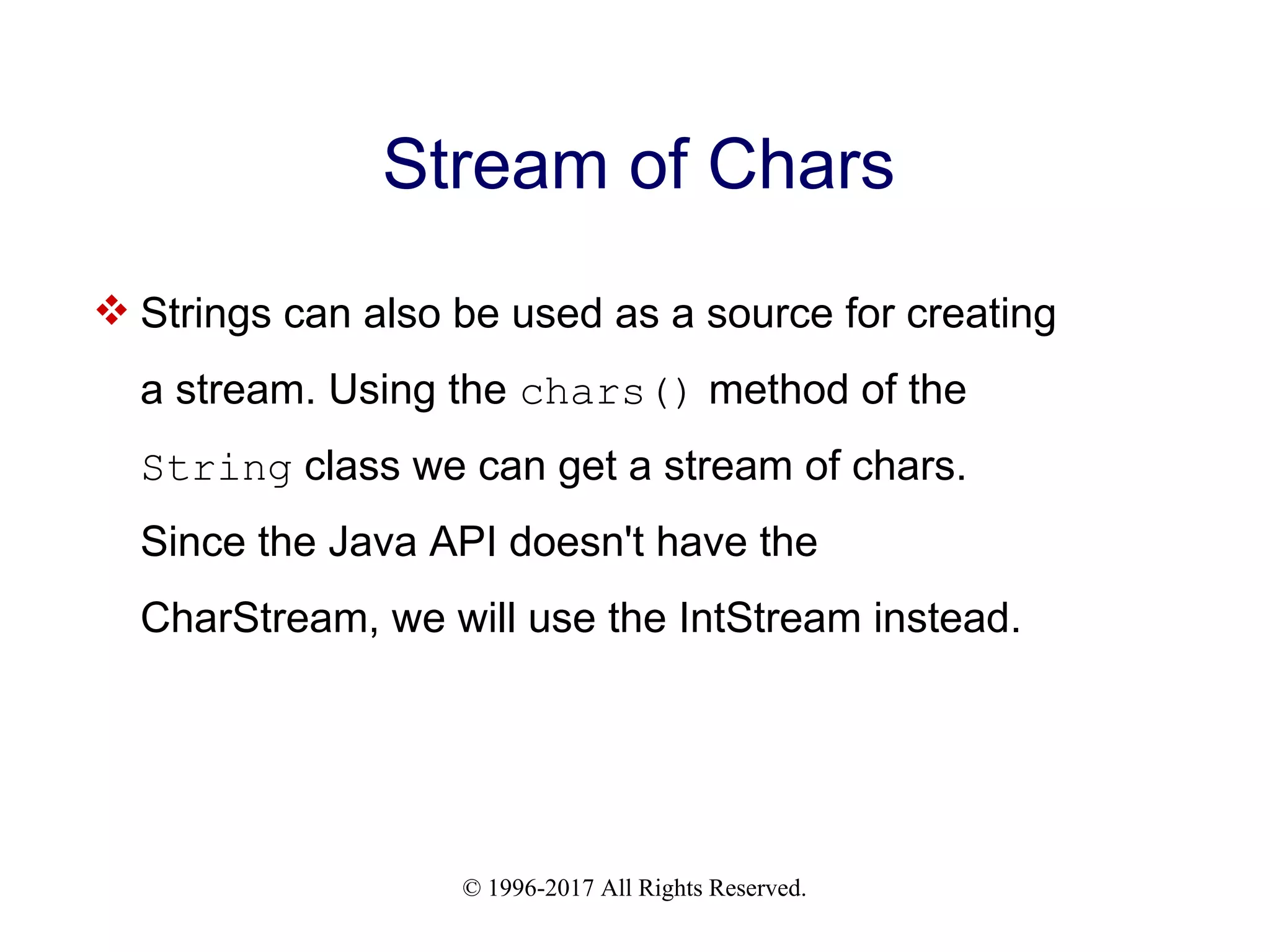
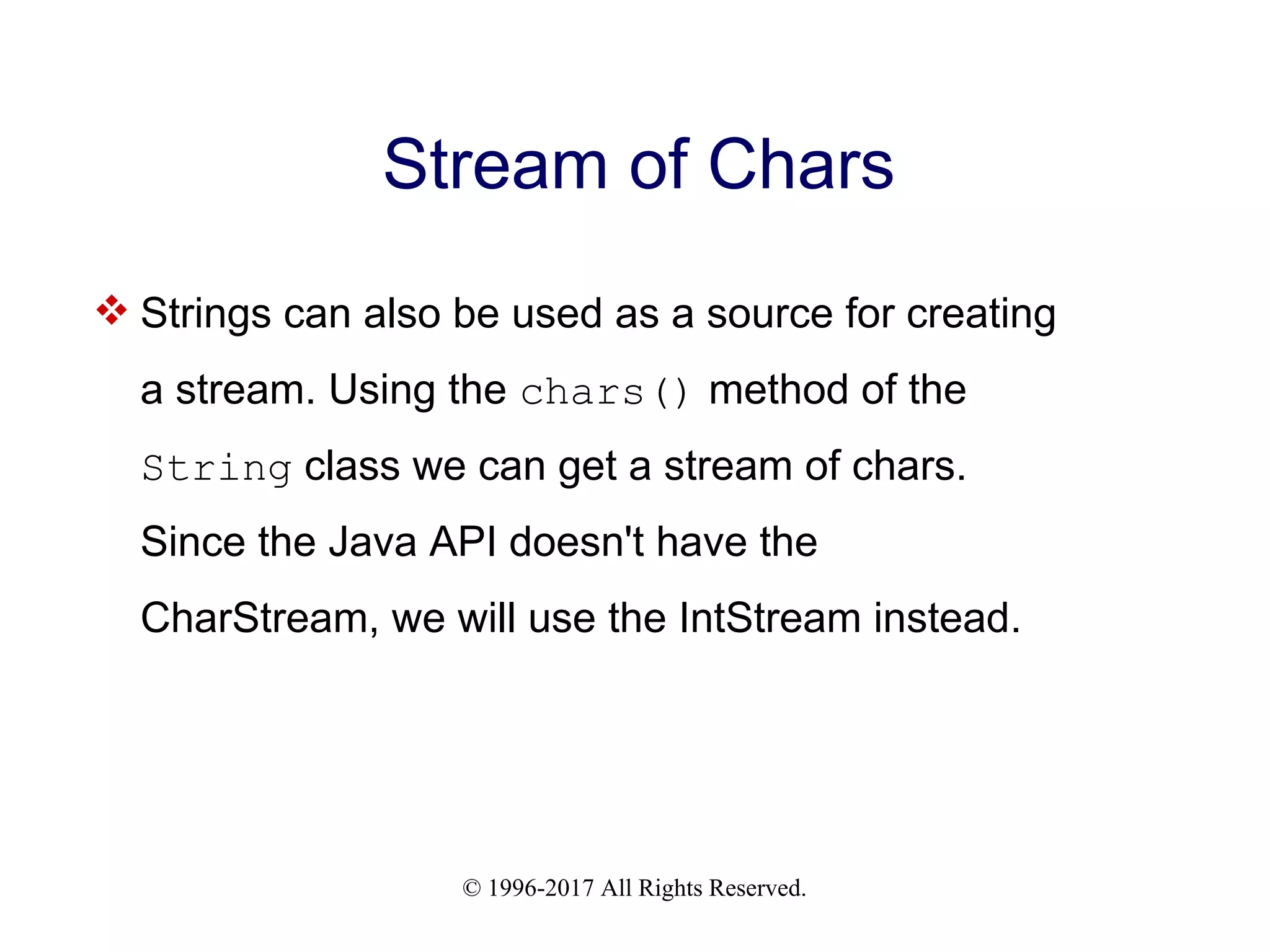
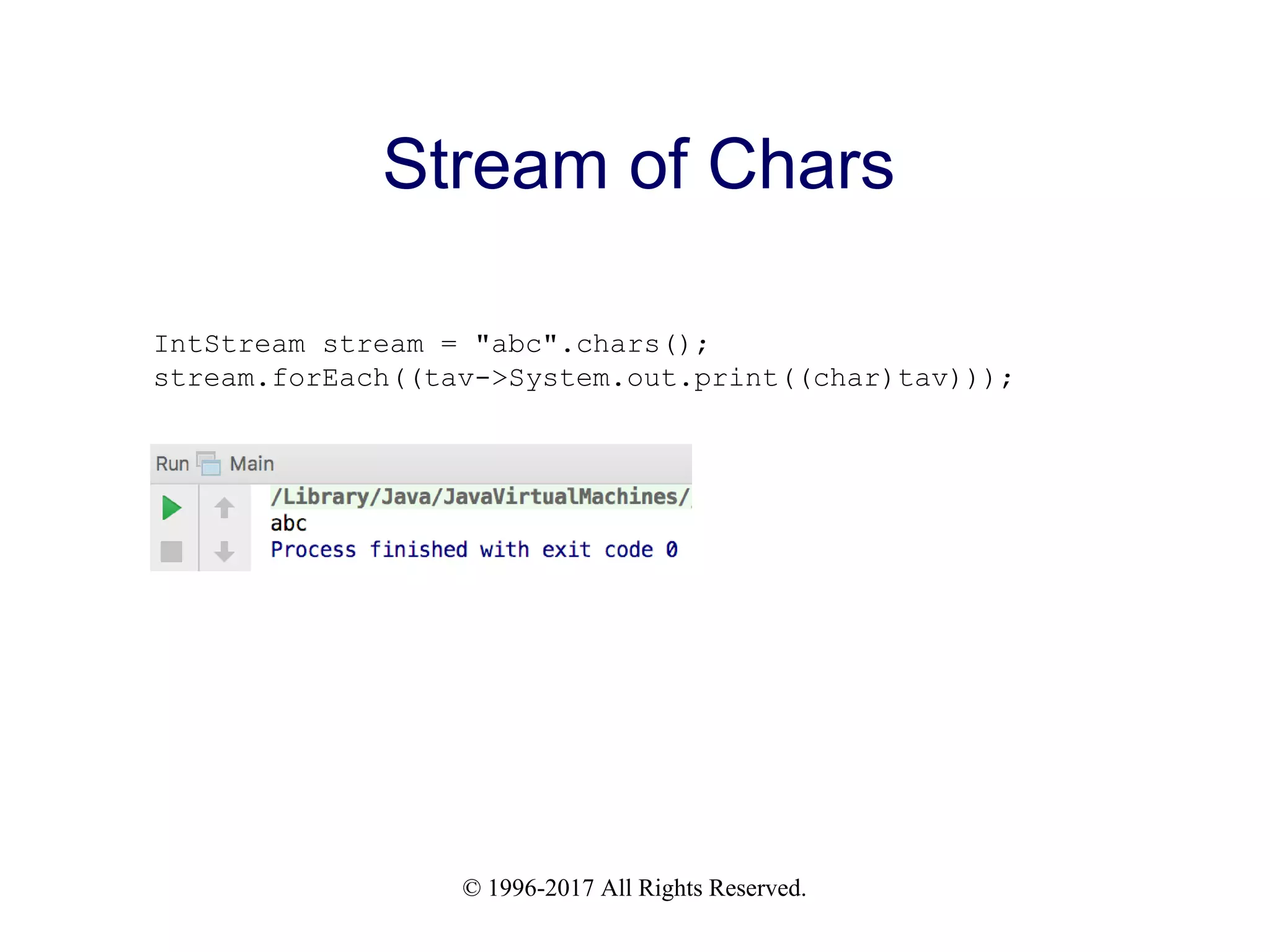
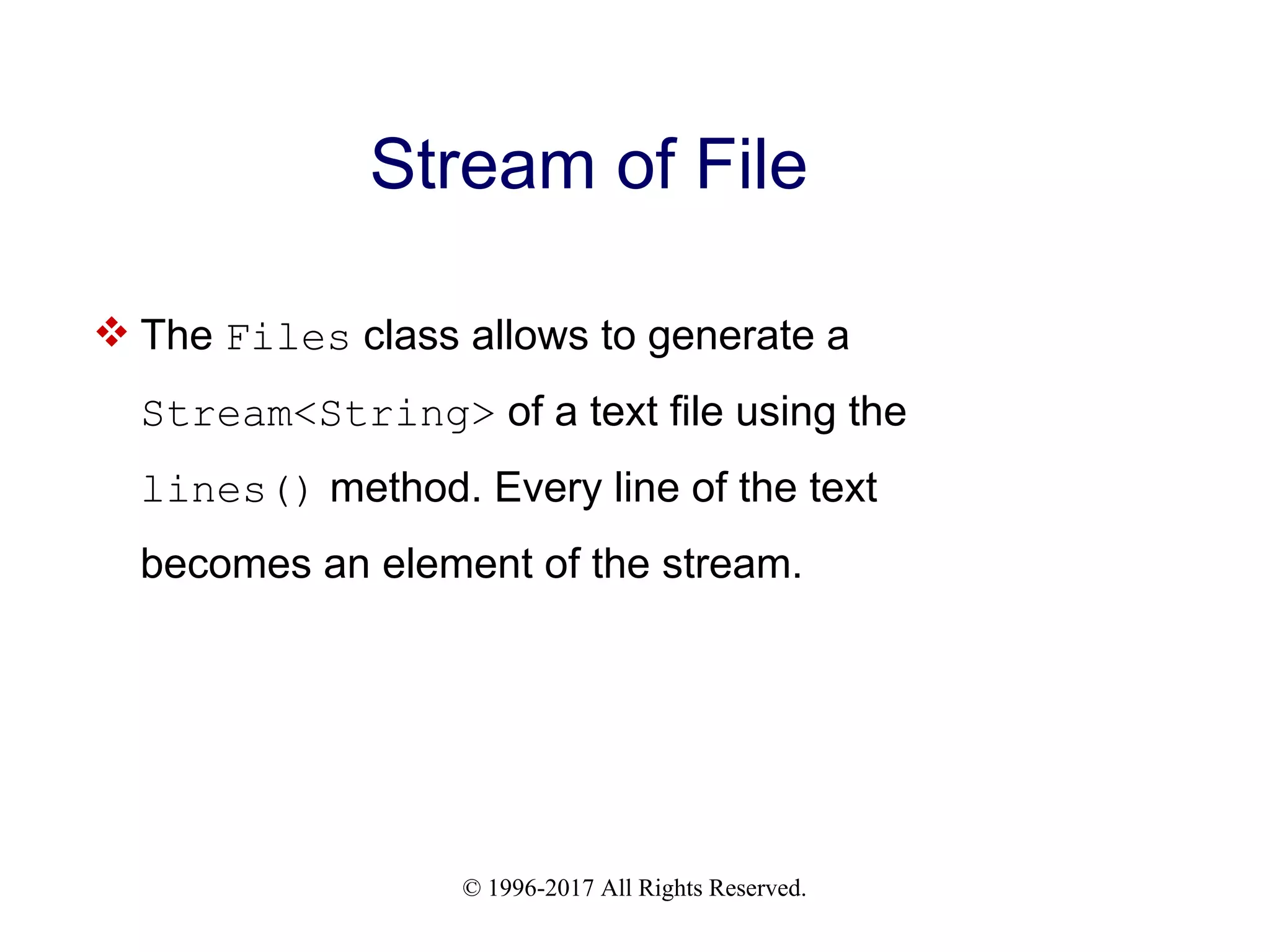
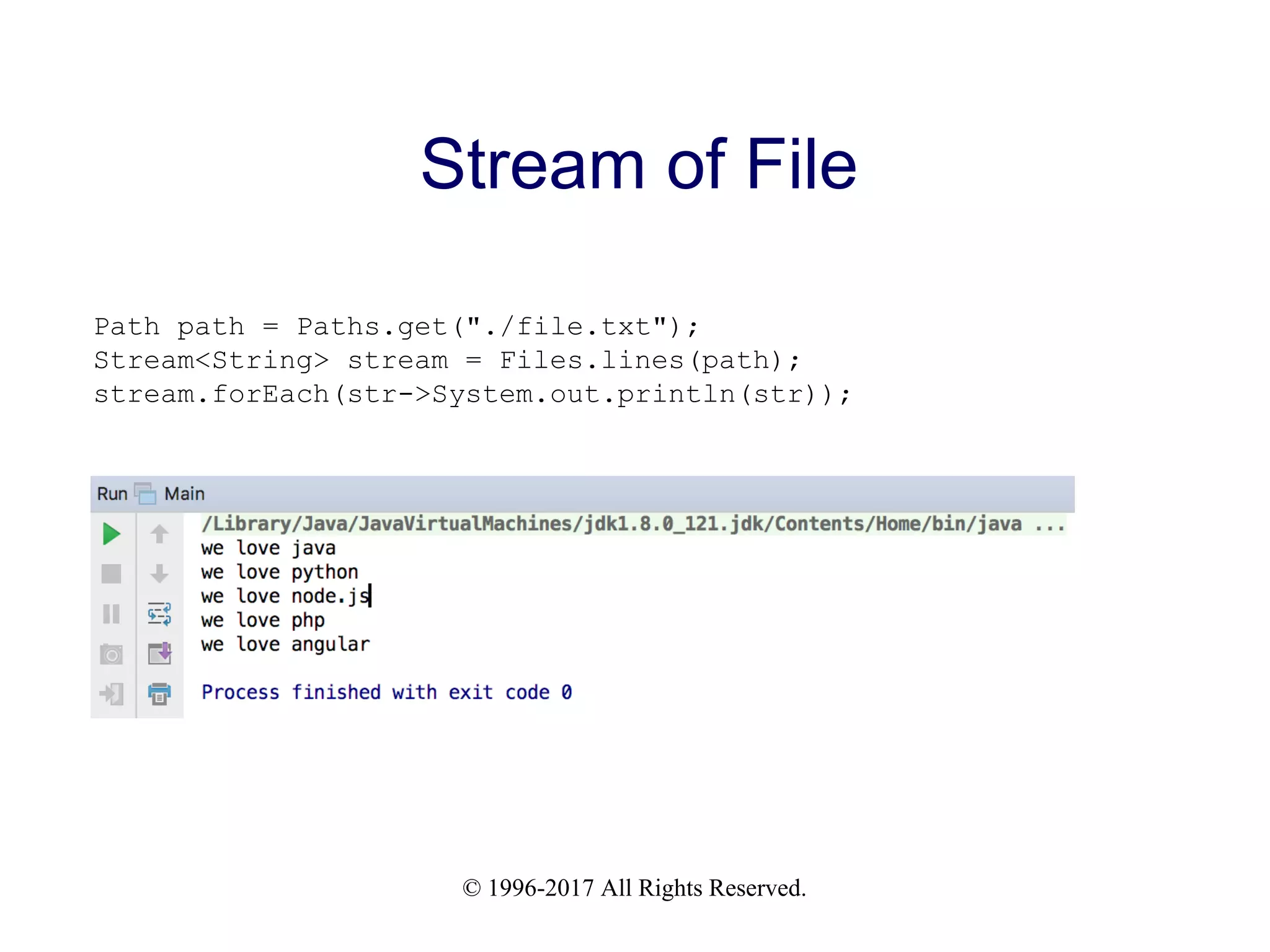
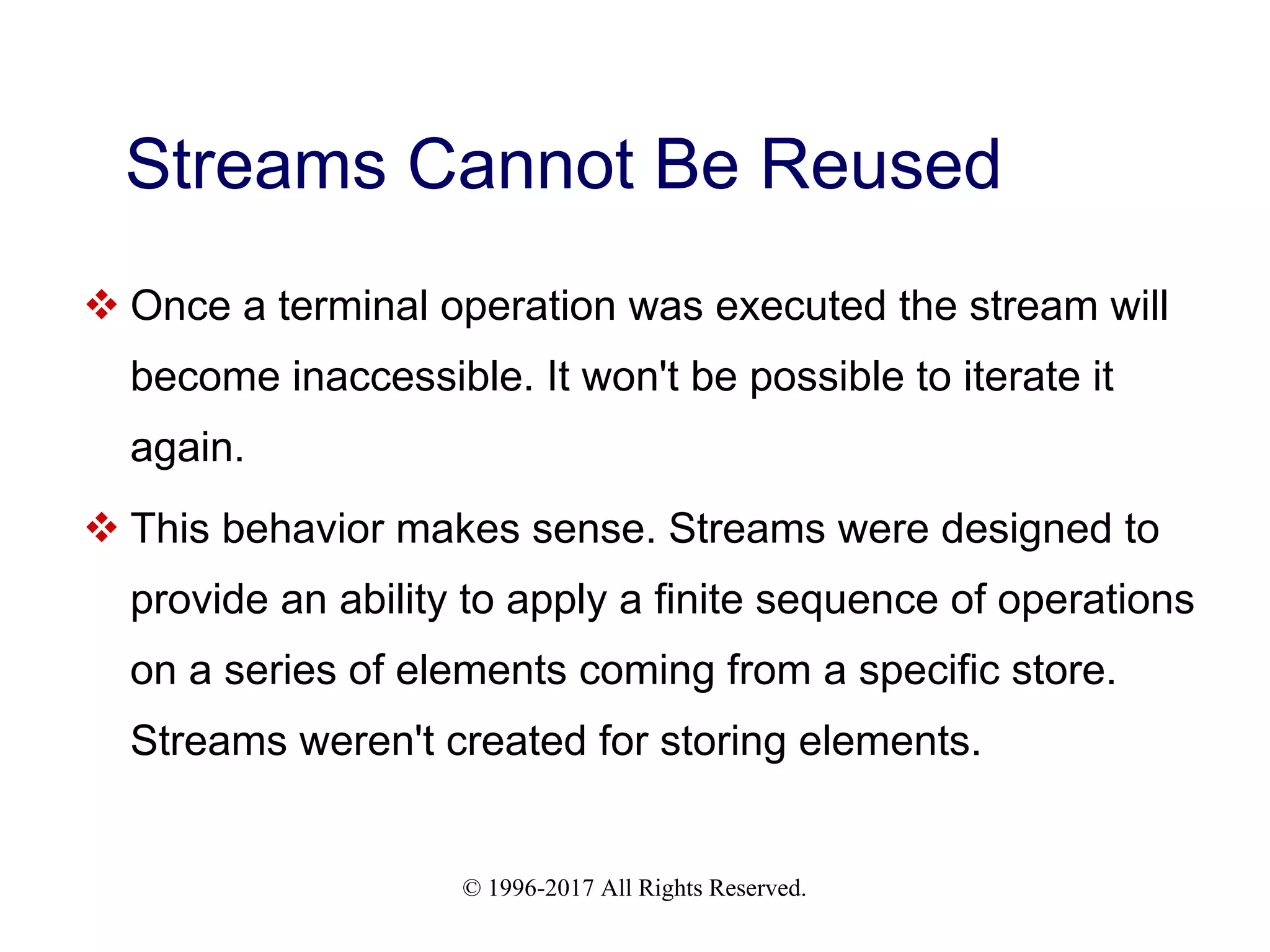
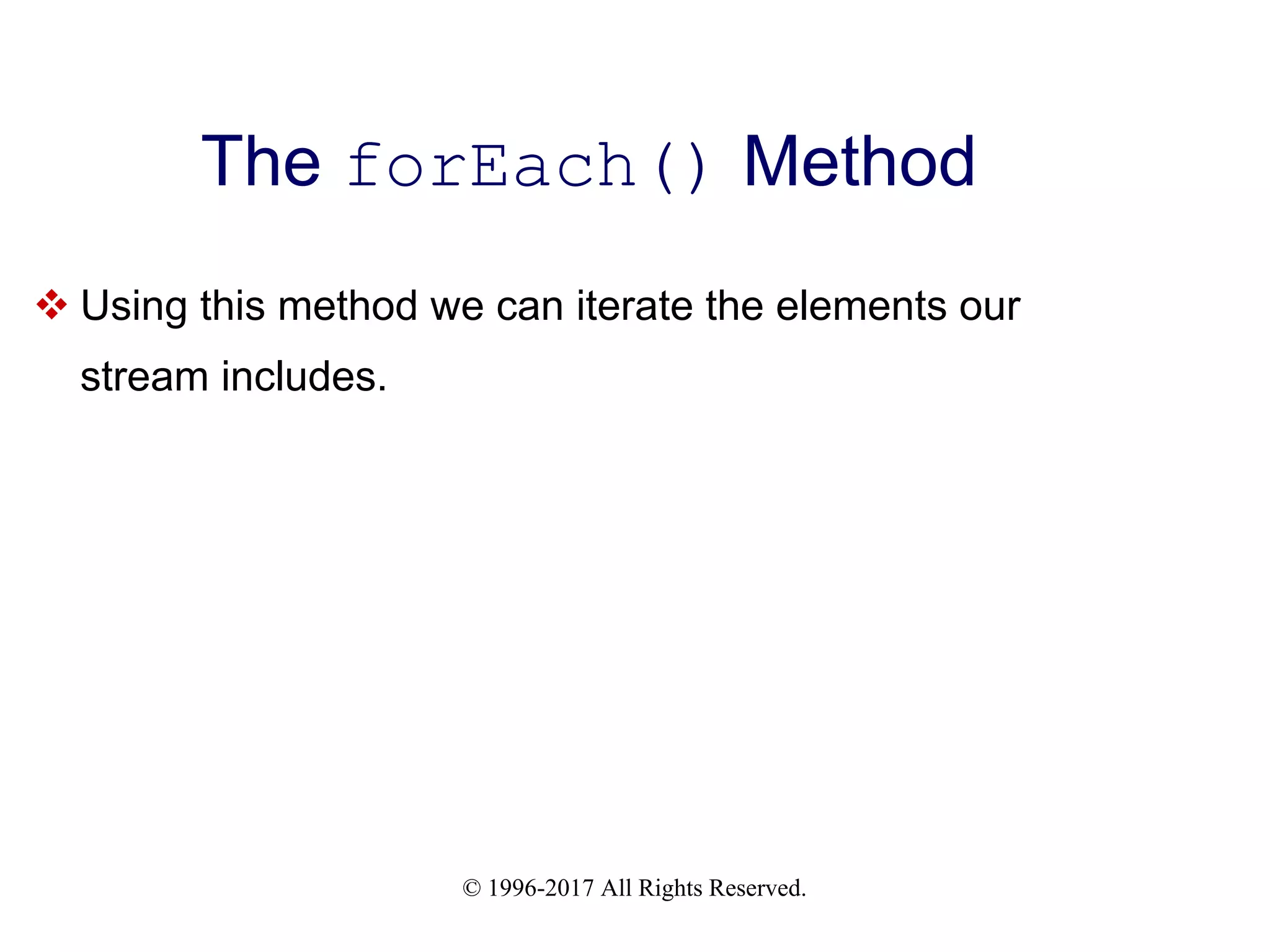
![© 1996-2017 All Rights Reserved. The forEach() Method package com.lifemichael.samples; import java.util.function.*; import java.util.*; import java.util.stream.Stream; public class Program { public static void main(String[] args) { new Random(). ints().limit(10).forEach(System.out::println); } }](https://image.slidesharecdn.com/functionalprogramminginjava20190514-190514200848/75/Functional-programming-in-Java-70-2048.jpg)
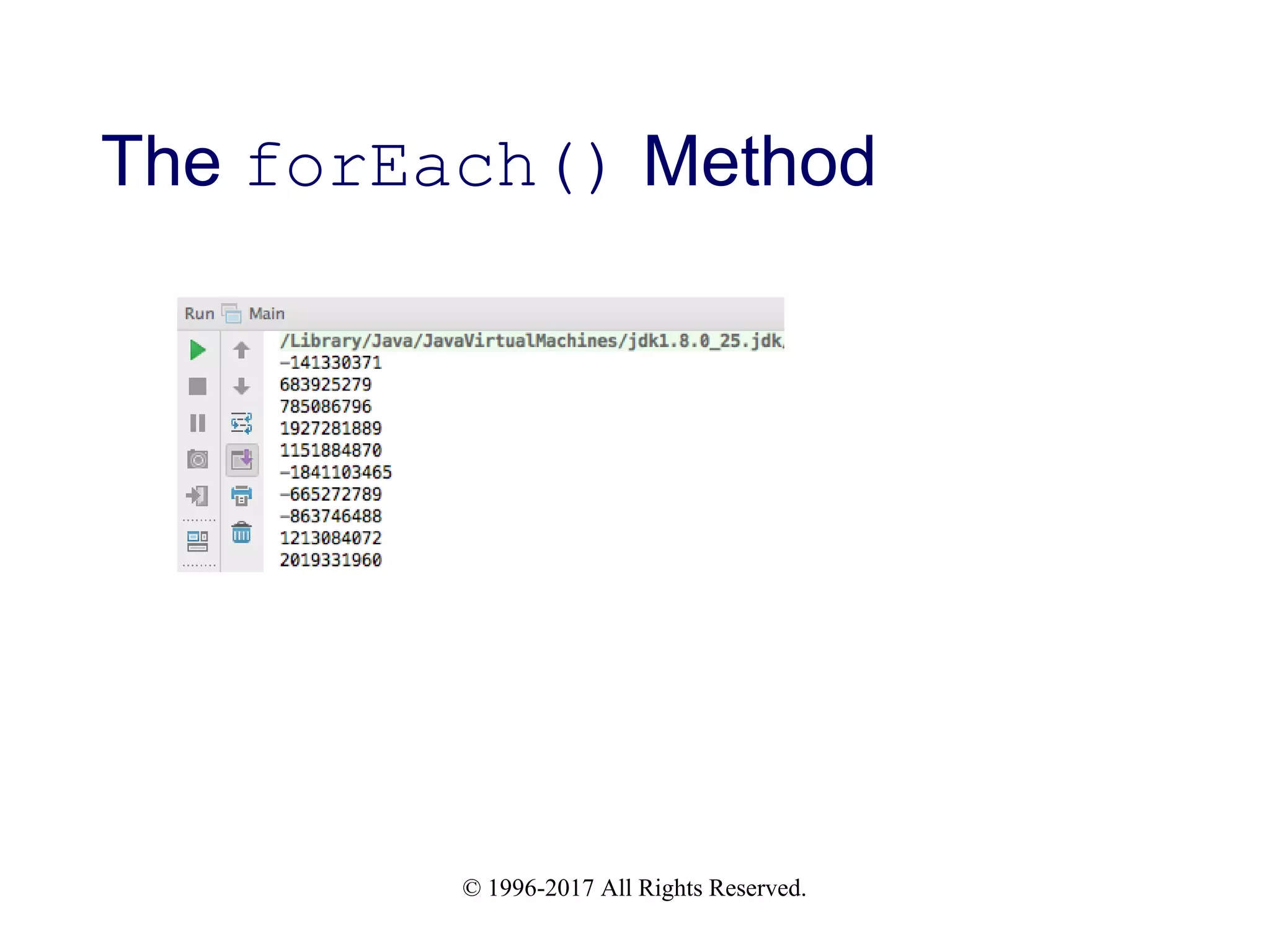
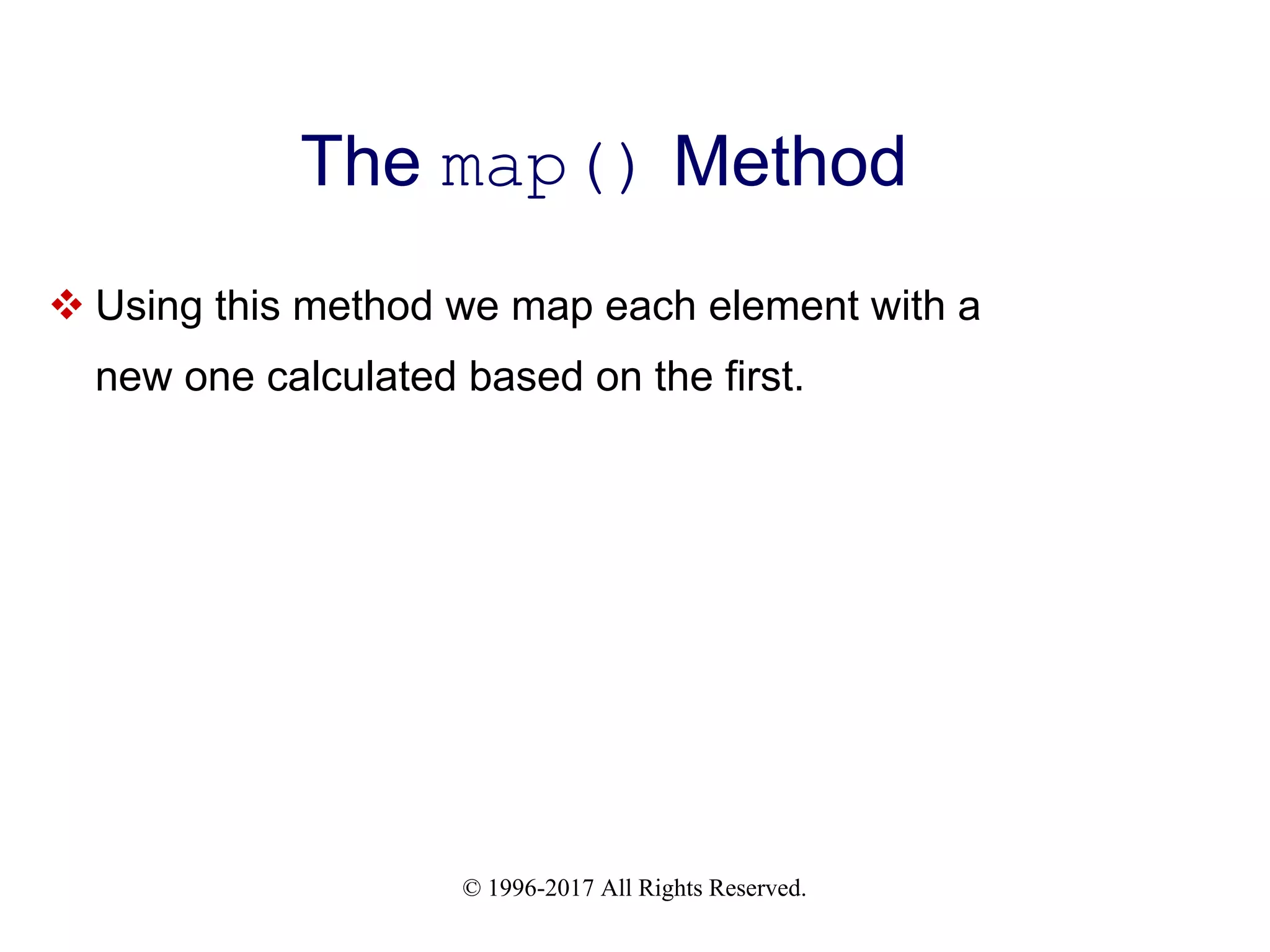
![© 1996-2017 All Rights Reserved. The map() Method public class Program { public static void main(String[] args) { List<Integer> list = new LinkedList(); list.add(12); list.add(54); list.add(53); list.add(65); list.add(72); list.stream().map(n->n*n). filter(num->num%2==0).distinct(). forEach(System.out::println); } }](https://image.slidesharecdn.com/functionalprogramminginjava20190514-190514200848/75/Functional-programming-in-Java-73-2048.jpg)
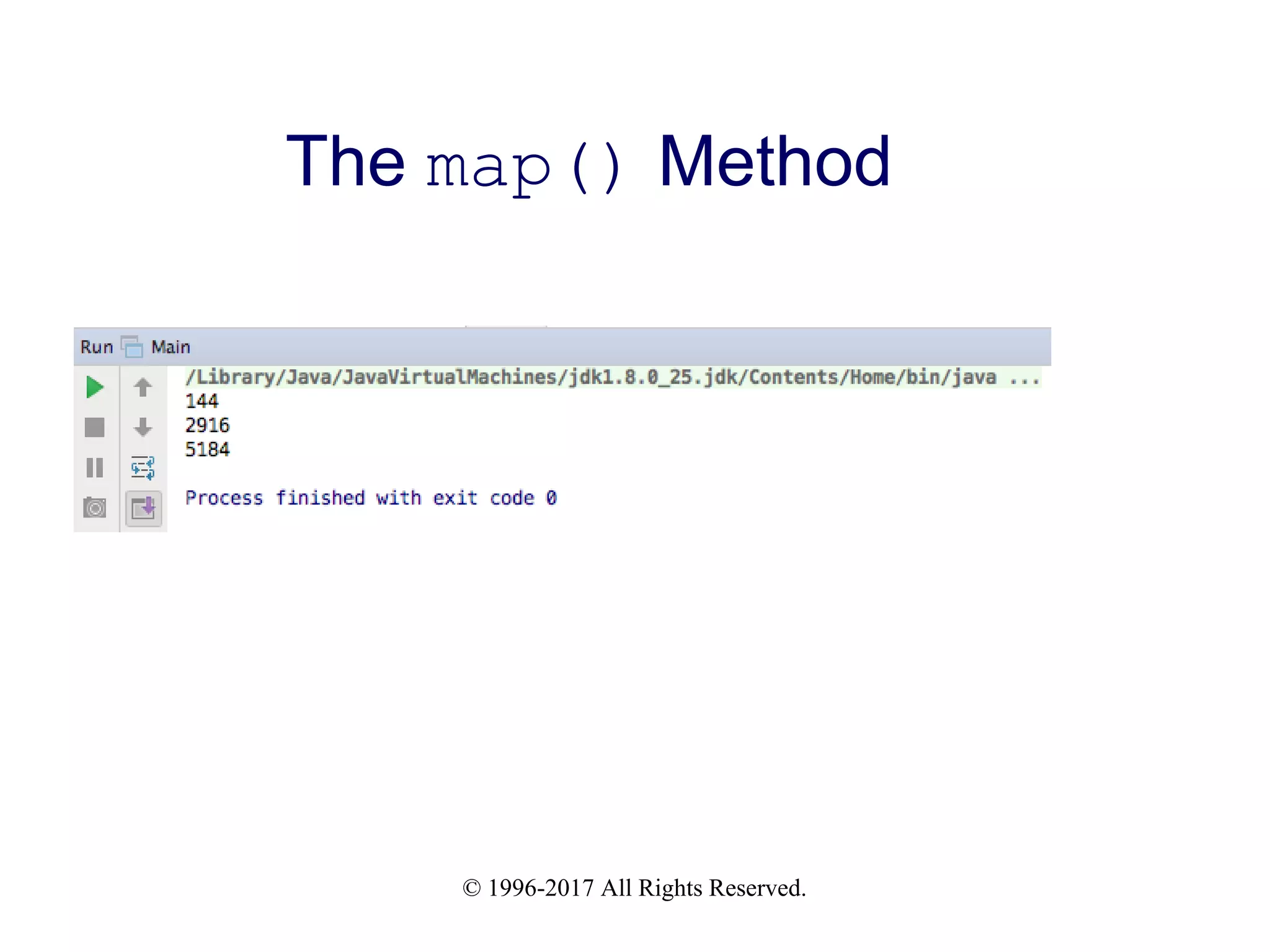
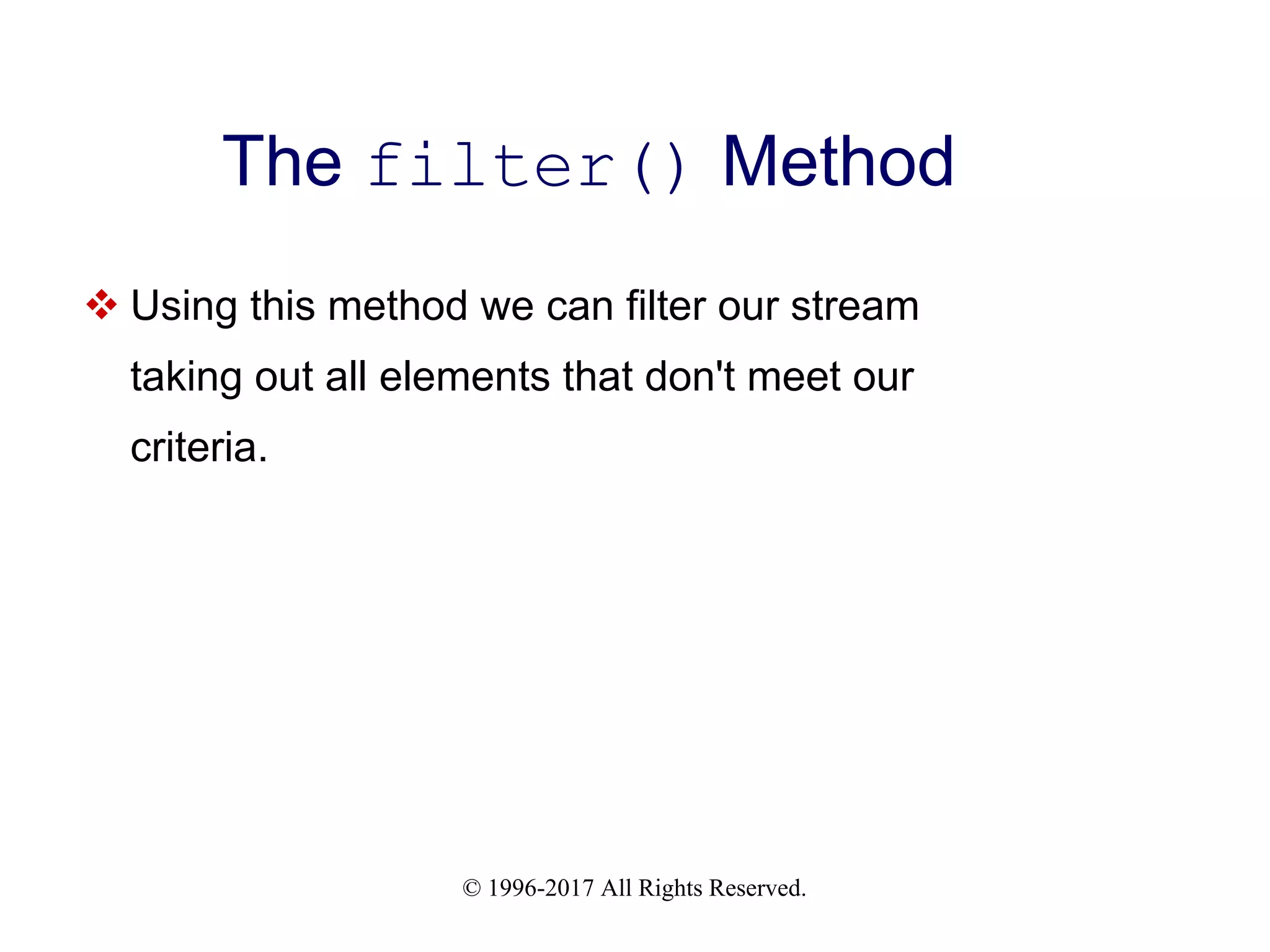
![© 1996-2017 All Rights Reserved. The filter() Method public class FilterDemo { public static void main(String[] args) { List<Integer> list = new LinkedList(); list.add(12); list.add(54); list.add(53); list.add(65); list.add(72); list.stream(). filter(num->num%2==0). forEach(System.out::println); } }](https://image.slidesharecdn.com/functionalprogramminginjava20190514-190514200848/75/Functional-programming-in-Java-76-2048.jpg)
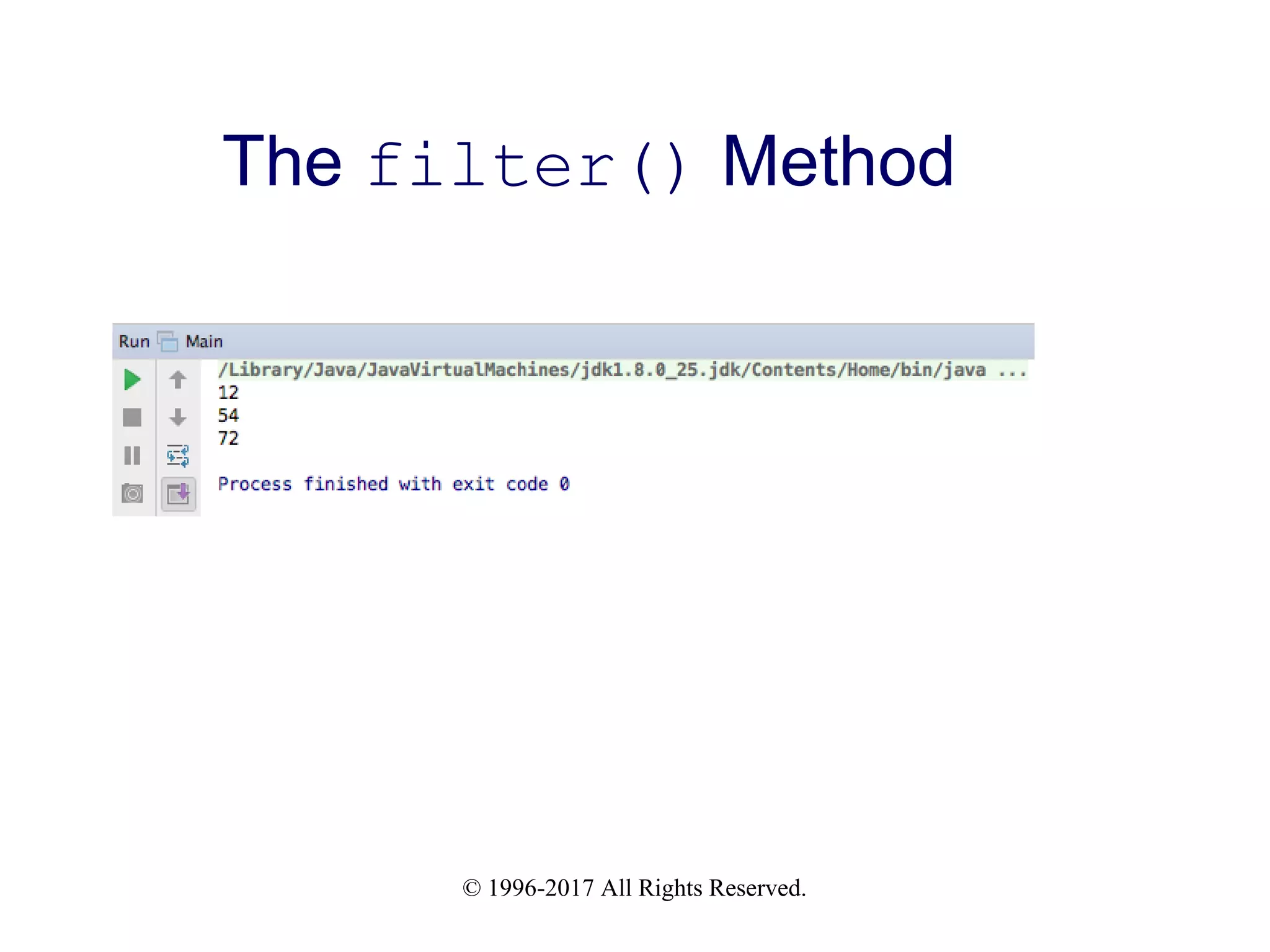
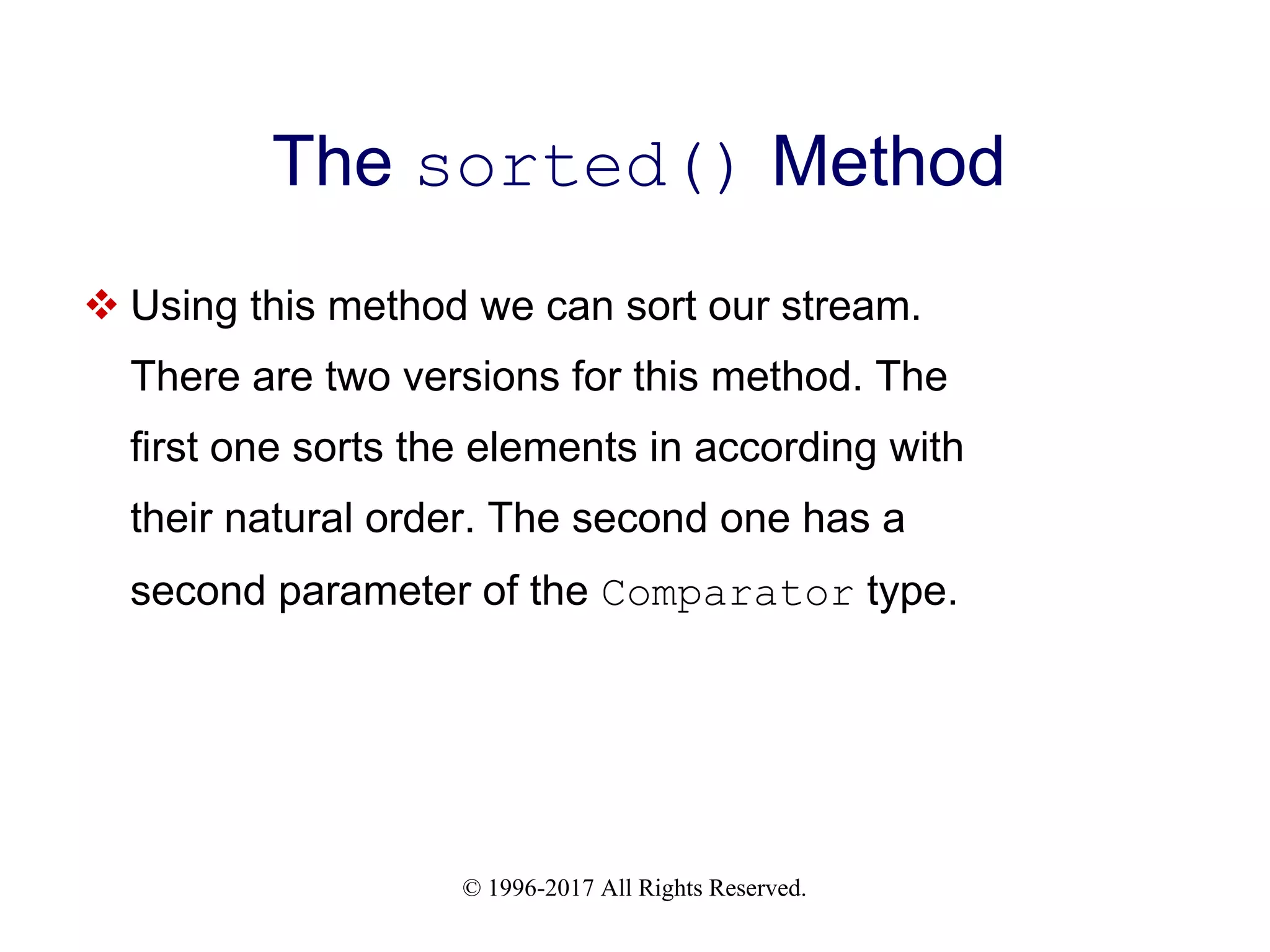
![© 1996-2017 All Rights Reserved. The sorted() Method public class Program { public static void main(String[] args) { List<Integer> list = new LinkedList(); list.add(12); list.add(54); list.add(53); list.add(65); list.add(72); list.add(8); list.stream().sorted(). forEach(System.out::println); } }](https://image.slidesharecdn.com/functionalprogramminginjava20190514-190514200848/75/Functional-programming-in-Java-79-2048.jpg)
